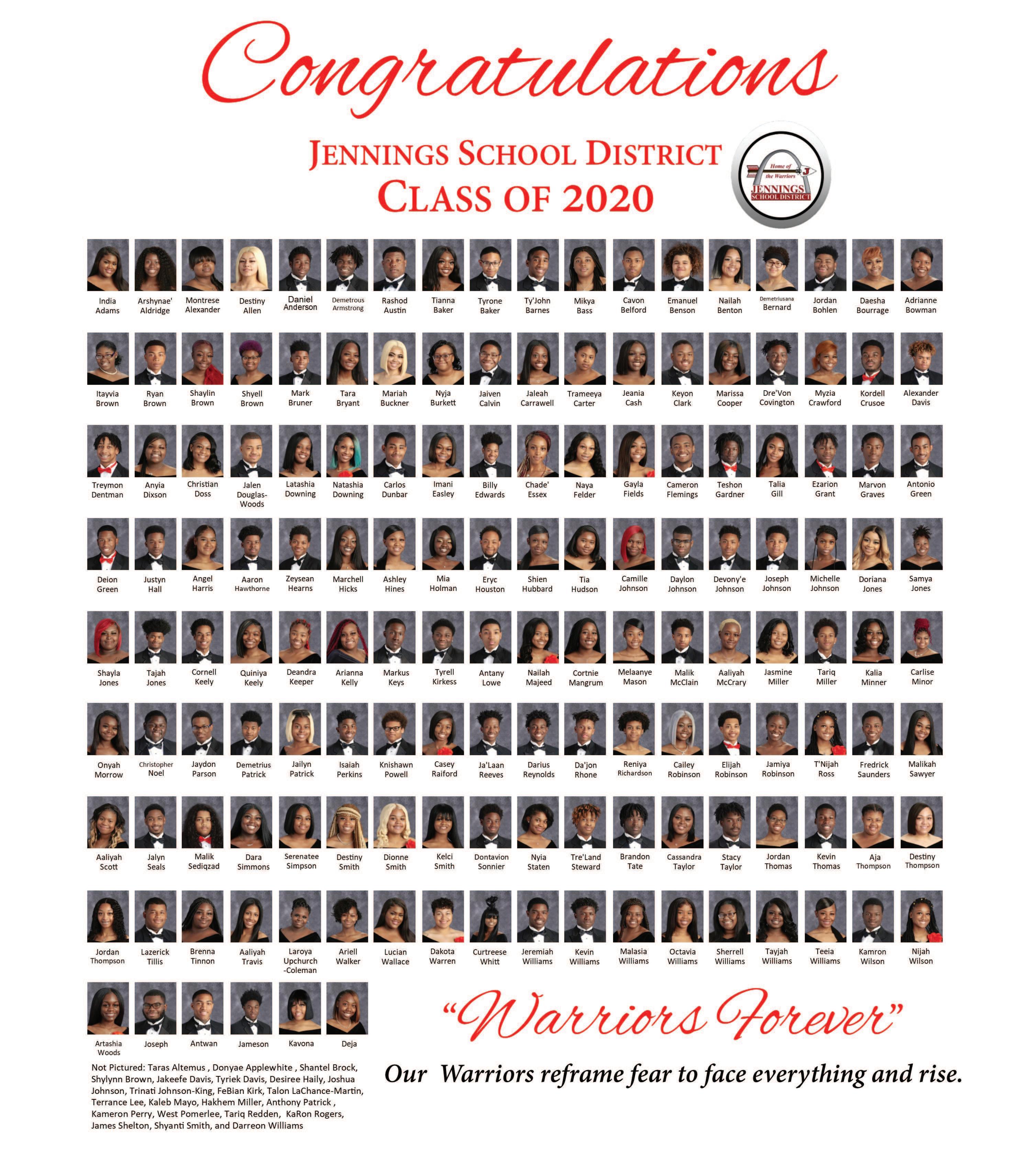






The charge of 1st Degree Assault is a Class A felony. Joshua Smith’s bond was set at $50,000.

Attorneys Jermaine Wooten and Jerryl Christmas, who were retained by the victim, claimed the video is sufficient evidence to charge Joshua Smith with Assault 1st Degree and Armed Criminal Action. Clearly, the special prosecutor agreed.
By Chris King Of The St. Louis American
After more than a week of protests and one day after the release of an incriminating video, Joshua L. Smith was charged with 1st Degree Assault, Armed Criminal Action and 4th Degree Assault for driving a Florissant Police SUV into an unarmed man, then kicking and punching him on the ground before cuffing him. The charge of 1st Degree Assault is a Class A felony. Smith’s bond was set at $50,000.
St. Charles County Prosecuting Attorney
n A new surveillance video that shows Smith veering off the road and deliberately striking a fleeing pedestrian with his unmarked SUV.
Tim Lohmar announced the charges on Wednesday, June 17. The day before, attorneys for the victim released a new surveillance video that shows Smith veering off the road and deliberately striking a fleeing
pedestrian with his unmarked SUV. Smith then exits his vehicle, kicks the injured man on the ground, and then strikes him with his fists twice before cuffing him.
Attorneys Jermaine Wooten and Jerryl Christmas, who have been retained by the victim, claimed the video is sufficient evidence to charge Smith with Assault 1st Degree and Armed Criminal Action. Clearly, the special prosecutor agreed.
The assault occurred on June 2 in Dellwood, which is in St. Louis County. But St. Louis County Prosecutor Wesley Bell
‘Youth who should be home are now infected’
Clergy, Youth Services workers demand release of youth from COVID hot spot
Prosecutor’s attempt to connect violence to protestor made judge laugh
By Rebecca Rivas Of The St. Louis American
the youth cases are still considered active.
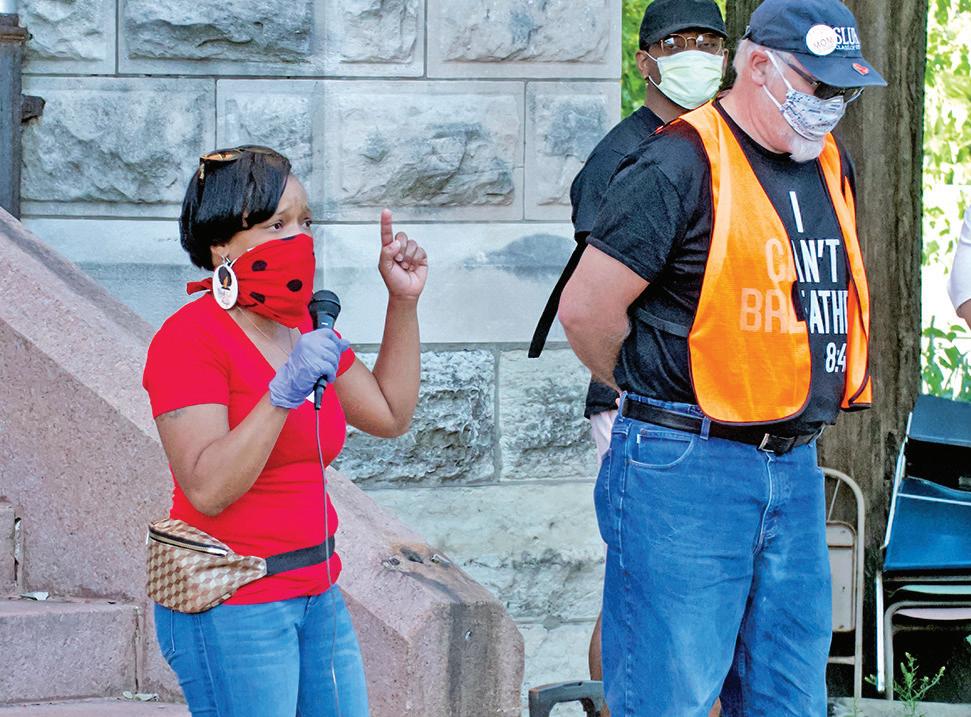
“We’re
the youth that are still here, the youth that can break that prison pipeline,”
June 11.
with
The federal prosecutor who charged Ferguson activist Michael Avery for incitement to riot based on Facebook posts asked the federal judge hearing the case to dismiss the charges on Wednesday, June 17. Michael Reilly, the federal prosecutor, asked U.S. Magistrate Judge Shirley Padmore Mensah to dismiss the charges “without prejudice,” meaning the charges could be issued again. In his motion to dismiss, Reilly said the investigation of Avery is ongoing.
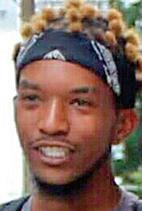
“Even though they state the investigation is ongoing and they could refile charges, we are hopeful that they will realize that this prosecution has no basis in law,” Marleen Suarez, Avery’s attorney, told The American Mensuh signed the order Wednesday afternoon. Reilly filed his motion after twice failing to get U.S. Magistrate Patricia Cohen to keep Avery in jail without bond. On June 12, Reilly argued for the second time — that the only way to
Dr. Kanika Turner honored with 2020 Salute Excellence in Mental Health Award
By Rebecca Rivas Of The
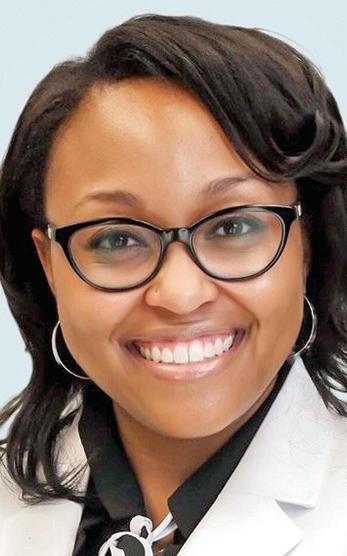
In December, the St. Louis region received a harsh annual update from the National Council on Alcoholism and Drug Abuse (NCADA-STL). There were 1,080 people who died from overdoses involving opioids in 2018 alone — a new high for the region, the council reported. St. Louis is at the height of an opioid addiction epidemic with no sign of slowing. Then, just a few months later, the region went on complete shutdown for the COVID19 pandemic. The COVID-19 pandemic and opioid epidemic intersect in one significant way. “We have two things that are really impacting the black community — COVID-19 and overdose deaths,” said Dr. Kanika Turner, who has

Bootsy Collins says Tom Joyner suffered mild stroke
According to the social media channels of funk legend Bootsy Collins, recently retired radio personality Tom Joyner suffered a mild stroke over the weekend.
‘Funkateers around the world, send out your prayers and love vibes for our funky fly Jock Tom Joyner,” Collins said on via Instagram. “He had a minor stroke and needs our healing vibes. Share this and post the love vibes.”
Felony domestic violence charges dropped against Faith Evans
According to several outlets, felony domestic violence charges against Faith Evans stemming from an alleged attack against her husband Stevie J. have been dropped.
Several reports say that Stevie J. is refusing to cooperate with the investigation.
Based on Stevie J.’s social media, the pair have reunited since Evans arrest nearly two weeks ago. He posted a heartfelt birthday message
calling her his “best friend” on June 10.
Cause of death revealed for Floyd Mayweather’s ex
Back in March, boxer Floyd Mayweather’s former partner Josie Harris was found unresponsive in front of her home in Valencia, California.
According to the medical examiner’s report obtained by several outlets, the cause of death was listed as an accidental overdose caused by mixed drug toxicity.
The toxicology report found a lethal combination of the prescription drugs Fentanyl and Xanax.
Woman who stabbed Joe Jackson’s granddaughter charged with hate crime
Last month Joe Jackson’s granddaughter, Yasmine, the daughter of his lovechild, JohVonnie Jackson, was stabbed multiple times near her home in Las Vegas by a woman screaming the n-word.
According to the police report, the woman is Yasmine Jackson’s upstairs neighbor and had been complaining that Yasmine was being too loud. When the assailant saw Yasmine outside the apartment, she allegedly
tossed a broom at Yasmine from her balcony before jumping down and chasing Yasmine with a knife.
The attacker stabbed Yasmine several times about the head and neck before bystanders stopped the assault. The assailant was held down by neighbors until police arrived.
The woman has been charged with attempted murder with a deadly weapon with a hate crime enhancement.
In an interview with The Jasmine Brand, “Real Housewives of Atlanta” co-star Eva Marcille announced she is leaving the sow. “I appreciate the bond of friendship that I have made with several of my cast mates and the strong personal relationships I have with numerous executives and producers at the Bravo and Truly Entertainment companies,” Marcille told the popular celebrity news and gossip blog. “I am thankful for the opportunity I was provided. However, after speaking with my family and representatives, I believe that what I hope to accomplish for the culture and


community will be better served by focusing on other opportunities.”
She wasn’t specific with respect to what the other opportunities would be, other than her co-hosting gig on the “The Rickey Smiley Morning Show.” “I look forward to serving my community on the Rickey Smiley Morning Show and finding ways to be a voice during this transformational time in our country for people of color,” Marcille said.
‘This Is Us’ writer Jas Waters dies by suicide
Jas Waters, a writer of NBC’s “This Is Us” and Showtime’s “Kidding” died by suicide on June 10. She was 39.
“The entire #ThisIsUs family was devastated to learn of Jas Waters passing,” the team wrote on Twitter Wednesday. “In our time together, Jas left her mark on us and ALL over the show. She was a brilliant storyteller and a force of nature. We send our deepest sympathies to her loved ones. She was one of us. RIP.”
Prior to becoming a staff writer for “This Is Us,” she also wrote episodes for Comedy Central’s “Hood Adjacent” and VH1’s “The Breaks.” The editor and writer also worked on productions for films such as “Spiderman,” “Save The Last Dance” and “What Men Want.”
Sources: Instagram.com, Twitter.com, The Jasmine Brand, The Blast, USA Today

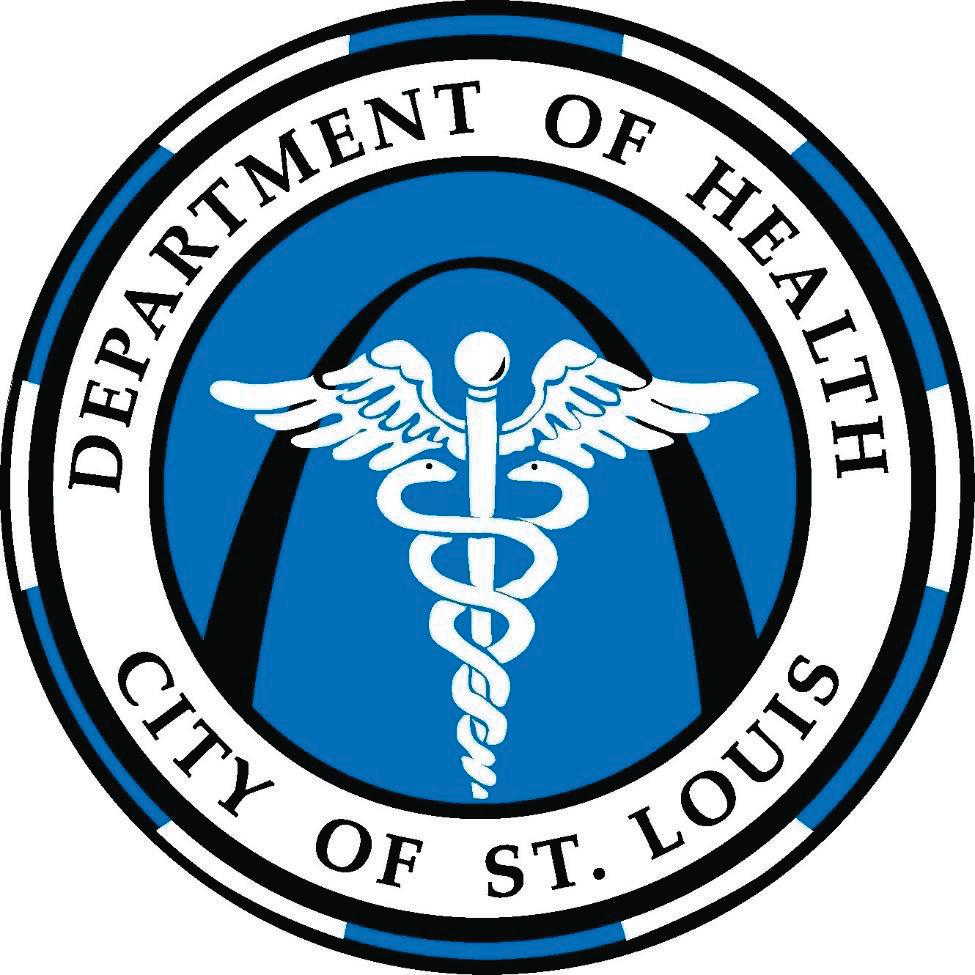
By Chris King Of The
St. Louis American Pagedale Mayor Mary L. Carter, who passed away Wednesday, June 3, was there for Rev. E.G. Shields Sr. at the beginning of his call as a pastor and at the beginning of his vocation as mayor. The day before his friend and mentor passed, Shields was elected to succeed her as Pagedale mayor.
Fifty years ago, Carter was clerk of Union Paradise Church at 2742 Clara Ave. in the City of St. Louis. Shields was a young deacon there who was called to preach in 1971. “She being the church clerk,” Shield said, “her name is on my license and ordination papers. I have had them since 1971.” When Carter, who was first elected mayor of the ring suburb Pagedale in 1992, decided not to seek reelection in 2020, she asked Shields to run with her blessing.
Shields is now pastor or Mt. Beulah Missionary Baptist Church in Pagedale, where he also lives. He cofounded the church out of the ashes of Union Paradise Church, which burned in 1972. He also suggested the name, Mt. Beulah, which was the name of his home church in Indianola, Mississippi.
Mt. Beulah is one of the community anchors that Carter leveraged in developing Pagedale, along with Beyond
Housing. “Pagedale now has two senior buildings, both connected to me and my church,” Shields said.
Carter also helped to lead the development of a bank, movie theater, supermarket, “and other buildings that are going up even as we speak, with more projects still in the pipeline,” Shields said. Remarkably, Carter and her partners helped bring these services to Pagedale when peer municipalities were losing services and jobs.
Chris Krehmeyer, president and CEO of Beyond Housing, who said he is “heartbroken” at the loss of his friend and development partner, pointed out that Pagedale saw its population stabilize in the 2010 census after consistent population loss since 1970.
“The stabilizing of the population, we believe, is the first sign that enough work has been done to show residents that things are changing and that they can stay in their community or move here,” Krehmeyer told The American in 2019.
Monica Huddleston worked closely with Carter in Beyond Housing’s 24:1 Municipal Government Partnership when Huddleston was mayor of neighboring Greendale. “She was a strong sister who ran that city like a general,” Huddleston said of Carter. “She had her own way and was determined to see it through for the benefit of the residents who live in
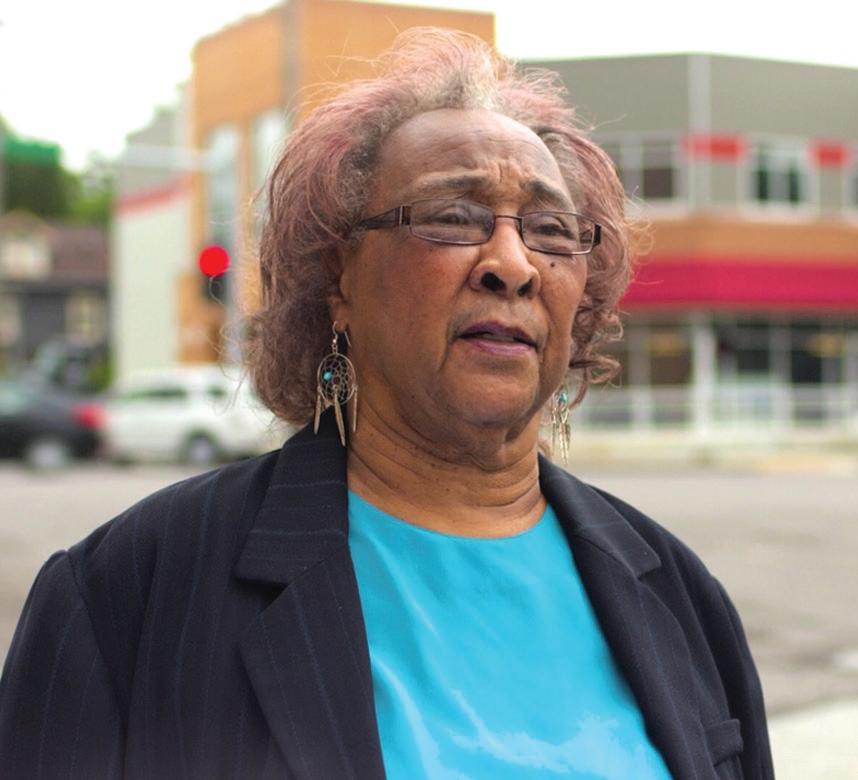
Pagedale. They and the rest of us in the 24:1 area owe her a lot.”
Krehmeyer said Carter “was the epitome of a public servant.” Shields said the same.
“Pagedale was her heart,” Shields said. “She was a strong leader, a non-nonsense leader. When it came to business, she was firm. So many great accomplishments can be accredited to her leadership.”
As her health began to fail and she decided to retire in 2020, she hand-picked Shields to run with her endorsement.
“She asked if I would run and pulled out all of the stops to help me,” Shields said. “She gave me wise council and a letter of endorsement that I used in my mailings.”
The two old friends last spoke on Monday, when
Shields asked her to record a last-minute robocall that went out to 300-some people.
“She sounded a little shaky,” Shields said. “That was the last conversation we had.”
When he called her on Wednesday to thank her for her help in his victory, she was sleeping. He told her son not to wake her. She passed before they spoke again, but she died knowing her hand-picked successor would lead Pagedale.
“I believe she went to glory resting in peace knowing that I will help in aiding her to carry out her wishes – to continue her legacy – and that is my intention. I will do all I can to keep memory alive and all of her causes. She got us started on the pathway, and I will keep us there.”
Antigone Chambers Reed is the 2020 Jamala Rogers Young Visionary, a project of the Youth Council for Positive Development. The $2000 scholarship can be used towards college or trade school tuition, a community impact program or to participate in a training opportunity that advances a deeper understanding of social justice. This is the first year that a community impact program was selected.
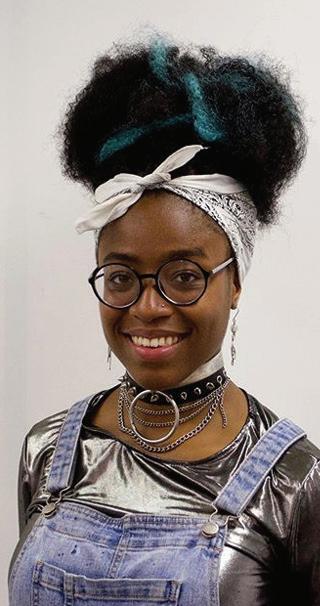
Reed’s proposed project, Writing Through Trauma, impressed the Young Visionary selection committee with its understanding about trauma in our community. The project will give participants a safe space to process, heal, and share their lived experiences of violence through learning writing skills.
The high school student is a poet, writer, actor, and human rights activist. She was named a Youth Poetry Ambassador by UrbArts STL and is active with StoryStitchers, a local youth organization that uses spoken word to promote its anti-violence messaging. She is an actor with the Bread and Roses Workers Theater and a member of the GoodJourney Leadership Academy.
The annual Jamala Rogers Young Visionary Award recognizes young adults who are working for social justice and making a difference in their community. The award is named after Jamala Rogers, a community leader who has inspired thousands of young people to use their time, talents and skills to uplift their communities in meaningful ways. Contributions to the Youth Council for Positive Development are welcome and tax-deductible. They can be made at www. positiveyouthdev.com or mailed to P.O. Box 5277, St. Louis, MO 63115.
UnitedHealthcare Dual Complete® (HMO D-SNP) includes extra benefits to help you get care and services you may be missing today. If you have both Medicaid and Medicare, that could be a big help in these uncertain times. Get extra benefits for a $0 plan premium.
Dual Complete is a Medicare plan. It works with your Medicaid plan. You’ll keep all your Medicaid benefits and add more. You could get extra benefits like: Health Products Card™ Up to $1,600 loaded onto your card to buy health products you may need.
It’s déjà vu all over again in St. Louis. Opportunists are once again trying to sell the St. Louis airport.
The first attempt to sell the St. Louis airport fell apart in December. Mayor Lyda Krewson abruptly halted the process when it was beleaguered by lawsuits claiming public decisions were made illegally in closed sessions and by conflicts of interest. One of the bidders was being advised by the former chief of staff of the former mayor who initiated the sales process. That process was funded by billionaire political speculator Rex Sinquefield, the single largest former funder of the former mayor.
Now the sale of the airport is being attempted by ballot initiative. Sinquefield’s fingerprints are on the new effort, which was written for proceeds from the sale (technically, long-term lease) of the airport to offset lost revenues from the city’s earnings tax, which Sinquefield has long tried to undo. But the initiative is being led by the St. Louis-Kansas City Carpenters Regional Council and the St. Louis Chapter of the NAACP. The carpenters’ council is an investor in one of the companies trying to lease the airport, and the 24-page proposal is chock full of protections for organized labor. So, it’s clear what skin the carpenters have in this game. But, what about the NAACP?
Chapter President Adolphus Pruitt told The American that the NAACP supports the initiative because it ensures greater minority participation in airport contracts and “an equitable distribution” of funds generated by the lease. Pruitt said that neither he nor the NAACP is being compensated for their advocacy of the initiative.
The initiative does state that the airport buyer – technically, long-term lessee – commits to a diversity spend on contractors, subcontractors and vendors at the airport well above current minority inclusion commitments. However, the petition is silent on the crucial factors of monitoring and compliance. Should the lessee be non-compliant, it would be forced to “pay the difference between the actual spend on minorityand women-owned businesses and the required targets.” If this discrepancy were monitored effectively and the lessee could be compelled to pay up, the balance would go to “a fund, as determined by the Board of Aldermen, to be used solely for minority-owned business development.” While a dedicated fund for minority-owned business development is a good idea, we see here a troubling facet of this initiative. This initiative restructures city government by creating various

new discretionary funds independent of the city budget and its public process. It also calls for the creation of new governing bodies to both lease the airport and to manage the city’s relationship with the lessee. St. Louis does not need new layers of government run by appointees, not elected officials, leasing the city’s largest asset and managing that contract. The appointing powers for these bodies are weighted in favor of the mayor and aldermanic president at the expense of the comptroller; no surprise – Krewson and aldermanic President Lewis Reed favored the airport privatization process, while Comptroller Darlene Green opposed it.
The carpenters and the NAACP started this initiative when George Floyd was still alive.
In the wake of his police torture and murder in broad daylight, a renewed Black Lives Matter movement has made it clear that we are through with paying police to terrorize our communities and end black lives with impunity. The protest movement’s brash solution, which we endorse, is to starve predatory police of their funding – to defund the police.
That makes this suspect ballot initiative to lease the St. Louis airport dead on arrival. This initiative commits “at least” 30% of airport lease proceeds (and “not less than” $300 million) to yet another newly created slush fund: a Police, Fire, and Safe Neighborhood Trust Fund. Note that for the minority business development fund to get a deposit, the lessee would have to dishonor a minority conclusion agreement, get caught and be compelled to pay. The police, however, get at least 30% of all proceeds off the top.
No sale. If someone asks you to sign a petition for this ballot initiative, do not sign it. If enough people are misled into signing it and it does get on the ballot, perhaps as early as November 3, then vote against it.
By Kelvin R. Adams For The St.
American
Louis
As I reflect on recent incidents of civil unrest and protests across the country, and indeed across the world, I am angry and heartsick at the realization that time has not “healed all wounds.” Today, we are preparing to send our recent graduates into a world that is facing two pandemics: one of disease and another of clear injustice. Initially, one might be inclined to associate the current unrest solely with the unfortunate and tragic death of one man, Mr. George Floyd. However, I would offer that we are also grieving our society’s inability to dispense justice evenhandedly, preventing us from finding peace. As we are witnessing, a system that tolerates injustice against African Americans and other marginalized groups cannot be sustained and is doomed to collapse.
Names like Michael Brown, Amaud Arbery, Trayvon Martin, Eric Garner, Breonna Taylor, Tamir Rice and George Floyd evoke great emotion among people of all races who have been personally and profoundly impacted by their unnecessary deaths. These young men and women, and others like them, are, regretfully, symbols of failings in our society that have led to the disproportionate number of deaths among African Americans over the past 10 years.
Years of oppression compounded by the economic and emotional stressors of a deadly pandemic and the abuse of power we saw most recently
in Minneapolis have created a perfect storm. Disgust and disillusionment have given birth to anger, frustration and, unfortunately, violence.
We attempt to teach our students the value of peaceful protests and how to exercise their freedom of speech to point out injustices and, hopefully, bring about change. We also teach them that no matter the cause, there is no place in society for violence—it is a means with no end.
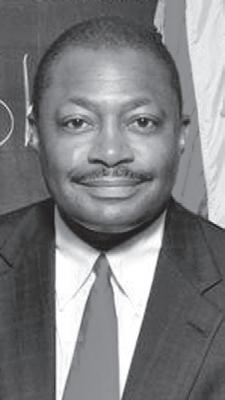
While we rage against the many ways in which targeted groups of people are persistently held down in our society—either by a knee or by inequities that have persisted over time—we must do so peacefully and with purpose. For in that lies the true power to make change.
“We are all in this together” is a phrase that has come from the pandemic and holds true as we navigate these latest challenges. Despite the actions of some, I urge us all to respect the law enforcement officers who live by “protect and serve” and go to work every day to defend our freedoms and our safety.
Over the past few days, I have been reliving the first weeks of the school year, which followed a particularly violent summer. Our Board of Education hosted a community forum to consider how to combat the senseless deaths of young people in our region. We knew then that it was important
By Mikes Jones Of The St. Louis American
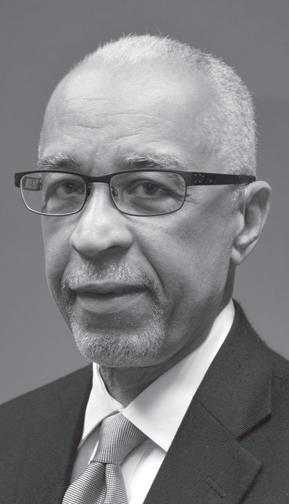
When dealing with the political establishment, always remember that whatever they say it is, it ain’t that. This has never been truer than when discussing policing in America. The historical role of policing in America in relationship to the black community is not about law enforcement but rather enforcing the social norms of white supremacy. We must remember that racebased chattel slavery was government-sanctioned, and the American legal system enforced the maintenance of the “peculiar” institution. Whether it was the Jim Crow South or the more informal Northern racism, the police ensured black men and women knew and stayed in “their place.” Police enforced the law and maintained the oppressive order.
Americans believe that policing is about controlling crime because that’s what they’re told. In fact, policing exists to control social behavior; controlling crime is just a side order of grits. Crime actually rises and falls for reasons that have very little do with policing.
The biggest divisions in the United States are racial and economic. Because economic and political power are held unequally in the United States, dominant groups (white people) demand policing in order to regulate threats from less-powerful groups (people of color and poor people). There will always be a demand for increased policing whenever a large population of poor people of color is perceived as threatening by white people.
Over the last 40 years, the
American public has become increasingly poorer and at the same time increasingly less white. This is why police expenditures ballooned as a percentage of local budgets while policing became more militarized. The war on drugs removed huge numbers of young black and brown men from their communities, which was threat reduction disguised as crime reduction.
In the wake of the police murder of George Floyd, we see masses of white people marching with black and brown people against the police. We are seeing that when white people use their privilege on behalf of justice for black people, they get treated like black people. That’s the police enforcing and maintaining the white-supremacist social order.
Just as black people can’t escape the consequences of their blackness, white people
n Reimagining and rebuilding are not possible unless and until you eliminate the control that police unions exercise over police departments.
are not free to reject the privilege of their whiteness without consequences.
These demonstrations are also teaching an important lesson to white America: that inside the chest of every white supremacist beats the heart of a fascist. So, white America, ask not for whom the bell tolls.
The American system of policing can’t be reformed because the predicate of its existence is the control and suppression of black communities and individuals. Police play the same role relative to the black community in 21st century America that slave patrols played during slavery.
to let our voices be heard, and it is still important today. We must work together to bring the change our community needs and deserves.
I must be completely candid with you. I am afraid that some see this as a moment and not a movement. This must be a movement that brings about sacrifice for some and change for the most marginalized persons in our community and society. The systems that underlie our society must change, really change, and we must change with them.
As an organization, the Saint Louis Public School District is committed to providing quality opportunities for all students. We commit and seek your support, as we:
• channel today’s passion into working with the community for long-term solutions.
• recognize and respect every individual’s personal concerns and challenges
• double our efforts to ensure fairness and equity throughout our system.
• advocate for changes in laws that will lift or lighten burdens of inequities for our students.
• engage our local and state government officials in meaningful conversations on ways we can make it easier for families to not just survive in our great community—but to thrive.
Our principals, teachers, and support staff—the ones on the frontlines for our families every day—stand ready to do this work. We hope you will be our partners in this effort.
Kelvin R. Adams is superintendent of Schools for Saint Louis Public Schools.
Shameful but predictable posturing
Thank you, St. Louis American, for publishing the excellent column by state Representatives Steven Roberts and Crystal Quade. I agree with them 100 percent that Missouri must make common sense reforms to policing, like banning chokeholds and improving training.
I also join them in calling for Gov. Parson to veto Senate Substitute for Senate Bill 600 (SB 600). This bill is projected to lock up 2500 more people, and it doesn’t take a crystal ball to know that a disproportionate number of those newly incarcerated would be black Missourians, given current data from our prisons.
African Americans are also disproportionately present in poverty statistics, not due to lack of effort on our part, but because of structural racism in education and employment. The fiscal note for the bill spells out that the public defender system “cannot assume that existing staff will provide effective representation for any new cases arising where indigent persons are charged” and “is currently providing legal representation in caseloads in excess of recognized standards.”
Inadequate defense separates parents from children for far too long in the black community and even causes the innocent to be incarcerated.
SB 600 has a “criminal street gang” section, which I would call dog-whistle language for young black men. This
This is not about good versus bad cops; it’s about the purpose and nature of policing. Put good people in a corrupt system, and the system doesn’t change but the people do –for the worse. There were no good overseers during slavery, though some may have been less violent than others in maintaining an oppressive system.
If slave patrols had a union in the antebellum South, it would look exactly like today’s police unions. Police unions actively oppose any and all structural reforms and champion the toxic culture that has metastasized in police departments. Policing in America needs to be reimagined and then rebuilt. This reimagining and rebuilding are not possible unless and until you eliminate the control that police unions exercise over police departments.
To do this will require disciplined, collective leadership that has a national strategy with focused local execution. The massive, sustained, nationwide demonstrations in response to the murder of George Floyd is a guide to how we should strategically proceed. In any given city, the police system and its allies have the capacity to defend against and suppress local opposition. But they can’t control the narrative or carry the day against simultaneous, sustained, national mass action.
As I write this, Donald Trump is a prisoner in the White House, every major police department has had to retreat to the shadows or stand down, the U.S. Senate had to unanimously (albeit belatedly) pass an antilynching bill, and four policemen in Minneapolis have been charged with murder in the death of George Floyd. What does this mean? It means you continue the attack. You don’t want a deal. You want their unconditional surrender. In order to get that, you have to be willing and able to stay in the streets one day longer than they can.
is shameful, but predictable election-year posturing. The bill pretends to “prevent” gang activity, but offers only punishment, instead of the interventions that experts recommend.
I ask Gov. Parson to veto SB 600 and to divert the millions of dollars in state resources that would be saved by doing so to community services, like mental health care,
trauma-informed schools, and restorative justice programs. These can truly reduce violence and improve health among African Americans. Over-incarceration of black brothers and sisters leads to the opposite, for there can be no peace where there is no justice.
Rev. Darryl Gray St. Louis



By Adrienne D. Davis
For The St. Louis American
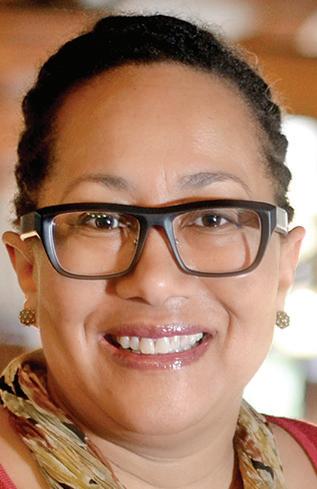
In August 1955, during a long-hot Mississippi summer, 14-year-old Emmett Till was tortured, brutalized, and murdered by two white men. Their racist motivation was explicit and public knowledge that they infamously bragged about their depravity to their friends and neighbors. They were white supremacists, although that almost exceptionalizes their brutality, because, at bottom, they were just white Mississippians.
When Emmett’s body was found in the Tallahatchie River, with his eye gouged out, a bullet in his head, and dragged to the bottom of the river with a cotton-gin fan tied to him with barbed wire, Southern authorities whisked it into a pine coffin and planned to bury him, and their depravity, in Mississippi.
His mother, Mamie Till, an unsung civil rights hero, insisted that her brutalized child’s body be sent home to Chicago—and that the casket be open. The picture of her, in a mother’s Sunday best, grieving over her son’s broken body became an international symbol of the uniquely American commitment to hatred of black people and the horrors this nation was willing to inflict on our bodies to remind everyone of it. But it certainly did not end it. Emmett Till was not killed by the police. But the entire set of state actors—police,
prosecutors, judges—the entire system of criminal justice designed to protect the sanctity of the individual and safeguard democracy refused to convict the two racial thugs, who publicly bragged about their joyous murder of this young black boy. We know that the killings of Trayvon Martin and Ahmaud Arbery at the hands of private American citizens are on a continuum of racial hate with the police killings of Philando Castile and George Floyd. And Michael Brown.
During the summer of 2015, Pulitzer-Prize winning poet Claudia Rankine published an op-ed in the New York Times about the American fetish for murdering black people, entitled, “The Condition of Black Life Is One of Mourning.” And it is. We mourn Emmett Till. We mourn his mother, Mrs. Mamie Till, who thought, that, if the nation saw what white hatred had done to her son’s young, tender body, perhaps we would stand up. We didn’t. Instead we ring the names of those who continue to be murdered by the state or by its inaction.
How many black bodies does it take for one black body to matter? Today’s moving pictures, captured on cell phones, have replaced the haunting tragic picture of Mamie grieving her lost son. For some, these videos function as the ultimate racial pornography— racial snuff films that fulfill their racial fantasies. What do they mean to the rest of us? We didn’t answer Mamie Till’s call in 1955. We didn’t answer the calls of any of the names we have rung.
If Claudia Rankine captures black life as a condition of mourning, Ellis Cose captures it as a state of rage. In his book Rage of a Privileged Class, he explores how professional black Americans experience
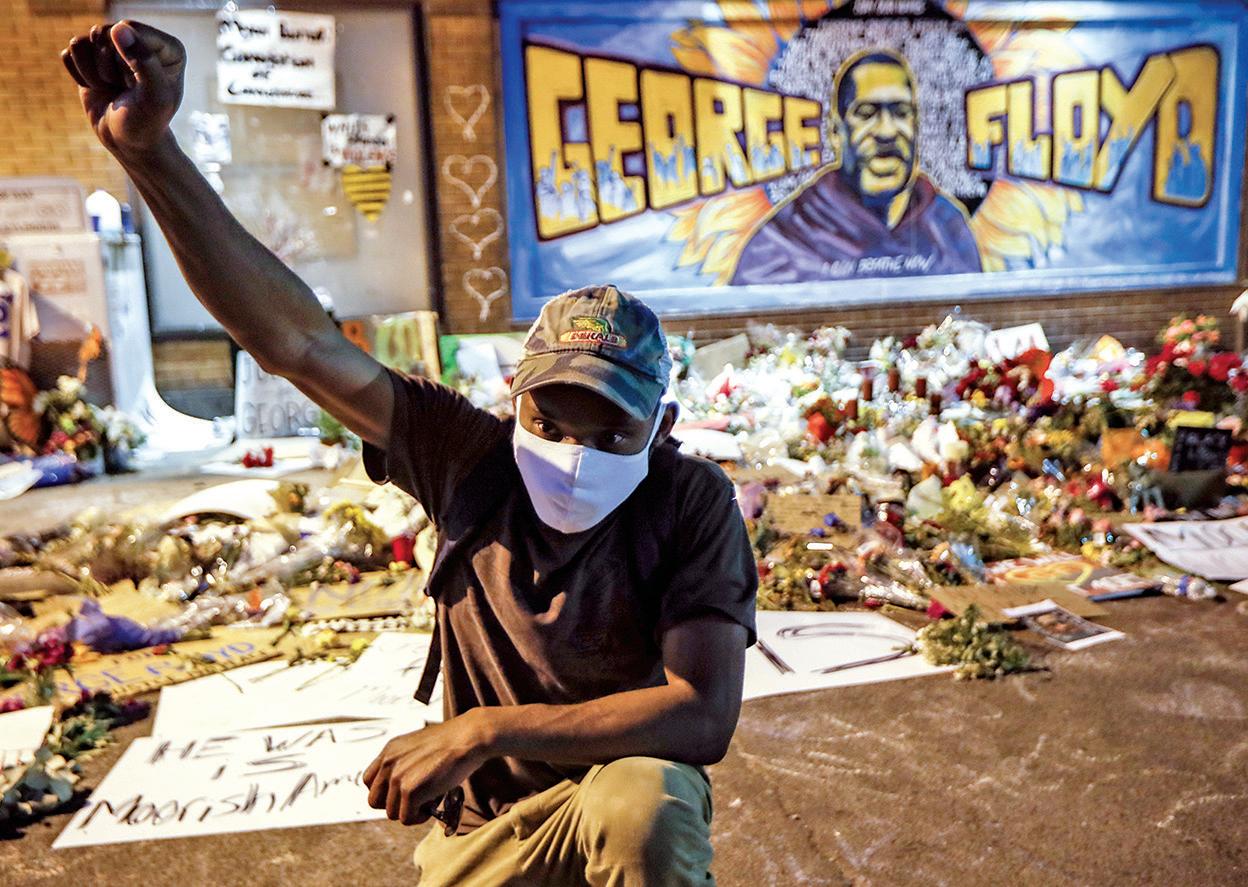
life in a racist country that both needs and despises us. I cannot speak for my Washington University colleagues, but I suspect I am not alone in waking up many mornings with a sad, sick anger about America’s hypocrisy. Unlike totalitarian states that announce repression in their laws and values, the United States uniquely erected a nation at once committed to enslaving and brutalizing black people and announcing to the world its aspiration to be the first modern democracy and one built on the sanctity of the individual.
Mourning and rage. Grief and anger. Despair and damnation. It is yet another take on W.E.B. DuBois’s still prescient trope of black Americans’ double consciousness.
Sixty-five years after Emmett Till’s torture and murder, we are in yet another long summer of black death. I can-

not say when it started, exactly, because black death in the United States never really ends. It more sort of rolls into hills and valleys and the hills are so high that the valleys begin to appear to be the norm.
In this last three months, since the beginning of the COVID-19 pandemic, we have beheld almost every iteration of black death. We have seen the murderous racial neglect of health care systems; the disposability of so-called essential workers, disproportionately black; the emergence of racial comorbidities into the nation’s lingua franca. We also have seen the black death of our continued commitment to racial violence.
What would it mean for this season, for this unbearably blistering hot season of black death to end? It will only change because we decide that it is undemocratic. Un-American.
In her Nobel Prize lecture, Toni Morrison tells a story of an old, blind woman. A group of young people come to her to play a joke. They tell her they hold a bird in her hands and ask her if it is alive or dead. Because she is blind, they think she cannot see. She tells them, “’I don’t know ... I don’t know whether the bird you are holding is dead or alive, but what I do know is that it is in your hands. It is in your hands.”
Morrison’s old woman is right. The future is in our hands. Whether it lives or dies is our decision.
Some people call on us to deepen our commitment. Let me say this—we cannot deepen the commitment any more. The commitment cannot be any deeper. There is nothing else to say; nothing else to promise. I was heartened when Chancellor Andrew D. Martin shared
that he hesitated to make a statement because he wanted action. We have to act. Chancellor Martin has called Washington University to action. My colleagues are some of the smartest, innovative, and creative people I know. Our students’ brilliance and commitment to social justice inspires me every day. I have the privilege of working with university staff whose commitment to our mission and this community knows no bounds. What would it look like if Washington University put the same energy into ending structural racism that we put into curing cancer? We helped to putting the Rover on Mars? What if we put the same resources into bringing white supremacy to its knees? What if undergraduates came here to learn to major in anti-racism in the same numbers they came to major in pre-med? What if we gave the faculty the resources it needs to do path-breaking research on race and racism? What if we decided to invest in our Department of African and African-American Studies to make it best in class? What if we dedicated ourselves to making our home, St. Louis, not a name on a list of racial violence and inequity but instead a model of a future of urban equity and democracy? What if we led the nation in finding models for police accountability and equitable policing? What if we acted on the resolutions we have made, the reports we have commissioned, and the initiatives that languish? From our grief and rage there are only two options left—action or despair.
Adrienne D. Davis is vice provost of Washington University and the William M. Van Cleve Professor in the Washington University School of Law.
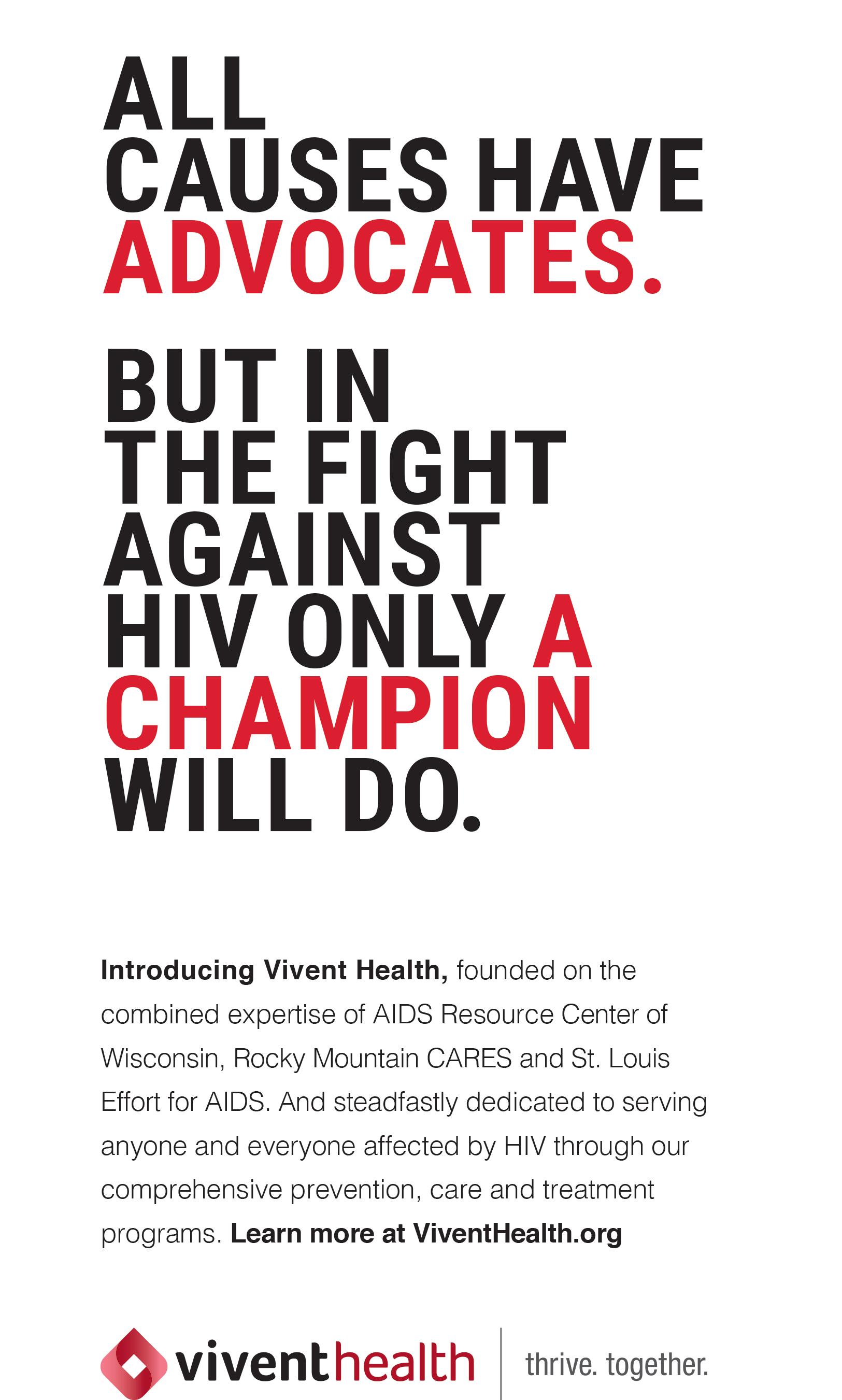
assigned a special prosecutor to the case due to a conflict of interest. Timothy Swope, a Florissant police officer and the son of Bell’s director of operations, was riding in the police SUV when Smith struck the fleeing man.
Smith’s attorney Scott Rosenblum claimed the incident on June 2 was “simply an accident.”
Florissant Police Chief Timothy Fagen fired Smith after initial protests but did not arrest him. Florissant Mayor Tim Lowery and the police department have been the target of daily protests by the group Respect Us demanding that Smith be arrested and charged. One June 15, Respect Us also began protesting Lohmar.
The St. Louis County Police Department investigated the crime and issued the probable cause statement on which Lohmar based his charges. The police report indicates that the victim suffered a broken ankle.
A different video of the assault was first posted by Real STL news. Cop Blaster was the first to identify the assailant as Detective Joshua L. Smith.
Continued from A1
had previously requested that the center be shut down due to COVID-19 but were ignored, according to a representative.
“Those workers are coming in and out, they’re going to their families,” Baker said.
“It’s dangerous for them, too.”
Most of the Department of Youth Services (DYS) workers, Baker said, are black.
“The likelihood of who’s going to die is one of the workers or their family members,” Baker said. “This isn’t good for anybody.”
So far, 14 of those workers have been infected. Some,
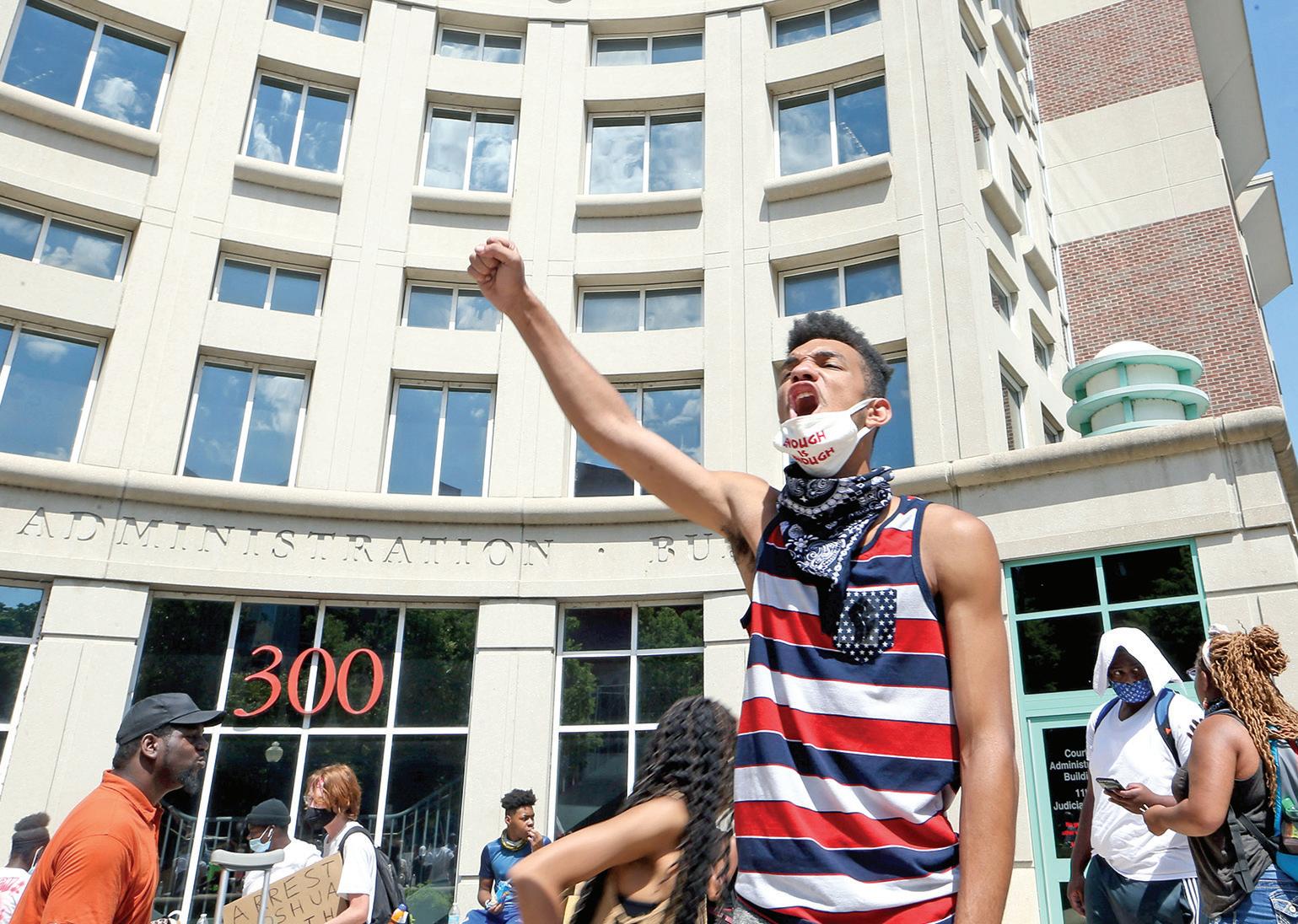
like youth care monitor Kevin Anderson, have experienced cases of COVID-19 dire enough to make local news.
On Thursday, June 11, a group of community members led by MCU made good on an earlier declaration that, unless all 28 minors are released to their families or to facilities where they can quarantine separately, they will continue to protest. The group has been organizing around this issue since May 8, after the first case of COVID-19 in the facility was announced.
As several dozen community members, led by pastors with MCU, gathered in front of the secure facility, several others assembled in their cars to lend their support by honking
– maybe loud enough that the youth inside could hear.
Kristian Blackmon, an organizer with the Campaign for Youth Justice and MCU, said that if Scott Odum, the director of Missouri Youth and Family Services, does not respond to the group’s demands, the protests would escalate. She pointed to a large poster reading “scott.odum@dss.mo.gov,” and suggested that protesters “flood his email.” Within two days, Odum
n “We’re standing here as a community, in front of these windows. I want every child in here to see us in the streets for them.”
had agreed over email to meet with the group, according to Rev. Dietra Wise Baker, but as of press time no meeting had been scheduled.
– Kristian Blackmon
The St. Louis American contacted Odum for information on the current health and sanitation practices within the Hogan Street center; his response will be reported when received.
“We were here, over a month ago, when we first heard about the first case of one of the youths in this facility catching COVID-19,”
Blackmon said. “We asked for immediate release then. We’re not asking today, we’re demanding.”
She directed her words up to the darkened windows of the youth center rather than at the assembled crowd. “We’re standing here as a community, in front of these windows,” Blackmon said. “I want every child in here to see us in the streets for them.”
“You aren’t alone! We love you!” Blackmon shouted.
According to a report from the Council of State Governments Justice Center, juveniles who are incarcerated have an 84% likelihood of returning to the prison system as adults.
“We’re fighting for all the

black and brown youth, all the youth that are killed in the streets every day,” Gandy said. “We’re just fighting for the youth that are still here, the youth that can break that prison pipeline.”
Gandy suggested that resources currently spent on the Hogan Street center would be better served on mental healthcare resources for youth.
“COVID gives us an opportunity to think about the things we’ve been talking about for a while,” Gandy said, “like putting some of the infrastructure that they have in the building back in the community.”
She used the example of the DYS workers that kids often grow to rely on as mentors. They are then entirely cut off from those mentors after their stay in DYS custody, which lasts an average of one year.
“Once those kids leave the facility, they don’t have access to those trusted caregivers, supporters anymore,” Gandy said. “So those kids return home and they don’t have that same level of support.”
Baker said that making the mental health treatment the kids have access to in DYS facilities accessible in their own communities might allow them to gain the benefits of facilities like the Hogan Street center without exposing them to COVID-19 risk of group housing.
At one point during the rally, a call to defund the police and use some of that funding to “give these babies the care they need” was met with cheers.
According to the Sentencing Project’s juvenile COVID-19 tracker, on June 11 there were 627 youth cases of the coronavirus in juvenile detention centers nationwide and 704 staff cases. In some states, such as New Jersey, the number of young people in juvenile detention is being decreased due to the pandemic, while those who are still detained are given access to regular testing for the virus.
Missouri Governor Mike Parson has announced that all youth and staff in state facilities have been tested twice since the first positive case at Hogan Street was announced on May 8, though no children have had their sentences changed or been relocated due to the pandemic. The state added on June 10 that all children in their care who have tested positive for the virus are being isolated and that staff “will discuss and practice to the extent practicable social distancing within a group.”
For MCU, however, that is not enough.
“The conditions of confinement in the Missouri Department of Corrections for youth have proven they are not what they should be,” said Rev. James Ross, pastor of Pilgrim Congregational UCC. “Youth who should have been home are now infected.”
Continued from A1
because Avery has a “very minimal arrest record.”
The day before, on June 11, Cohen had ordered that Avery be released on house arrest with significant restrictions — including no access to a phone, computer or use of social media even through a friend or family member. But that afternoon, the U.S. Attorney’s Office issued a motion to have the judge reconsider, saying that the government had new evidence.
That evidence was a Facebook livestream shot on May 1 of Avery bad-mouthing a city bike cop at a protest, when people were decrying the city’s decision to clear homeless tent encampments downtown in the middle of the pandemic. Reilly repeatedly tried to tell Cohen that there
Continued from A1
sented in this double threat, and she’s acting on it.
“If you look at the map where the COVID cases are, it’s very similar to the same map for overdose deaths,” Turner said, referring to North St. Louis County, North St. Louis City and parts of South City.
“When we look at where these disparities are, it brings a lot of questions. Where is the nearest treatment center?
And if you look at the map of treatment centers and locations, there are not too many that are close enough to the high-risk areas experiencing a lot of the overdose deaths.”
Turner saw an opportunity to increase access to Narcan (naloxone), a nasal spray used for treating an opioid overdose, as part of the mass effort to increase access to testing for COVID19. She started with her own clinic, which is a federally qualified health center (FQHC) for low-income families. She has since worked with other FQHCs, including Affinia, to get naloxone at their testing sites as well.
was a connection between this incident and the attack on several bike cops during a June 1 protest. Reilly also argued that there was a connection between Avery’s Facebook posts about how people looted during the Minneapolis protests and the looting in St. Louis at Lee’s Pawn Shop — where retired city police captain David Dorn was killed. However, Avery was incarcerated on May 31 – the day before that looting and killing.
“We agree he has a First Amendment right, but this is what exceeds it and why we say he violated the statute,”
Reilly said at the June 12 hearing. “He was making some very, very threatening posts and if you look at the timing in the midst of riots...”
Cohen cut Reilly off before he could finish, saying that the hearing was to decide if Avery was too much of a danger to
spiritual and social support,” Turner said. “So, if they are doing testing there and they can also have naloxone available at the church, it could help destigmatize things.”
On July 9, Turner will receive the 2020 St. Louis County Children’s Service Fund John Anderson Excellence in Mental Health Award, as part of the St. Louis American Foundation’s Salute to Excellence in Health Care virtual award ceremony.
Throughout Turner’s career, she has been passionate about destigmatizing treatment for addiction, especially in the black community. At her own clinic, she is a big advocate for integrating family health medicine and addiction medicine.
n “If you look at the map where the COVID cases are, it’s very similar to the same map for overdose deaths.”
– Dr. Kanika Turner
“People can come for COVID testing, but if they need access to naloxone at these testing sites, they’ll have access to Narcan as well,” Turner said. “I think it’s unique that we’re bridging those two.” Turner is also helping to spread this concept among the proposed testing sites in churches, located in areas hardest-hit by the pandemic. She is working alongside Dr. Fredrick Echols, acting director of the City of St. Louis’ public health department, and the city’s clergy advisory board.
“In the black community, the church is such a strong
“For me bringing them under one roof, it helps to establish that trust,” she said. Substance abuse is a chronic disease, she said, and she has spent much of her career working to change the perception that it’s a “moral felony” that people need to handle on their own.
Her patients have been taking buprenorphine to treat their addictions for several years, and many of them have been able to turn their lives completely around.
This is another area where the COVID-19 pandemic has actually made it easier to treat people. Prior to the pandemic, people had to come in for their first treatment visit face-to-face with a doctor. That requirement has since been waived, and the visit can be done through telemedicine — which is a huge step in expanding access to treatment, she said.
“We’re removing some of those barriers on the health care side,” she said.
Emily Koenig, executive director of the St. Louis County Children’s Fund, said Turner’s work in the pandemic extends her previous work.

the community to be held on house arrest — the highest level of detainment outside of a jail cell. But Cohen couldn’t help adding, “I mean, Lee’s Pawn Shop. That’s just really a stretch. You can’t really connect Avery to the pawn shop shooting. If you could, I’d like to hear about it! I think everyone would.”
Reilly yelled back, “He’s calling out looters!”
Reilly was referring to Avery’s Facebook posts on May 30, where Avery wrote about the looting taking place in Minneapolis. Avery’s defense attorneys have argued repeatedly that he was reporting on what he saw, not encouraging others.
“I’m not saying he was directly involved in that,” Reilly said to Cohen, “but he is calling out, advocating looting. And when I look at the timing of his posts, I absolutely say it’s relevant to the threat he
“Dr. Turner is building her career around caring for communities and working to decrease disparities that have become even more apparent as a result of this pandemic,” Koenig said. “In addition, as a young physician she is working to address the opioid epidemic by working in collaboration with the faith based community through her organization Faith Based Initiative.”
Turner grew up in North
presents to the community and the bike patrol officers.”
Reilly also said that Avery posted “Off the pigs,” which is also “relevant to his state of mind and the threat he presents.”
Cohen responded, “Well, I’m probably older than all of you. ‘Off the pigs,’ that’s a throwback. Anyway. (She laughed.) Anything else, Mr. Reilly?”
“Judge, he’s a known figure in these events, and he’s a director,” Reilly said. “He’s a leader in some of these protest movements, so his posts do carry weight. I know he was in custody, Judge, but it’s possible to incite people and then, once they’re incited, they’re incited. So that goes to the danger he presents.”
Suarez addressed the allegation that the violence on June 1 was connected to Avery’s posts.
“What [Reilly] is not
St. Louis County, graduating from the Hazelwood School District. Then she went on to earn a long line of degrees, all the way up to her medical degree, from Saint Louis University. She is now the clinical instructor at Saint Louis University School of Medicine Department of Family and Community Medicine. She is the creator of the Faith Based Opioid Initiative working with communities of faith primarily in African-
providing is any nexus between Mr. Avery’s free speech and the violence that occurred in the aftermath of George Floyd protests,” Suarez said. “I think Mr. Reilly is giving a lot more influence and power than this young man really has. There are literally hundreds of people out there protesting and posting on Facebook and encouraging others.”
In Avery’s first court appearance, the U.S. Attorney’s Office told the judge that Avery was a flight risk because he had “no community ties of any kind to St. Louis.” The representative (not Reilly) alleged that Avery doesn’t live in St. Louis and he “traveled from out of state for the sole purpose” of inciting riots. In fact, Avery has lived in St. Louis his entire life and runs his own lawn service business, as well as volunteers for a group that searches for missing children.
American neighborhoods in St. Louis to increase awareness of recovery, treatment, and preventive resources. During her time at Family Care Health Center, she has done numerous things to impact pregnancy-related health outcomes for minority women, including developing a primary-care model in treating pregnant women with substance use disorders.
“I made the decision I didn’t want to leave St. Louis,” she
On June 12, Cohen asked Reilly one last time why he should be considered a flight risk. This time, Reilly said it was because he received so many letters of support from the community, “which could also go towards resources for flight.”
The judge responded, “I have to say that that argument struck me as a little odd — that the fact he has support and connections here in St. Louis, and that’s why he poses a flight risk. Normally it’s the reverse.” The judge asked Reilly if he had any evidence that these people are “wanting to spirit him out of St. Louis,” and he said, “I don’t.” Avery has been at home on house arrest since Friday, June 12.
The federal charges against Avery have been condemned by the ACLU and Mike Wolff, a former chief justice of the Missouri Supreme Court.
said. “I wanted to stay. With me growing up in St. Louis, I have a feel for issues and concerns of the community here. I have passion to help our community.”
The 20th Annual Salute to Excellence in Health Care Awards will be celebrated online as a free virtual event on Thursday, July 9. For additional details on how to participate, please visit www. stlamerican.com.
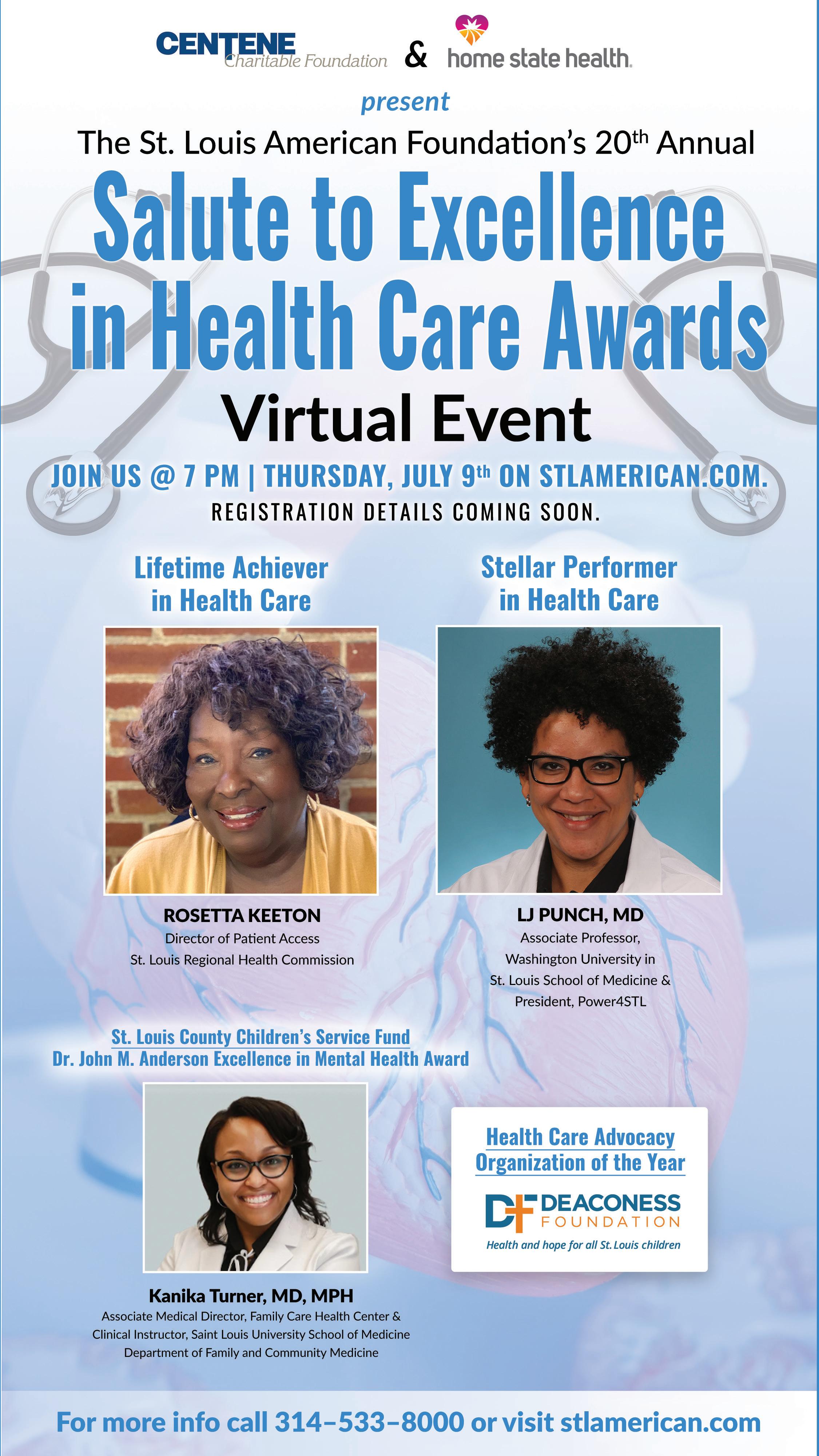
Last Saturday, June 13, the Urban League hosted its massive Food, Toiletries & PPE Distribution to 3,500 families at Jamestown Mall. At the event, more than $200,000 worth of essential items were distributed to families in need throughout the St. Louis County area.
“We are very thankful to our sponsors, partners and volunteers for helping us to execute this program which is much needed in this community as we help those who are in need during the pandemic,” said Michael P. McMillan, President & CEO of the Urban League of Metropolitan St. Louis, Inc.
For information please visit www.ULSTL.com

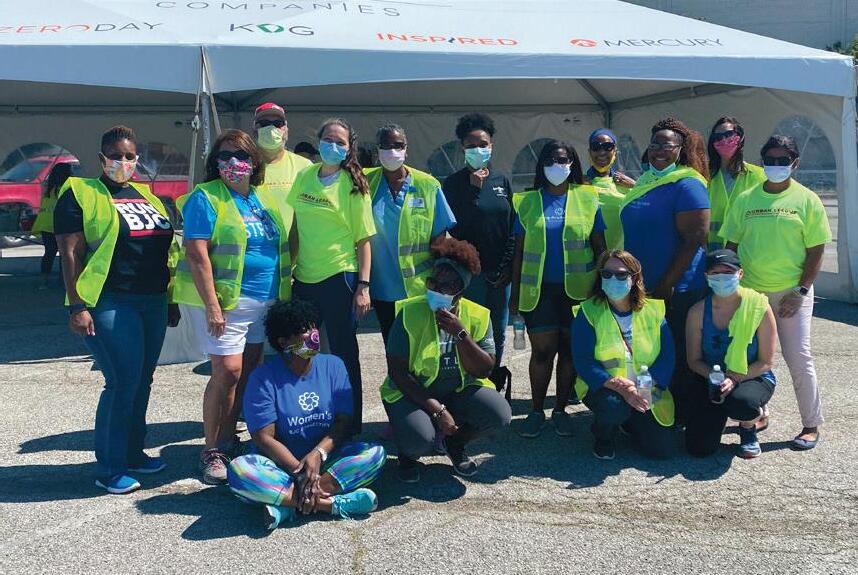
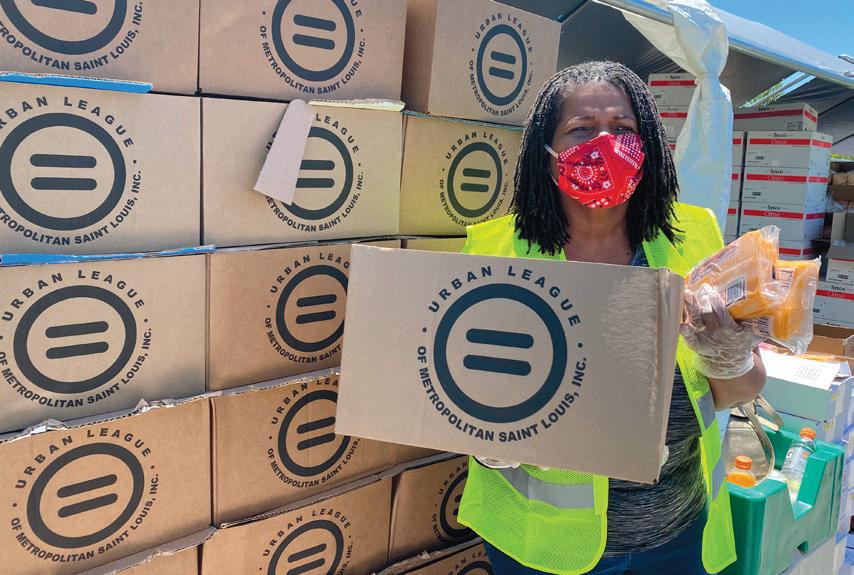
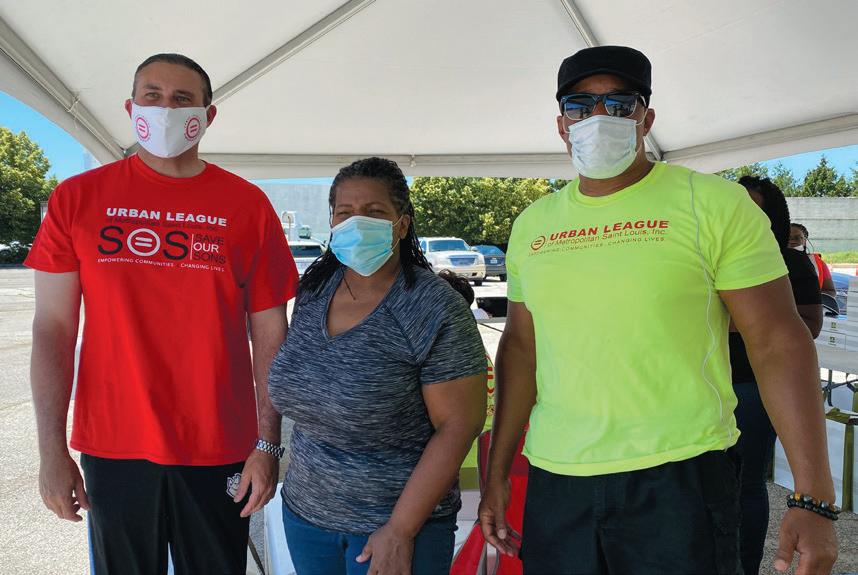
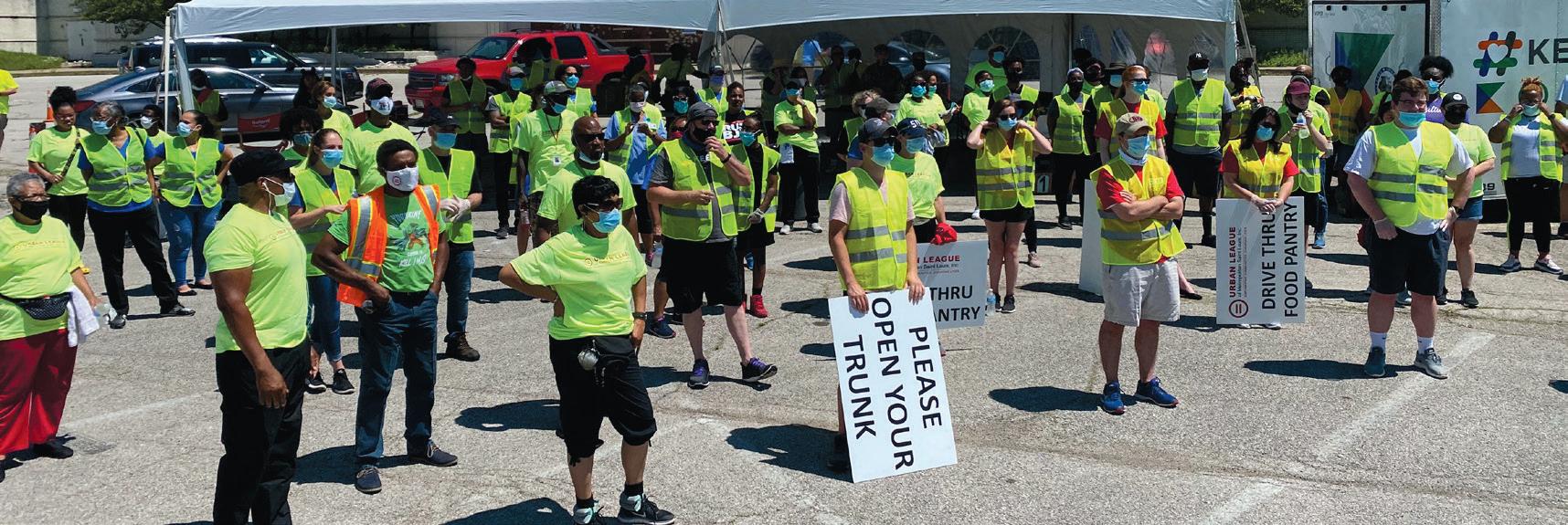
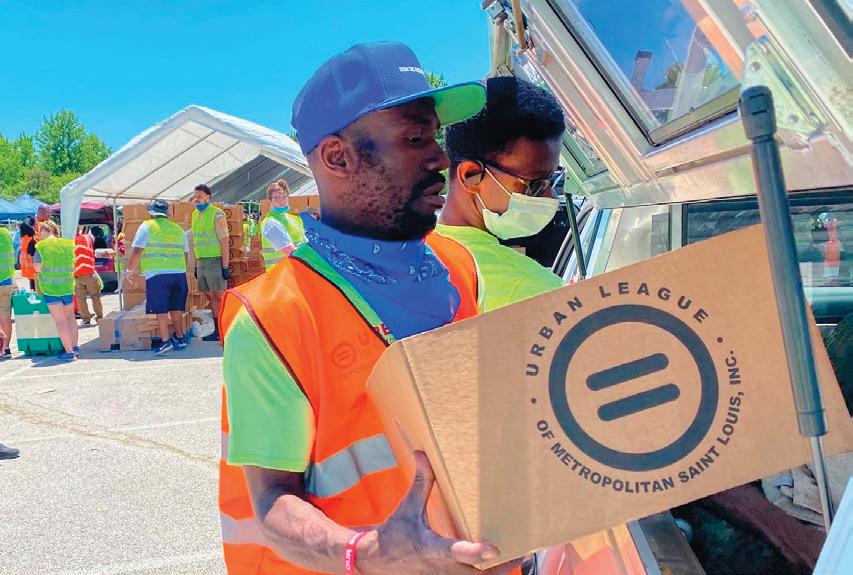


‘The rest of the nation has moved to a defund, demilitarized conversation’
By Rebecca Rivas Of The
St. Louis American
St. Louis Mayor Lyda
Krewson and President of the Board of Aldermen Lewis Reed both announced commitments to address police de-escalation tactics — commitments that community leaders and activists called “P.R. stunts.”
“What Lyda and Lewis are doing is giving you Tylenol for the headache — they’re not addressing the virus,” said Kayla Reed, co-founder and executive director of Action St. Louis. “We have to stop thinking that because we treat one symptom, that we’ve eradicated the virus.”
On June 8, Lewis Reed announced on Twitter that he filed legislation (Board Bill 63) to update the police department’s use of force policy, including banning chokeholds.
The same day, Krewson announced she had “proudly signed” a mayoral pledge through the Obama Foundation to review the St. Louis Metropolitan Police Department’s use of force, with support from Police Chief John Hayden. She committed to engaging the community in conversations, reporting the findings and then implementing reforms based on the findings.
However, this is exactly what the St. Louis community did during the Ferguson Commission process between
November 2014 and September 2015 — when17 meetings were held and nearly 2,000 people participated, said Rev. Dr. Starsky Wilson, who co-chaired the Ferguson Commission.
During Krewson’s mayoral campaign, she was repeatedly asked how she would implement the commission’s nearly 200 calls to action, he said.
“She has since received two reports on how the city was doing on those initiatives since she has sat in the office — and she fails to act on what she already knows,” Wilson said.
“We have no reason to believe that President Obama or the Obama Foundation will change her years of inaction.”
One of those reports came from Forward Through Ferguson, he said, and the other came from the city itself. The City of St. Louis partnered with Forward Through Ferguson and the United Way to publish the Equity Indicators Baseline Report in January 2019.
“It grades the city on how it measures up to the Ferguson Commission’s findings,” Wilson said. “The city is failing in all categories – on its own report.”
Residents also made their voices heard during the extensive police chief search in 2017, which included multiple community forums.
“Voters are not buying it,” Wilson said.
The St. Louis American


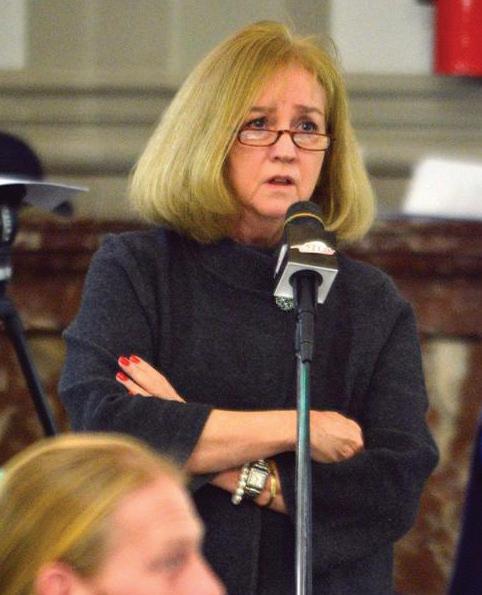
reached Krewson’s office and is awaiting a response.
Heather Taylor, president of the Ethical Society of Police (ESOP), said the actions of the two elected officials are just “P.R. stunts,” while black and brown people are dying.
“The idea that both of them would be presenting this on the same day — it’s sickening to watch them,” Taylor said. “They don’t get it.”
In Reed’s bill, he proposes to ban chokeholds, require deescalation tactics, create a “duty to intervene” policy and require reporting when a weapon is drawn, not just discharged.
Taylor said that chokeholds have been banned for over a decade, and de-escalation training is already required. Tom Shepard, Reed’s chief of staff, said the bill is a just placeholder, and the final form will make chokeholds against the law for police officers — though it does not include this wording in its current form.
“A law is much stronger than any policy,” Shepard said.
“She fails to act on what she already knows,” Rev. Dr. Starsky Wilson said of Mayor Krewson.
“We have no reason to believe that the Obama Foundation will change her years of inaction.”
Photo by Wiley Price
Taylor rattled off a lengthy list of changes that she said would be more effective than the commitments Reed and Krewson put forth. She said they could address qualified immunity for police officers which lets them “get away with murder,” make police records more transparent and available to the public, address racial profiling, and refuse to negotiation with the police union business manager Jeff Roorda. She also suggested holding de-escalation training before officers are hired to see how they respond — because it’s hard to fire bad officers once they are employed.
Taylor said that she agrees with some of the ideas behind “defunding the police” — which are ultimately the same ideas stated in the Ferguson Commission report, Wilson said.
Taylor said there are several organizations that work in conflict resolution, including things like resolving conflicts between tenants. Instead of sending
police, these conflicts could be solved through mediators. Cure Violence, an initiative that works in de-escalating potential gun violence conflicts, should have 10 sites in hot spots, Taylor said.
“We don’t see cities pushing them to the forefront,” she said, referring to de-escalation programs. “They are too busy trying to push airport privatization.”
Reed “championed” the Cure Violence initiative, Shepard said. (Two community groups paid the initial costs to bring Cure Violence representatives to the city, and Reed has pushed the effort legislatively.)
Activist and advocacy organizations recently put forth five immediate demands: defund the police, close the Workhouse (Medium Security Institution), fire officers with past instances of excessive force, free political prisoners, and make reparations for North St. Louis which has experienced decades of disinvestment. Kayla Reed said more specific actions and proposed legislation are forthcoming.
Alderwoman Megan Ellyia Green (D- Ward 15) said that Lewis Reed and Krewson make up two of the three votes on the Board of Estimate and Apportionment — which ultimately would need to approve re-allocating police department funds.
The other vote comes from Comptroller Darlene Green. The comptroller has been strongly in support of closing the Workhouse, the city jail that has been sharply criticized for alleged inhumane conditions. This is a demand that the Board of E&A could approve immediately, said Ellyia Green.
“We could have this closed,” Ellyia Green said. “There are
100 people currently in the Workhouse, and we still have $8 million allocated to keep it open. It’s asinine, when this money could be used for so many things that support people.”
As of June 9, there were 100 people confined in the Workhouse, and 659 in the St. Louis Justice Center. The capacity for the Justice Center is 860. Ellyia Green said even with COVID-19 precautions, those 100 people could move to the Justice Center and the Workhouse could close. But it depends on the “political courage” of Lewis Reed and Krewson, she said.
Shepard said Lewis Reed is taking cues from the city’s Criminal Justice Coordinating Council, which is looking into closing the Workhouse.
“We should reduce the amount of our prison population as much as we can while maintaining the safety of our citizens,” Shepard said. He added that residents sitting in jail for minor, nonviolent offenses takes a negative toll on the community as a whole.
Overall, advocates said the conversations Lewis Reed and Krewson are wanting to have are outdated.
“Much of the energy that has led to the national conversation about divesting from one form of public safety and investing in another — that we now hear about as ‘defund the police’ — a good deal of that energy started nearly six years ago, here in this community,” Wilson said.
“It’s a shame that the politicians here are still trying to catch up on a reform conversation — when the rest of the nation has moved to a defund, demilitarized and abolitionist conversation.”

As part of our ongoing commitment to you, and the region, Siteman Cancer Center is providing greater access to its nationally recognized cancer services, at six regional treatment facilities.
To address the unique needs of cancer patients, our specialized team of Washington University physicians, nurses, and other specialists works together to provide individualized, multidisciplinary patient care, including innovative clinical trials and treatments not available elsewhere in the area.
Our six Siteman Cancer Center locations provide the most advanced and specialized cancer care available in the region. For a list of locations or more information visit, Siteman.wustl.edu or call 800-600-3606
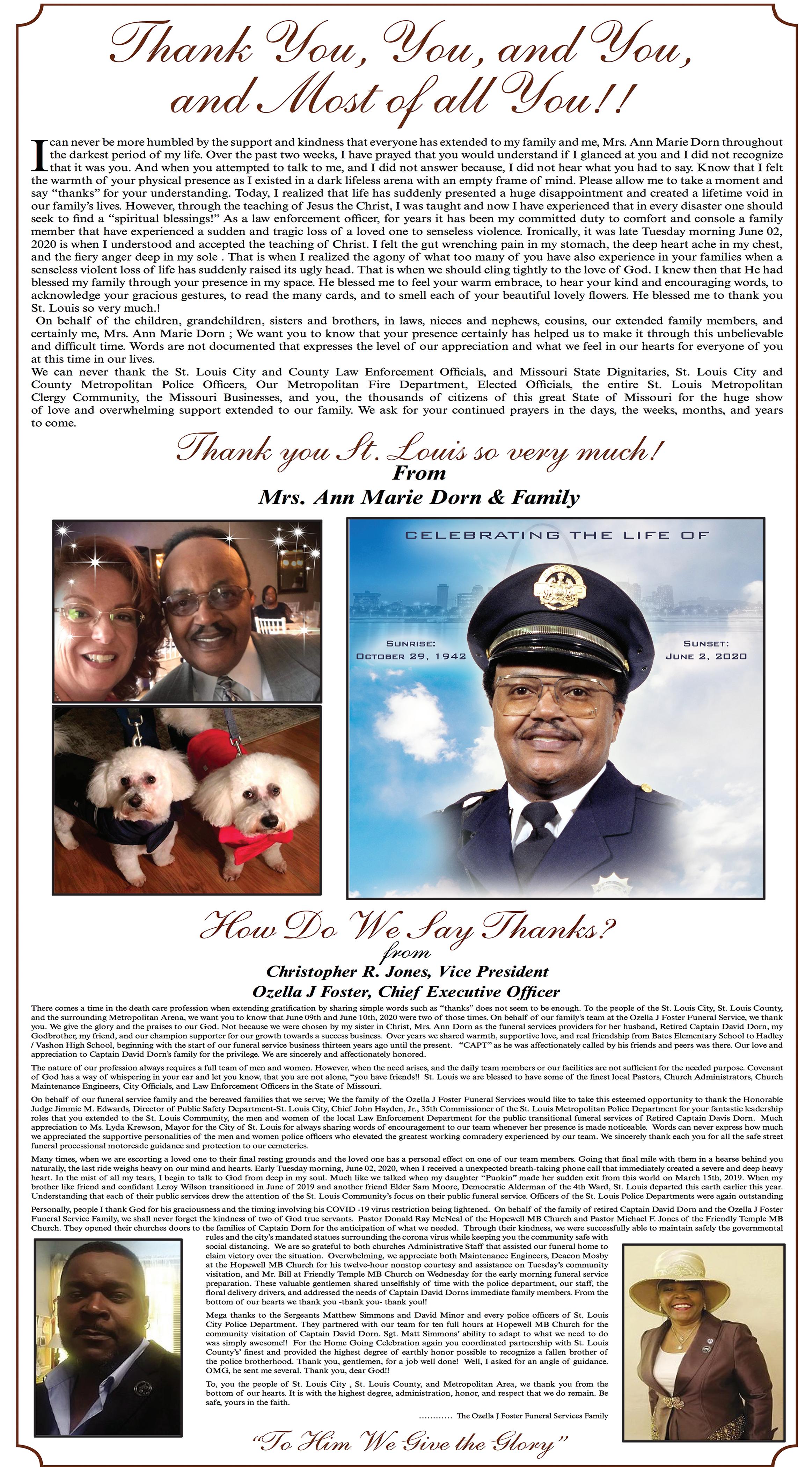
The following guest Political EYE was contributed by St. Louis Treasurer Tishaura O. Jones
As I sat in my bed on June 10 recuperating from a surgery that many women, especially black women, experience daily, I received an email from Tod Robberson, editorial page editor of the St. Louis PostDispatch. As I read the email I was once again reminded of the toxic masculinity that Robberson suffers from.
There is a reemergence in the streets of this nation from the anger and frustration that black people are feeling about the continuing systemic racism that has plagued black people since 1619. The country is in the throes of a pandemic that, according to official statistics from the CDC, has killed at least 30,000 black people. That’s 23% of the total fatalities, when black people are only 13.4% of the total U.S. population. In the City of St. Louis, where Robberson and I both live and work, 65% of COVID-19 cases and 63.8% of COVID-19 deaths have been black people, when blacks form only 45.9% of the city’s population.
And yet, amid unprecedented simultaneous crises, Robberson sends an email with loaded questions about a historic contract awarded to a black woman-owned business by St. Louis’ Treasurer’s Office, which I was elected to lead. The email implies that the only reason this person received this contract is because she is “the single largest” donor to my campaign (which is not true) –and that I should have recused myself from voting for the contract.
If that is the measuring stick that Robberson is using, then no elected official in City Hall should be voting on any contracts. These spurious accusations – and the source of this inquiry by Robberson – is not a news story in his paper, but a complaint from Alderman Jeffery Boyd, a candidate for treasurer on the August 4
ballot; Boyd and I are the only Democrats who filed in the primary election. Before I continue, I would like to provide a few facts about the black female businesswoman Robberson and Boyd are attempting to smear. Sheila Hudson began working for the Parking Division in 2009 as an employee when then-St. Louis Treasurer Larry Williams decided – upon advice from his financial advisors – to outsource certain functions of the Treasurer’s Office. In 2012, Hudson was given the opportunity to become a subcontractor to Duncan, the company that was awarded an outsourcing contract in 2008 to provide on-street parking maintenance and collection. From 2008 to 2020, she has been a subcontractor – first with Duncan and subsequently with the Xerox corporation. In 2015, Xerox (now Conduent) was awarded a five-year contract to provide collection, meter maintenance and installation of new meters and pay stations. Xerox then subcontracted these services to Hudson. The contract expired in 2020.
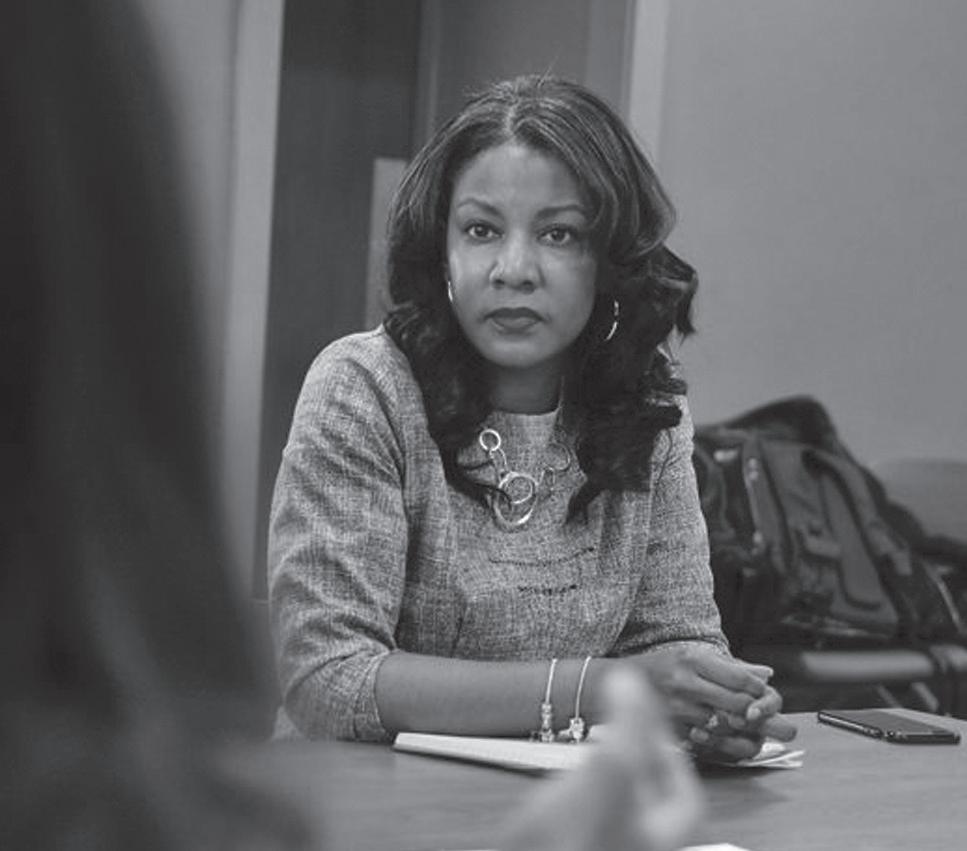
American dream the whitesonly liberals like Robberson like to write about.
What I will talk about, however, is Robberson’s continued racist and misogynistic attack on black women – specifically his vicious attacks on me and Circuit Attorney Kimberly Gardner
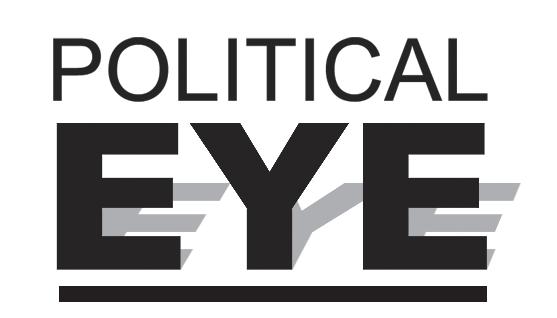
When the contract was put out to bid, Hudson submitted and won a portion of the RFP to provide meter maintenance and supervision of the Parking Violations Bureau with a bid that will save the Parking Division more than $500,000 a year after a full year of implementation. I won’t go into the details of how the contract was procured – because the entire procurement process is online and open for everyone to see (https://tinyurl.com/ Treasurer-procurement) Robberson’s attack on Sheila Hudson, at a time when the entire country is focused on an attempt to create racial and economic equity, is both shameless and reckless. Hudson’s rise from an employee to subcontractor to a prime contractor is the
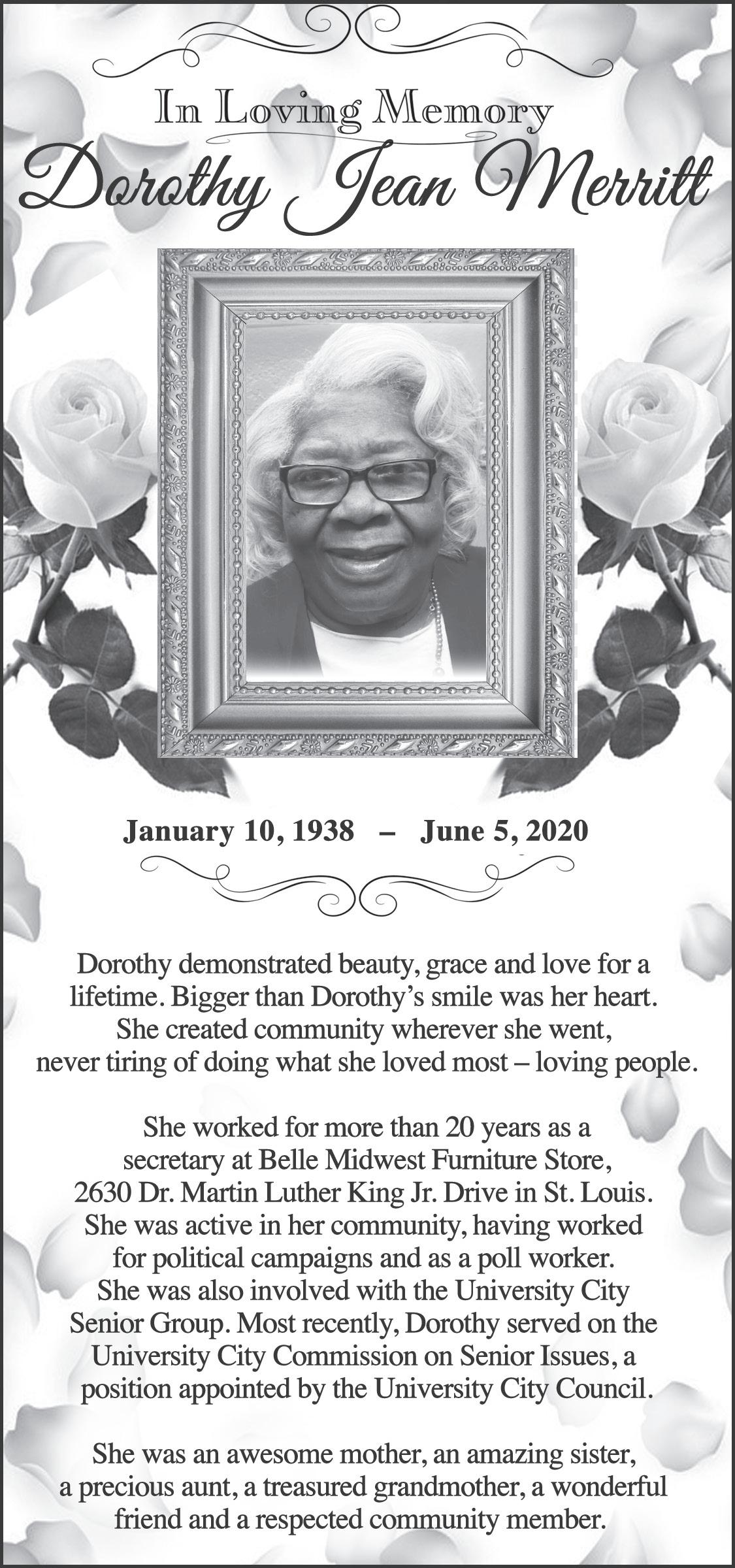
At one point, Robberson wrote three attack editorials about me in the short span of 10 days. He must have been sick, obsessed with me – or both. The attacks were ridiculous to the point of hilarity.
His first jab was at 15th Ward Alderwoman Megan Ellyia Green and myself for endorsing Bernie Sanders for
U.S. president. As a follow up, he attacked me – not once, but twice – for shutting down the parking enforcement activities of the Parking Division during the crux of required socialdistancing regulations within the city due to COVID-19. Not long after I was attacked for making this move, other city and county officials issued a more sweeping shut-down of government and businesses – and were praised for it by the editorial board led by Robberson.
Keep in mind that his vitriol towards me came at a time when health officials were still deep within the learning curve regarding how the virus was spread. Robberson still took it upon himself to assert that I had no legal authority – despite being the parking supervisor – to shut down
parking. He also claimed that there was no evidence that the new coronavirus could be transmitted from parking meters. Yes, this is what he actually wrote.
In addition to having an undergraduate degree in finance, I also have a master’s degree in Health Administration from the St. Louis University School of Public Health and Social Justice. My educational background aided my observation of case studies as the virus was spreading. My decision was to protect, first, the health and safety of my employees.
The vast majority of employees within the parking enforcement department are black women. One of the first municipal employees in Chicago to die of COVID-19 was a parking enforcement
officer. These are mature black women who are the most vulnerable to getting infected with and dying from the coronavirus. In fact, I was the first elected official in the St. Louis region to issue a shelter-in-place order for my employees – and the only one attacked for it.
His next editorial attacked my decision by stating that not writing parking tickets would hamper emergency response to the coronavirus because people would illegally park cars and potentially block access to emergency vehicles. That never happened.
I found Robberson’s most recent attack on Hudson and me particularly problematic because one of my goals as treasurer – and as a public servant – was to improve the minority participation goals of the Treasurer’s Office. Our office has done this through the hiring of a firm that is a 50/50 joint venture of PFM and CCG Asset Management. This contract has yielded $30 million in investment returns over the last six years. This is a 10-fold increase from the previous returns with a 50% reduction in fees paid to the consultants from the previous contract. Robberson and the Post-Dispatch editorial board’s attacks will not stop my office from pushing inclusion for minority and women-owned businesses.
As was eloquently stated in the viral clip by Kimberly Jones on YouTube, white people have been playing an emotional Monopoly game with black people for 400 years, and this is a game where we didn’t get to play. And, in the last 50 years, when black people built up our own wealth, and white people didn’t like what we were doing, they burned it down or took it away. How can we win when the game is fixed?
This latest attempt to ruin my reputation, and the reputation of Sheila Hudson, is Tod Robberson’s latest, tired effort to keep us from passing Go on the Monopoly board.
Tishaura O. Jones is treasurer for the City of St. Louis.


“TakingCareofYou”
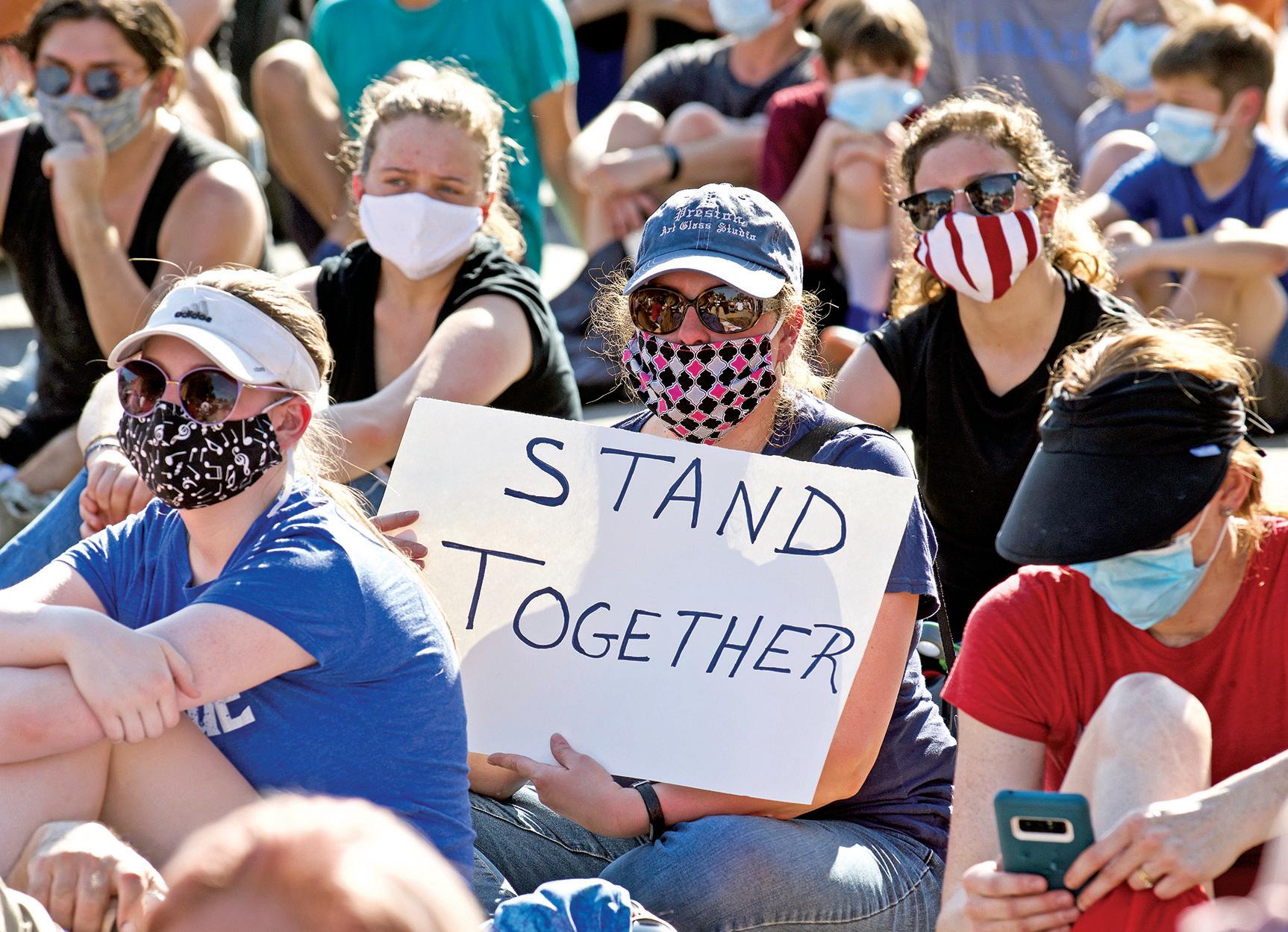
“I now call on my white friends to use the unearned privilege of birth for the benefit of all,”
and
By Rich Liekweg
St. Louis American
For The
I grew up in Alexandria, Virginia, a suburb of our nation’s capital, in the early sixties. I am the youngest of six children, the third son in an Irish Catholic family. My mother was a grade school teacher and my father a federal-government civil servant. We lacked for nothing, and only later in life would I begin to understand the patterns and injustices of structural racism and the inherent privilege of being born a white male. My early childhood was marked by the Civil Rights Movement – riots in Washington, D.C., my home town; the assassinations of President John Kennedy, Dr. Martin Luther King Jr. and Bobby Kennedy. TC Williams High School opened and was in my backyard. Remember the Titans! TC Williams integrated high school students from the white high school, Hammond High, and the black high school, George Washington High. We were taught to respect everyone regardless of age, race or gender and to give back to help those who had less, lessons
that have stayed with me.
During my many summers in college, I worked for the City of Alexandria Parks and Maintenance Department. It was there that I learned the value of hard work, the value of a college education, and the value of not judging people based on race or first
n Use the unearned privilege of birth for the benefit of all. If you cannot, then step aside, sit down, and get out of the way.
impressions. The black men I worked with those summers, including my crew chief, Mr. Boone, took this young “college kid” under their care. They embraced me, while the white men criticized me for working too hard and hanging out with those who did not look like me.
When my father dropped dead of a heart attack the summer between my sophomore
Any residential facility with many people in one closed location is eligible
By Sandra Jordan
Of The St. Louis American
Betty Jean Kerr People’s Health Centers is offering two services for elderly populations as they try to stay safe from the new coronavirus – free COVID-19 testing and a free behavioral health hotline.
People’s has a mobile team that takes free COVID-19 testing to retirement and vulnerable communities. Additionally, it is offering a free a mental health hotline (866-376-0962) for older citizens who may be experiencing stress, depression, anxiety, insomnia, isolation and loneliness from sheltering in place due to the pandemic.
The CMC Retirement Village at 3330 N. Kingshighway in St. Louis was the first stop for the mobile testing unit on June 1, where residents and staff members were tested for COVID-19. “We were able to safely and
n Retirement centers and other locations that want to participate may call People’s to schedule free onsite COVID-19 testing at 314-627-5405.
successfully test more than 40 staff and residents within two hours,” said Dwayne Butler, People’s CEO.
After people get tested, the health care team gives them discharge instructions on how to stay safe and to quarantine until they get their results, which takes three to five days. In the case of a positive result,
and junior year in college, it was Mr. Boone who kept an eye on me each day on the job until I returned to college. And, we checked in on each other every time I came home from school.
Before he died, my father encouraged me to pursue a career in hospital administration. The summer between my junior and senior year in college, my older brother helped open a door for me at a hospital in Michigan. That experience led to my attending the University of Michigan for graduate school in public health and business. It was my public health education that introduced me to the concepts of what are today known as the social determinants of health and health inequities.
After graduation in the late eighties, I moved to Durham, North Carolina, to start my health care career. Durham was a segregated community with two hospitals. It was home to Duke University and to a large African-American insurance and banking industry, known by some as the Black Wall
See RACISM, A13
Deaconess, Missouri Foundation for Health partner with Forward Through Ferguson
American staff
n “Those vigorously fighting for racial justice require the ongoing support and resources that will allow them to heal and carry the work forward.”
Deaconess Foundation Forward Through Ferguson and Missouri Foundation for Health have collaborated to establish the St. Louis Regional Racial Healing Fund to invest in healing community trauma and changing the conditions that reinforce systemic racism. With a matching grant from Robert Wood Johnson Foundation and a growing pool of participating organizations, $1.4 million has already been committed to the effort. Through a community-led grantmaking process, the fund will support efforts to develop capacity and infrastructure in the racial justice movement to envision, articulate and create a transformed St. Louis region through community organizing and healing arts.
– Dr. Bob Hughes, Missouri Foundation for Health
The initial group of 10 diverse funders of the effort include: Deaconess, Incarnate Word Foundation, Lutheran Foundation of St. Louis, Midwest Bank Centre, Missouri Foundation for Health, Robert Wood Johnson Foundation, St. Louis Community Foundation, St. Louis University’s Institute for Healing Justice and Equity, the Unitarian Universalist Veatch Program at Shelter Rock and YouthBridge Community Foundation.
“Nearly six years after the Ferguson Uprising, we have a renewed urgency in our nation to lean fully into the discomfort of racial healing required to build a just and equitable society for our children,” said Rev. Dr. Starsky Wilson, president and CEO of Deaconess Foundation. “These partners
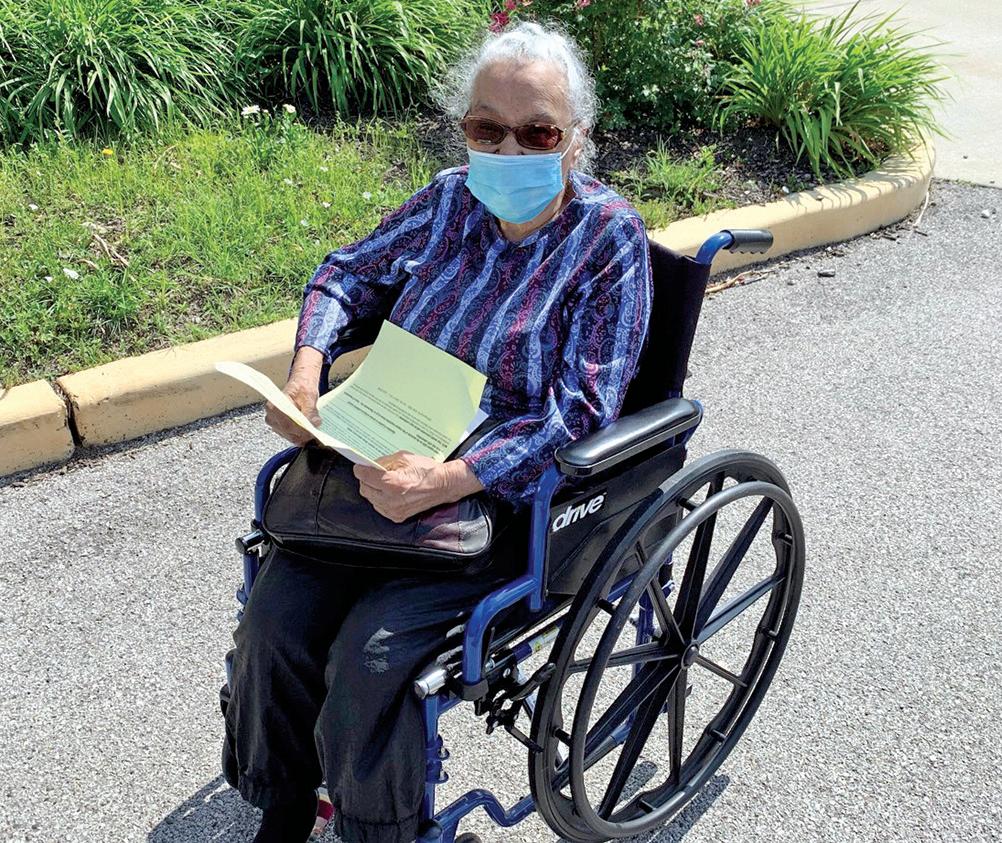
The first patient leaves the COVID19 testing station set up outside of CMC Retirement Center, 3330 N. Kingshighway Blvd., by People’s Health Centers on June 1. Retirement centers and other locations that want to schedule free onsite COVID-19 testing for its residents and staff should call 314-6275405.


“TakingCareofYou”
By Chris King Of The St. Louis American
In his state of the state speech on January 15, Missouri
Gov. Mike Parson said that Missouri cannot afford to expand Medicaid, but a new report released by Missouri Foundation for Health suggests that he is mistaken.
In his speech, Parson responded to a ballot initiative to expand Medicaid in Missouri, which the Republican-dominated Legislature has refused to do. “Make no mistake about it,” Parson said. “The vague proposal they are not explaining or purposely withholding is a massive tax increase that Missourians cannot afford.”
Continued from A12
federal and state health guidelines are followed.
“We report it to the patient, and we report it to the respective health department and then they take over from there,” said Dr. Tifani Sanford, clinical project manager at People’s Health Centers.
Butler said partner support is making it possible to take testing to some of those most vulnerable to the coronavirus.
Late last month, Home State Health partnered with Quest Diagnostics to distribute up to 1,000 test kits each week to federally qualified health centers in St. Louis. Both Affinia Healthcare and People’s Health Centers in St. Louis will receive up to 1,000 tests.
“Testing is critical to flattening the curve in Missouri,” said Nathan Landsbaum, president and CEO of Home State Health. “Flattening the curve” means fewer new cases and death from COVID-19 as illustrated
Continued from A12
Street.
Duke University Hospital, where I started my work, and Durham Regional Hospital, where I would later work, was like a tale of two cities.
Durham Regional Hospital formed when a white hospital and a black hospital merged in 1976 to form the town’s public, community hospital. I became its president in 1998, shortly after Duke leased the hospital from the county. Because of the history, race was always a factor in every and all actions. Upon reflection it taught me a lesson I would later be able to put a name on: the Platinum Rule, which is to treat others the way they would like to be treated. And, it taught me the value of inclusion and diversity.
Today I live in St. Louis, with my wife and daughter. My life lessons have helped prepare me for the honor of serving and helping to lead one of this country’s most success-
Continued from A12
realize the harmful, traumatic effects of systemic racism and are committed to supporting community organizers, activists and residents who are leading social change efforts.”
“Achieving racial equity is going to take all of us working
Missouri Foundation for Health
That proposal will be on the August 4 ballot as Amendment 2. It would expand Medicaid for persons 19 to 64 years old with an income level at or below 133% of the federal poverty level. The ballot language says that the state would incur “one-time costs of approximately $6.4 million and an unknown annual net fiscal impact by 2026 ranging from increased costs of at least $200 million to savings of $1 billion.”
The Missouri Foundation for Health report suggests the positive side of that gigantic fiscal range is what to expect.
According to economic projections by the nonpartisan independent organization Regional Economic Models,
Inc. for 2022-2026, Medicaid expansion would increase the state economy of $2.5 billion in economic output and $1.6 billion in gross domestic product and result in a rise in state personal income of $1.1 billion.
This would be due to a projected increase of 16,330 jobs, with 63.7% occurring outside the metro areas of Kansas City (KC) and St. Louis (STL) combined, and 79% occurring outside of the health care industries. The majority of the newly created jobs would pay well above minimum wage, according to the report, with 87.8% in industries paying real wages of at least $15 per hour to full-time workers.
“The impacts would be spread throughout the state
and generally not concentrated in KC and STL, though 56% of the hospital jobs would be created in one of the two cities because their major hospitals attract patients from other parts of the region,” the report concludes.
“While the most significant impact of Medicaid expansion would be a rise in health care spending, the total economic effects would be spread across many industries, with most new jobs created outside of health care, including retail, construction, and government.”
As is the case with all states, the federal government would pay 90% of the ongoing cost of Medicaid expansion in Missouri. Had Missouri acted before a sunset date, the federal
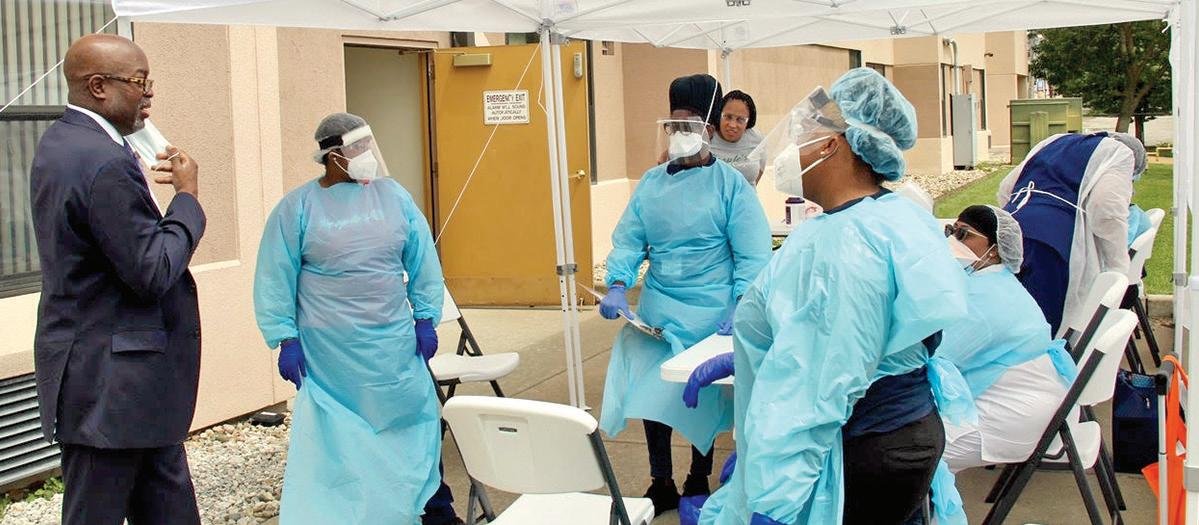
on a timeline graph. Home State Health will also provide oversight and training to ensure test kits are received and processed efficiently.
“We are integrating the Quest test kits into our program, and that partnership and access to their test kits and Centene/Home State’s PPE donations will provide significant support to our program,” Butler said.
People’s is working with its partners to identify retirement, independent, assisted living
ful health care organizations, BJC HealthCare, whose academic partner, Washington University, is recognized nationally and internationally for its basic and translational research and academics. In fact, BJC HealthCare is one of the earliest health care systems created through a series of successful mergers and joinder agreements dating back to the mid-nineties. It is a blended, inclusive organization – Christian, Jewish, safety net, rural, suburban, urban, academic, community, adult and pediatric.
St. Louis is, much like Durham was, still challenged by decades of segregation, structural racism and pockets of socioeconomic despair that exacerbate health disparities between races. The shooting death of Michael Brown by a white police officer almost six years ago exposed how volatile race relations were in St. Louis. And, it placed a magnifying glass on the underlying root causes. Yet six years later, sadly, we have made little progress in improving the quality of life for those most at risk in our community.
together, respecting diverse voices, talents and ideas,” said Dr. Bob Hughes, president and CEO of Missouri Foundation for Health. “The leaders of tomorrow – those vigorously fighting for racial justice –require the ongoing support and resources that will allow them to heal and carry the work forward.”
Through this participatory grantmaking process, a cohort
for the region, working
in health. As a catalyst for change, the Foundation
communities and other locations where people are congregated to make COVID19 testing available throughout the summer.
“We do not go inside the facility,” Sanford said. “Therefore, the patients have to be able to come outside. And we usually set up right outside of the door so that it is easy for them to get under the tent and get tested. But they do have to come out – for the safety of the staff.”
In addition to CMC,
More recently, like everyone around the world, we have been consumed these past few months responding to the spread of the invisible COVID19 pandemic. We know this virus has disproportionately attacked those most vulnerable: the aged, those with underlying health conditions, and those who are challenged with access to housing, food, health care, transportation, jobs, and more. In most communities across the U.S., those most challenged by social determinants of health, are people of color. And in St. Louis, they are our AfricanAmerican neighbors.
As my colleague, Dr. Alex Garza of SSM Health, who has been leading our region’s Pandemic Task Force, reminds me, the virus has pulled the veil back on what we have always known, but maybe choose as a community to ignore – your health status is best determined by your ZIP code, not your DNA code. So, not surprisingly, this virus is attacking those who live in the most underserved ZIP codes in a disproportionate manner.
Another friend who emailed this week painted a picture that
of grassroots leaders, artists, creatives and residents of color will identify specific funding priorities and outcomes and distribute invested funds to a combination of mid-scale and grassroots organizations. These targeted investments aim to heal individual and community trauma, engage a broader range of residents in systems change work, prepare leaders of color to organize for healing justice,
government would have covered all of the costs.
“This report makes a very strong economic argument for Medicaid expansion,” said Ryan Barker, vice president of Strategic Initiatives at Missouri Foundation for Health. “To say nothing of the moral imperative to get more people covered under health insurance, especially during a pandemic.”
More than 500,000
Missourians have filed for unemployment since March 2020, as businesses close and workers lose their jobs, furloughed or have their hours cut. The loss of a job for many people also means the loss of health insurance. Medicaid expansion ensures that more low-income individuals and
Dwayne Butler, People’s Health Centers CEO, talks to staff outside of CMC Retirement Center, 3330 N. Kingshighway Blvd., on June 1. Retirement centers and other locations that want to schedule free onsite COVID-19 testing for its residents and staff should call 314-627-5405.
People’s has conducted COVID-19 testing at Almost Home (for pregnant and parenting teens), Pillars of North County, William Clay Leisure Living Center and Casa de Salud, with plans to visit Pillars of North County, 100 Black Men of Metropolitan St. Louis and the People’s North County drive-through location.
“We are currently taking people who are asymptomatic and right now, we are testing people 16 years and up,” Sanford said. “We are
was even more raw: “young black folks in high violence areas of North St. Louis said: I don’t know each day whether I’m gonna’ live or die, so how is COVID any different? They are not taking any precautions and that helps the virus proliferate.”
Finally, last week we all witnessed the brutal, tragic, inhumane death of George Floyd. A death of a black man at the hands of a white man in a position of power. A senseless death that followed so many others including Ahmaud Arbery, Breonna Taylor, Eric Garner, Philando Castile, Trayvon Martin, Michael Brown and an even longer list. Which brings me back to my life lessons and what role I must play as someone who entered this world at birth with a privilege based on my race and sex, and now privilege as CEO of a large health care provider organization that also happens to be the largest private employer in the St. Louis region and among the largest in the state of Missouri. I firmly believe everything happens for a reason, and you are where you should be at every moment
build local capacity to nurture support, and cultivate healing assets and align resources for long-term sustainability. Their progress and goals are guided by the Ferguson Commission Playbook, https://tinyurl.com/Fergusonplaybook. Forward Through Ferguson (FTF) will lead the community outreach and engagement efforts this sum-
parents can get health coverage during the pandemic and economic recovery.
“Whether you live in a state that has expanded Medicaid or not, you’re paying for it through your taxes, you’re just not getting the benefits if your state isn’t participating,” said Missouri Foundation for Health Vice President of Health Policy Sheldon Weisgrau. “Instead of bringing our tax dollars back home, currently we’re sending our money to California, New York, and other states that have already chosen to expand their Medicaid programs.” To read the report, visit https://tinyurl.com/MFHMedicaid.
For free behavioral health support for elderly residents during the COVID-19 pandemic, call 1-866-376-0962. That number is staffed by mental health specialists from Amanda Murphy Hopewell Center from 8 a.m. to 8 p.m.
also going to places that aren’t retirement facilities. Anyone can call who has congregant living, where there’s a bunch of people living in one closed space.”
Retirement centers and other locations that want to participate may call People’s to schedule free onsite COVID-19 testing for its residents and staff.
The number to call is 314-6275405. For free behavioral health support for elderly residents during the COVID-19 pandemic, call 1-866-376-0962.
of every day. And with privilege comes enormous responsibility. That responsibility was underscored this week by another email a black friend sent Thursday with a subject line that read: “Email to White Friends.” In it, he told his story about how close relationships between races led to great success on the football field in high school. It also taught him, “Right is right, and wrong is wrong.” He ended with a call to action for his white friends: “Please step forward right now within your station in America. Don’t be silent. History tells us what we can expect from silence and tolerance to hate.”
My parents taught me to give back, to stand up for those not as economically fortunate, to be principled, and to speak the truth at all times. These tragic events this week, the 100,000+ deaths accelerated by COVID-19, and the continued health care and racial disparities in our community, highlight the stark realties of our public health crisis in St. Louis and across America.
This public health crisis is
mer to form a cohort of community leaders that will drive the development and execution of the grantmaking process.
“Isolation yields a lot of different mental health, behavioral health issues that need to be addressed – and we’re beginning to see the manifestation of this in this crisis,” said Dwayne Butler, People’s Health Centers CEO.
“It is equally important that we are addressing that need as we do the testing. And much of it will be loneliness in those populations.” Butler said addressing those needs in the older population will be important to coronavirus mitigation efforts. He said People’s hotline will be urban and elderly-centric in its focus.
not the result of COVID-19, it is not the result of poverty, it is not the result of gun violence, it is not the result of underfunding our public health system. I firmly believe it is the result of racism in America – structural and institutionalized racism that privileged white men have perpetuated for far too long.
I can’t deny my privilege, but I can stand up, step forward, and call out these injustices that people who look like me have perpetuated, supported and promoted far too long. And I will do just that each and every day going forward. I now call on my white friends to do the same. Use the unearned privilege of birth for the benefit of all. If you cannot, then step aside, sit down, and get out of the way. The health and future of all God’s children depend on it.
Rich Liekweg is president and chief executive officer of BJC HealthCare, the largest private employer in the St. Louis region. This message was shared with BJC’s 31,000 employees on Monday, June 1, 2020.
The cohort will include grassroots leaders, artists, creatives and residents of color. FTF will provide ongoing support to the cohort throughout the implementation of the grantmaking process. For more information on the participatory grantmaking process, contact David Dwight at davidd@forwardthroughferguson.org. Organizations and residents interested in getting involved in the design process should visit bit.ly/healingjusticestl. For nformation on becoming a Funding Partner, contact Kiesha Davis, director of partnership and capacity building for Deaconess Foundation at kieshad@deaconess.org.

By Blake Strode For The St. Louis American
DuBois, reflecting on the plight of black people in America, posed this question more than 60 years ago. It hangs in the air today as we mourn the latest in a seemingly endless line of black lives violently snuffed out. The American state has been brutalizing black bodies with impunity from the moment that they first appeared on this continent 400 years ago. If that statement makes you anxious or strikes you as hyperbolic, I encourage you to interrogate the impulse and commit to deeper study of the racial his-

tory of this country. I will not revisit that history here. There is already so much to say of the present. In the past month alone, we first learned of Ahmaud Arbery, executed in Glynn County, Georgia for the crime of jogging while black. Then came the story of Breonna Taylor, gunned down in her home by police officers in Louisville, Kentucky serving a no-knock warrant. And most recently, we were presented with a video of George Floyd, handcuffed and lying prone on the street in Minneapolis, Minnesota, and a police officer kneeling with full weight on his neck through gasps and protestations until Mr. Floyd was no longer breathing. Like many others, I have
felt at a loss as to what to do or say in the wake of this brute force, as DuBois aptly described it. However conditioned we may have become to giving and receiving instant feedback and analysis, there is sometimes nothing more to do in the moment than to keep breathing oneself. But I have also struggled with how to interpret the outpouring of sadness and sympathy. I find myself, somewhat guiltily, growing tired of the ritualistic expressions of woe in place of demands for, and commitment to, meaningful transformation. Just as offers of “thoughts and prayers” after a mass shooting serve to cir-
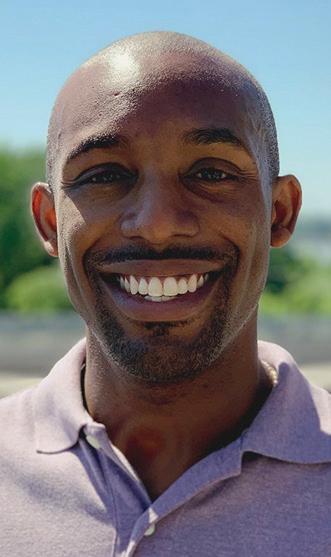
cumvent accountability for the ubiquitous presence of guns on our streets, recitations of “Black Lives Matter” without action ring hollow. In the face of routine police killings, notes of sorrow disconnected from systemic change make for avoidance of a stubborn truth: American policing is and always has been a system of authorized, if not incentivized, violence against black people. This truth is borne out in cities and states all across the country, including our own.
The list of people who have been killed by police in the St. Louis region is truly too long to enumerate here. Circumstances and locations vary, but the pattern is enough to give St. Louis the dubious honor of having the highest rate of fatal police shootings of any city in the country.
When those shootings beget
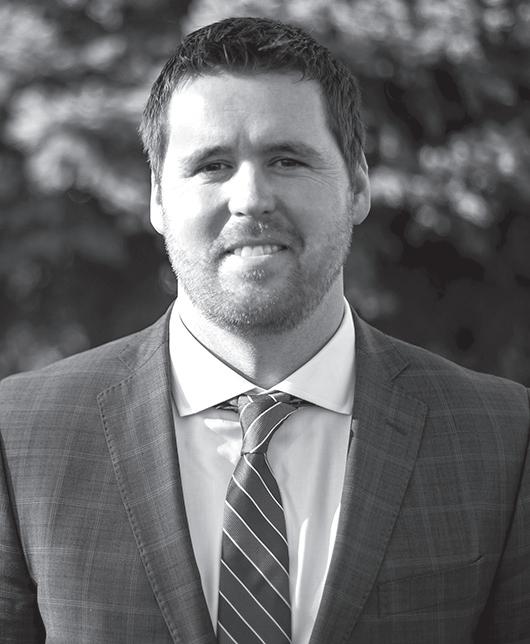


disclosure: at the time of this writing, ArchCity Defenders is litigating more than a dozen cases involving these kettling arrests.)
And then there are the daily indignities to which black people in St. Louis and across the state are subjected by police. Each year, we get a reminder of the gaping racial disparities in police stops, searches, and arrests from the Attorney General’s Vehicle Stops Report. The 2020 report was issued just days ago, with the same disparities. The results have come to be so expected that barely anyone even noticed.
As a police station in Minneapolis burned last Thursday night into Friday morning, countless commentators remarked that this conflagration was the result of the masses having been dissatisfied and outraged by the failure of the local prosecutor to charge the officers responsible for the murder of George Floyd. I am sure that is true for some.
n Robust investments in education, jobs, healthcare, stable housing, and public infrastructure are the only real antidotes to crime.
protest, the abuse continues. Following the Ferguson Uprising, the nation was gripped not only by the incredible exploitation to which poor black residents of our region had been routinely subjected, but also by the militarized response that greeted protesters in Ferguson and across the St. Louis region. This dynamic repeated itself years later following the acquittal of Jason Stockley for the killing of Anthony Lamar Smith, when St. Louis Metropolitan Police officers trapped and battered peaceful protesters in downtown St. Louis. (Full
For many others, however, there is a growing realization that such a reliance on the very system of criminal punishment that enables state-sanctioned homicide is a futile and selfdefeating approach. Instead, if we truly believe that Black Lives Matter and that the consistent pattern of police violence and killings are unacceptable, we must end our reliance on policing itself. We must reduce the role of policing in our society and in our lives. We must defund the police. That does not mean no accountability. It does not mean we go without response to or
repair of harm. And it certainly does not mean we abandon any commitment to justice. But policing does not provide us with those things. It never has, and it never will. Believing that policing is what preserves accountability and justice is as fantastical as believing that Second Amendment gun rights are what protect ordinary people from tyranny. It is a familiar and deeply-rooted claim, but it is a lie.
Nor does understanding that we need to divest from policing require you to believe that all police are bad people any more than understanding the existential threat of climate change requires you to think that coal miners and oil workers are evil. Appeals to the “brave first responders” miss the point entirely.
We have a system. It is called policing. And the violence we so often mourn is an intrinsic part of that system. Now is the time to defund policing and instead fund alternative, more-effective systems of safety and justice. We see in practice that robust investments in education, jobs, healthcare, stable housing, and public infrastructure are the only real antidotes to crime. All over the country, communities are building networks of mutual support and accountability to respond when harm occurs. The options are plentiful, from social workers to community organizers to crisis response teams. We must develop and embrace practices that prioritize our health, humanity, and collective wellbeing.
If we really want to do something to honor the lives of George Floyd, Breonna Taylor, and countless others, we need to do something about policing. Otherwise, all those tweets of solidarity and solemn remembrance are just tweets. Blake Strode is executive director of ArchCity Defenders.


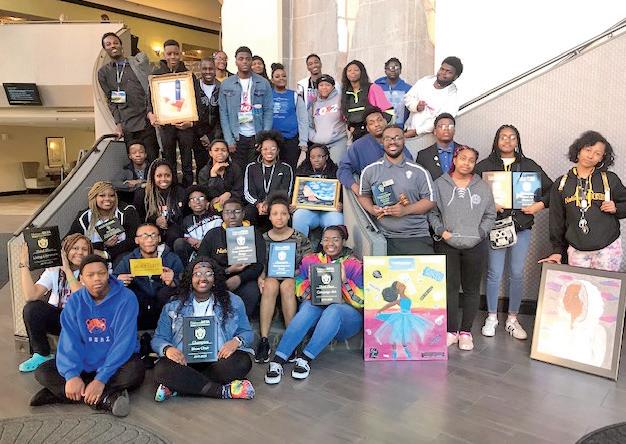
East St. Louis Senior High School was named a 2019-2020 National School of Distinction by National Beta. National Beta is
an independent, non-profit, educational youth organization committed to providing students with a positive experience in a supportive manner in grades 4-12. The School of Distinction Award is designed to award those schools that show an increase in membership for the current school year. Jason Brown, one of the East St. Louis Senior High School Beta sponsors, said the club is “helping to develop the qualities necessary for students to become productive citizens in our global society.”
By Chris King
St. Louis County is getting more black leadership in its courts.
Hope Whitehead – the first African American selected the 21st Circuit’s judicial administrator by the judges – hired attorney Celestine Dotson as Supreme Court Municipal Court monitor for the 21st Circuit. Dotson will be responsible for monitoring the day-to-day operations of more than 70 municipal courts in St. Louis County, assisting them in maintaining local and state court standards.
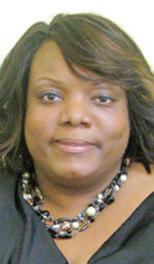

While they are divisions of the 21st Judicial Circuit, for years the municipal courts in St. Louis County’s dozens of municipalities operated independently with little oversight, leading to widespread abuses that were broadcast in an ArchCity Defenders’ white paper early in the Ferguson unrest. The Ferguson Municipal Court’s abuses of the public were further detailed in the Department of Justice’s report on Ferguson in 2015.
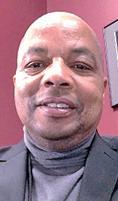
Also in 2015, the Supreme Court of Missouri issued minimum standards for municipal courts in response to charges by ArchCity Defenders and others that municipal courts were unconstitutional debtors’ prisons. Subsequently, several small municipal courts consolidated their operations, and Hillsdale and Kinloch transferred their cases to St. Louis County Circuit Court. Dotson’s responsibilities include assisting the courts in implementing and supporting the statewide court case management system (Show-Me Courts); providing technical and administrative assistance to municipal judges and clerks to improve court administration and operations; and identifying areas that need improvement to achieve minimum operating standards for compliance, efficiency, economy, and effectiveness.
Dotson has 20 years’ experience as a solo practitioner handling criminal,
Named vice president of community development
American staff
By Cheryl D. S.
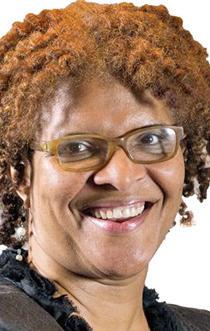
the toxic stress and trauma that black people live with daily and that has been intensified in recent weeks, it is disappointing that the St. Louis Post-Dispatch has decided to add to the toxicity by printing the editorial of Tod Robberson, titled “Why execute a $7 Million Parking Services Contract, Then Suspend Parking Services,” without any regard for the facts and seemingly designed only to besmirch a black woman-owned business, Hudson and Associates, LLC, and its owner, Shelia Hudson. It is clear Robberson wanted readers of the editorial to draw negative conclusions from his unfounded innuendos. The purpose of this writing is simple: to put forth the facts. As legal counsel for Hudson and Associates, I have direct knowledge of her celebrated journey from employee to subcontractor to prime contractor over a period of 11 years.
St. Louis Treasurer Larry Williams made the decision to

of the contract for services at that time and then again in 2009. Later in 2009, Shelia Hudson was hired by Xerox as project manager and oversaw day-to-day operations of the parking violations bureau until 2012. Her duties included managing the call center, ticket payment processing and responding to citizens’ ability to contest tickets.
Through her company, Hudson and Associates, in 2012 Hudson transitioned from being an employee to a subcontractor of Xerox and another enterprise. Her company performed maintenance, collections, dispatch and boot enforcement services from 2012 to 2013.
The parking services were put out for re-bid in 2013. Xerox was awarded the contract for an integrated solution for the entire on-street operations and reengaged Hudson as its subcontractor. This time the scope of Hudson and Associates’ services were expanded such that they performed 90% of the contracted services awarded to Xerox from 2013 to 2019, which included staffing and managing the entire on-street parking operations. In 2019, with the Xerox agreement nearing expiration, the parking services were put out for bid. Hudson, now having had 10 years of direct experience, decided to respond to the RFP as a prime contractor. Hudson’s

Crystal Avery-Morris was named vice president of community development for Commerce Bank. She has 20 years of experience as a mortgage banking officer with a concentration in Community Development and LMI/ Majority Minority lending. She succeeds Loura Gilbert, who is retiring after 47 years in the banking industry, of which the last 31 years have been in her community development role at Commerce Bank. “Crystal’s commitment and passion for the work is obvious,” Gilbert said of Avery-Morris. “She knows the community, the issues and the opportunities. She takes charge of efforts, and she really shines at what she does.” Gilbert knows Avery-Morris from working with her at several of the same organizations, including the United Way and the St. Louis Regional Financial Empowerment Coalition.
The bank’s community development activities are related to its compliance with the Community Reinvestment Act in the St. Louis region. The Community Reinvestment Act is a federal law enacted in 1977 to bar discriminatory lending practices Commerce Bank is a subsidiary of Commerce Bancshares, Inc., which has $26.8 billion in assets.
By Chalana M. Scales-Ferguson
For The St. Louis American
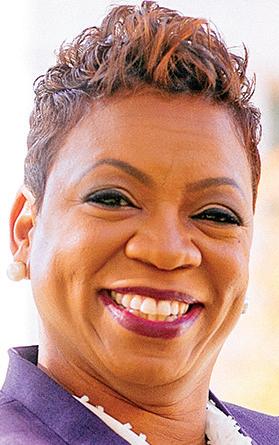
We are the Mound City Bar Association, the oldest black bar association west of the Mississippi River. We know what we are seeing when we watch a police officer choke the life out of a black man in broad daylight by holding his knee against the man’s neck for eight minutes and 46 seconds, with this man, George Floyd, lying motionless under the weight of the officer’s knee for the last 2 minutes and 53 seconds. We see lawlessness. We see a civil rights violation. We see a human rights violation. We see a callous disregard of life. Mound City Bar condemns the reprehensible killing of George Floyd, an unarmed
years of hard work, of learning the industry and of preparing herself for success, put her in a position to be selected as prime contractor. Is not such a success story exactly what minority and women participation programs are designed to achieve – i.e., to build the capacity of minority- and women-owned companies so that they can grow and compete on their own?
Hudson and Associates did not pay its way into the prime contractor position. Hudson and Associates prepared itself through hard work and excellence, placing itself in the position of being chosen.
Hudson and Associates and St. Louis’ Treasurer’s office entered into a contract for the performance of parking services while the city was on stay-at-home orders. As a result, after Hudson and Associates signed the contract, Hudson could not begin work and has not been paid under the contract with the Treasurer’s Office because work has not been performed. In fact, Hudson and Associates had to furlough 33 of her 38 employees because there was no work and, without work, there was no income to pay employees.
n Because the city was under a stay-athome order, Hudson and Associates could not begin work and has not been paid under the contract with the Treasurer’s Office.
many years across campaigns for a variety of offices. To imply that one contribution was made in exchange for one contract is disingenuous at best. Hudson is a person of the highest of integrity and would not have excelled in her business to the point she finds herself today had she been anything else. It is unfortunate that in 2020 a black woman cannot be seen as qualified, as having earned her seat at the table, but rather as only having been selected in exchange for money. It saddens me that no homework was performed before Robberson wrote the editorial and before the Post-Dispatch chose to publish it. Had that occurred, it would have been obvious that Hudson and her company have ascended to where they are due to preparation, hard work, perseverance and a passion to provide services that exceed client expectations. Hudson and Associates earned and deserves the contract.
Is the bigotry of low expectations so pervasive that it is unimaginable that a black woman can excel to a position of leadership on her own accord? That is what Robberson’s editorial wants you to believe. But that is not the narrative to be shared. The narrative is one of black excellence. Shelia Hudson and Hudson Associates prepared themselves to excel and did so.
The campaign contributions to Tishaura O. Jones by Hudson and Associates and Shelia Hudson were made over
Continued from B1
Cheryl D. S. Walker is legal counsel for Hudson and Associates.
African-American directors of Communications shift school districts
By Chris King Of The St. Louis American
It’s revolving doors for African-American directors of Communications in St. Louis-area public school districts.
Anthony Kiekow is switching from director of Communications for the Riverview Gardens School District to the same position in the Hazelwood School District, a position that Kimberly McKenzie is vacating to take the same position in the Ladue School District.
Before Riverview
Continued from B1 traffic, municipal and domestic relations matters. She previously worked at the Cochran Law Firm in St. Louis, and was a staff attorney at Missouri Protection and Advocacy Services in Kansas City. She received her law degree from the University of Illinois Urbana-Champagne. Also, before she retired in February, then-Presiding Judge Gloria Clark Reno – the first
ant than $20. His life mattered. And justice for him matters.
Mound City Bar denounces acts of hate, violence, and discrimination that violate constitutional rights, stifle social justice, and undermine the rule of law. Mound City Bar stands in solidarity with all those who face hate, violence, and discrimination based on the color of their skin. We condemn the death of George Floyd at the hands of those Minneapolis law enforcement officers. We
African American to lead the 21st Circuit – named another African-American judicial trailblazer to a leadership role. Circuit Judge Sandra FarragutHemphill, who in 1991 became the first African American appointed to the circuit court bench in St. Louis County, is

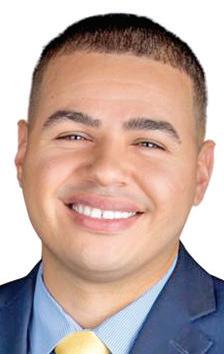
Anthony Kiekow
Gardens, Kiekow worked as a public relations manager for the St. Louis Symphony and spent seven years as a television reporter for media outlets across the country, including News 4 and Fox 2 in St. Louis.
“As a long-time North St. Louis County resident, I view this as an extraordinary opportunity to serve the community I love,” Kiekow said of his
also condemn all incidents of racial and social inequalities, violence, and hate crimes that continue to infect our country. Finally, we denounce attempts to silence the voices of those who are lawfully protesting these injustices.
Mound City Bar calls on all members of our legal community and all members of the public to unify and speak out against hate, violence, and discrimination. We must all actively stand united in defense of our vulnerable communities, the rule of law, and the promotion of the public interest through the advancement of equal justice and protection of
the new administrative judge of the St. Louis County Family Court. She also is the first African-American judge to lead the circuit’s Family Court.

Kimberly McKenzie
switch to Hazelwood. McKenzie has an extensive background in communications and public relations in both the public school and corporate environments. She earned a master’s degree in Management and Leadership from Webster University and her bachelor’s degree in Organizational Management from Concordia University. She is an active member of Delta Sigma Theta
liberty for all.
Mound City Bar stands ready to work with community, religious, and government leaders, as well as the law enforcement community, elected officials, and other bar association to ensure we live up to the promise and ideals upon which this country was founded. Together we can ensure that, as the Preamble to the United States Constitution promised, we have “a more perfect Union, establish Justice, ensure domestic Tranquility, provide for the common defense, promote the general Welfare, and secure the Blessings of
The Family Court exclusively hears cases involving children and families; all matters involving a particular family are assigned to the same judge or commissioner whenever possible.
In addition to hearing cases, the Family Court provides support services including individual and group counseling, probationary services, parent education classes, a drug treatment program for parents, and restitution programs for juveniles.

Sorority, Inc.
Interestingly, both Hazelwood and Ladue school districts have an assessed tax valuation of $1.9 billion, according to the Missouri Department of Elementary and Secondary Education (DESE), but Hazelwood educates almost four times as many students on the same tax base. Hazelwood enrolls 17,449 students, according to DESE, while Ladue enrolls 4,493 students. Riverview Gardens educates about as many students as Ladue (5,522) on about one-ninth of the tax base ($214 million).
Liberty to ourselves and our Posterity.”
We will be actively seeking them, too.
Chalana M. ScalesFerguson is interim president of the Mound City Bar Association. This was written in collaboration with the membership of Mound City Bar.
Prior to her appointment to the bench, Farragut-Hemphill was associated with the law firm of Bell, Harris, Kirksey & Thomas and was a partner in the firm of Cahill, White & Hemphill. She worked as an assistant county counselor for St. Louis County and as a staff attorney at Legal Services of Eastern Missouri. She is past president of the Missouri Association of Probate and Associate Circuit Judges, the first African American to lead the organization.
The Family Court operates the Juvenile Detention Center. Hemphill has appointed Chief Juvenile Officer Rick A. Gaines to oversee the operations of the Juvenile Detention Center. Before joining the Family Court in 2017, Gaines was the Disproportionate Minority Contact Coordinator for the Missouri Juvenile Justice Association. He also served as the Chief Juvenile Officer for the 13th Judicial Circuit (serving youth and families in Boone and Callaway Counties) and Superintendent of the Robert L. Perry Juvenile Justice Center in Boone County. Gaines holds a BS in Criminal Justice from Lincoln University in Jefferson City.

With Alvin A. Reid
My brother-in-law, Charles Crawford, grew up in Hominy, Oklahoma, about 30 miles from Tulsa. After an outstanding high school football career, he earned a full-ride scholarship to Kansas State University. He played running back, helped turn around the Wildcats and reached the 1983 Independence Bowl in Shreveport, Louisiana. He is a devout Christian, served in the U.S. Army, was a trained paratrooper and is a former Hominy School Board member. His son is an optometrist and his daughter a police officer in Tacoma, Washington. After serving his nation, Crawford would return to his native Hominy. He has worked in the insurance industry for decades. He is everything that white America thinks a black American man should be. Crawford was the first to tell me that a campaign rally for the guy running for re-election as president was scheduled in Tulsa on Friday, June 19. Juneteenth Day. Many cities and towns across America celebrate this day in commemoration of the end of slavery. It’s in June, months after the end of the Civil War, because the date actually commemorates when free black Americas in Texas actually got the news that they were no longer slaves.
team officials - black and white - are finally standing up to the bully-in-chief. Their actions are exposing and attacking racism and unfairness in America. And they are proving the president’s Emperor Without Clothes stature is crumbling.
Support in surprising places
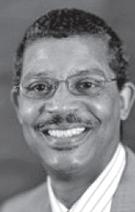
As loud as the black voices are today in challenging systemic racism and police brutality, it’s white voices that have the president quaking. Suddenly, no one seems to fear him. Who cares if he won’t watch the NFL after players knees during the national anthem? Who cares if a fan says they will drop their season tickets and no longer cheer for a team? This time, the cause is bigger than misdirected patriotism and a racially misguided president. Bill O’Brien, coach of the Houston Texans is the first to say he will take a knee during the anthem.
Yeah, I’ll take a knee — I’m all for it,”
O’Brien said in a Houston Chronicle interview.

The campaign changed the date to Saturday, June 20. Charles is praying that there is no violence and that the day will come and go. He’s a peaceful man. But like many of us, he’s enraged with what is happening in this country. He’s far from a raging liberal. But he’s had enough.
The president will ramp up the rhetoric, attack those who dare kneel during the national anthem and throw kerosene on every imaginable racial, social and political inferno. He’ll do his best Mussolini impersonation and leave hate, distrust and fear in his wake.
But current and former athletes and respective league and
“The players have a right to protest, a right to be heard and a right to be who they are. They’re not taking a knee because they’re against our flag. They’re taking a knee because they haven’t been treated equally in this country for over 400 years.”
I literally had to read this statement twice to believe it.
After announcing on Instagram that he planned to knee, Cleveland Browns quarterback Baker Mayfield received instantaneous hate from many of his social media followers.
“If I lose fans, that’s OK,” Baker said near the end of the statement.
“Everybody so upset about my comment doesn’t understand the reason behind kneeling in the first place,” Mayfield said as he opened his statement.
“I have the utmost respect
for our military, cops, and people that serve OUR country. It’s about equality and everybody being treated the same because we are all human. It’s been ignored for too long and that is my fault as well for not becoming more educated and staying silent.”
After a fan said on Twitter,
“I doubt you’ll be seeing J.J. Watt take a knee this season,” Watt fired back.
“A) don’t speak for me.
B) if you still think it’s about disrespecting the flag or our military, you clearly haven’t been listening.”
While Watt did not say he would protest during the anthem, he makes it clear that he supports those that will.
These and other actions by white Americans are key to truly challenging a status quo that ignores racism whenever
and wherever possible.
Black MLB players video a hit
Like several of their NFL counterparts, a number of black MLB players have released a video in support of the Black Lives Matter movement and fighting systemic racism in this nation.
In just 55 seconds, players including Aaron Judge, Andrew McCutcheon, CC Sabathia and Giancarlo Stanton share lines to unleash a powerful message - one that many white MLB fans don’t want to hear.
“You have cheered for us, but we need you to cheer with us now, when we need you most.”
“Eight minutes and 46 seconds is enough time to lift a
InsIde sports
With Earl Austin Jr.
knee,” Stanton said, in reference to the killing of George Floyd in Minneapolis.
The players collectively say, “Black Lives Matter.” The video concludes with them saying, “It’s our cheer for change. It’s your cheer for us. It’s these cheers that will unite us. One team, one dream. Be the change.”
Torii took on Boston
Non-trade contracts have been part of Major League Baseball for generations, thanks in large part to Curt Flood.
Torii Hunter, who hails from my mother’s hometown of Pine Bluff, Arkansas., is unique because he demanded that whatever team that wished to sign him as a free agent had to agree not trade him to Boston.
Years ago, Hunter called out Boston for having the most racist fans in baseball. He was ignored because “no one heard” him being called the N-word and other hideous racial insults.
“When I went to Boston it was so consistent,” Hunter told WEEI radio in Boston. In one instance, he said “four or five kids” were chanting the N-Word at him.
“When I heard ‘N-word, N-word’ just chanting my name and I looked at these grown-ups and they are clapping and laughing,” Hunter said. “I’m pointing saying, ‘‘Tell them to shut up. That’s bad.’
“These kids are now probably grown,” Hunter continued.
“They are probably CEOs of companies. They are probably the head of something. And I can imagine these kids doing things to people of my skin color and mistreating them.”
Former All-Star Adam Jones, who now plays in Japan, backed Hunter’s story for years because he too was the subject of racial taunts in Boston more than any city. Retired New York Yankees pitcher CC Sabathia says Boston “in the only place” he was called a N-word.
Instead of shying away, the Red Sox released a statement that signals the changing times of this new era.
“Torii Hunter’s experience is real,” the statement reads.
“If you doubt him because you’ve never heard it yourself, take it from us, it happens. Last year there were seven reported incidents at Fenway Park where fans used racial slurs. Those are just the ones we now about.”
The Red Sox admitted that black employees working on game days and nights are often racially insulted, as well.
“True change starts from within, and as we identify how we can do better, please know we are listening,” the statement reads. “We hear you and believe you.”
We’’ll see if you mean it, Red Sox.
Even without sports being played for the most part, there is still a lot going on around the area to talk about.
DeSmet and East St. Louis crack the national rankings
The national high school sports website maxpreps.com came out with its preseason Top 25 rankings for the high school football season and two St. Louis area teams made the list. Defending Missouri Class 6 state champion DeSmet was No. 13 in the rankings while Illinois Class 6 state champion East St. Louis checked in at No. 25. Both teams were undefeated en route to winning their respective state titles. East Side and DeSmet are also scheduled to meet in a big showdown on Sept. 2 in the Gateway Scholars Classic at East St. Louis. Both teams return tremendous amounts of talent and Division I prospects, so it
should be a tremendous event.
East St. Louis is led by standout quarterback Tyler Macon, who has already committed to the University of Missouri and top receiver Dominic Lovett. DeSmet is led by defensive end Mekhi Wingo, another Mizzou recruit and the standout running back trio of Taj Butts, Darez Snider and Rico Barfield.
The return of two Billikens
The Saint Louis University men’s basketball program received some good news last week when senior standouts Jordan Goodwin and Hasahn French announced that they will be returning for their senior seasons. Both players had decided to test the NBA Draft waters during the spring, but finally decided to come back to the Billikens for what should be an exciting 2020-21 seasons.
The 6’3” Goodwin averaged
15.5 points, 10.4 rebounds, 3.1 assists and 2.1 steals a game while the 6’7” French averaged 12.4 points and 10.4 rebounds while also becoming the school’s all-time leader in blocked shots. They are the heart and soul of a Billikens’ team that advanced to the NCAA Tournament in 2019 and won 23 games last season. With Goodwin and French back in the fold, the Billikens will be one of the top contenders to win the Atlantic 10 Conference championship next season. The Billikens also return former St. Louis area standouts Javonte Perkins, Yuri Collins, TJ Hargrove as well as emerging center Jimmy Bell Jr.
Kevin Lisch calls it a career
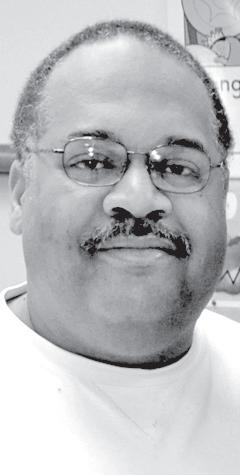
Earl Austin Jr.
cial salute goes out to former Billiken star Kevin Lisch, who recently announced his retirement after a very successful 11-year professional career in Australia. Lisch won the Most Valuable Player Award in the National Basketball League twice. He also led the Perth Wildcats to the NBL championship in 2010. He was also a member of Australia’s Olympic team during the 2016 games in Brazil.
The former Belleville Althoff High star was a standout with the Billikens from 2006-09. He finished his career with 1,687 points, which is currently in the top five of all-time scorers at SLU.
James Proctor signs with the Reds
On the subject of Saint Louis University, a very spe-
Former MICDS baseball standout James Proctor was
signed as a free agent by the Cincinnati Reds organization last week. A right-handed pitcher, Proctor just finished an excellent collegiate career at Princeton. In 2016, he was the St. Louis American Player of the Year in baseball after leading MICDS to the Class 4 state championship.
Lauryn Miller gets her degree in three Congratulations to former Kirkwood High girls’ basketball standout Lauryn Miller, who graduated from UCLA last week with a Bachelor of Arts degree in Sociology in just three years. Miller was a starting forward on a talented Bruins team that finished with a 26-5 record last season. The 6’2” Miller will complete her basketball career next season while beginning graduate work at UCLA. Miller was the St Louis American Player of the Year in 2017 after leading Kirkwood High to the Class 5 state championship.
DeSmet receives an invite to the Bass Pro TOC
The DeSmet Spartans should have one of the state’s top boys’ basketball teams for the upcoming 2020-21 season. DeSmet recently received an invitation to compete in the Bass Pro Tournament of Champions Tournament, which will be held in January in Springfield on the campus of Missouri State University. The Tournament of Champions is one of the top tournaments in the country. The John Q. Hammonds Arena is usually filled to capacity for the three days of the tournament. Vashon represented the St. Louis area at last year’s Bass Pro TOC. The Wolverines advanced to the championship game before losing to perennial national power Oak Hill Academy.
‘We’ve got to get food into the neighborhood through the church’
By Chris King Of The St. Louis American
The Urban League of Metropolitan St. Louis is ready for the region to take its neighborhood blocks back. It has an innovative strategy to do this utilizing and revitalizing two community institutions with the most basic incentive: food.
The Serving Our Streets Initiative will distribute free food to local families through neighborhood churches, coordinated through one of the Urban League’s core community programs, the Federation of Block Units (FBU). And as people engage with community leaders through the FBU and their neighborhood church, they will be able to pick up free — and fresh — food.
Serving Our Streets is the first major programmatic initiative developed by Michael P. McMillan, president and CEO of the Urban League of Metropolitan St. Louis, in partnership with James Clark, his new vice president of Public Safety and Community Response. It develops other new partnerships the Urban League put together to provide food in response to food scarcity and hunger brought on by the COVID-19 pandemic and its associated job losses.
The Urban League will continue its massive weekly distribution of food and
necessities. When Serving Our Streets was announced on Thursday, June 4, they were preparing for their 10th massive giveaway in East St. Louis on Saturday. As Serving Our Streets gets underway, however, families will be able to go to their neighborhood church and engage with community leaders and each other while picking up food. The hookup for necessities then will provide the Urban League with a touch point to offer its other community empowerment services.
“We’re going to revitalize the Federation of Block Units through the church,” McMillan said. “The church is the anchor. They can then stabilize the community together. The only way we’re going to get through this is together.” Clark has been organizing neighborhood churches for decades in various capacities, most recently with Better Family Life, where he organized Pulpits to Porches and had churches grill hot dogs and open their doors to get neighbors connected.
“We’ve got to get food into the neighborhood through the church,” Clark said.
Providing the food are Operation Food Search, the St. Louis Area Foodbank and Ole Tyme Produce. They all have been working together on the massive weekly giveaways with the logistical guidance of Roy Gillespie, veteran Teamsters

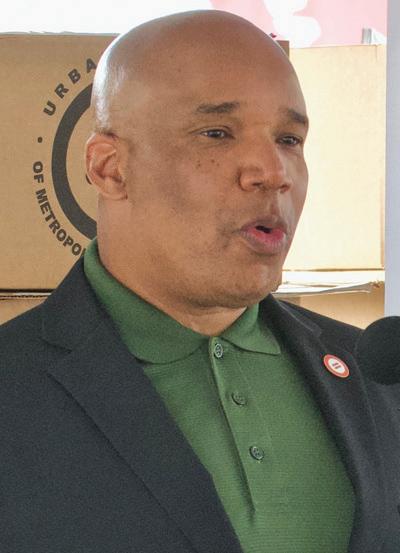
first responder, a specialist in disaster relief. And the St. Louis region and much of the United States qualifies as a disaster area, between the
n “The only way to revitalize St. Louis is through the immediate action of the neighborhood church.”
James Clark, vice president of Public Safety and Community Response of the Urban League of Metropolitan St. Louis
pandemic and curfews imposed following civil unrest.
“We are at an hour we have never seen before,” Clark said. “Planet Earth, America,

Missouri, St. Louis, we are teetering now. Anarchy is knocking on the door. The only way to revitalize St. Louis is through the immediate action of the neighborhood church.”
Immediate action was taken on Thursday. The announcement at Urban League headquarters in Midtown St. Louis was attended by a who’s who of local black clergy and a number of clergy allies. Pastors signed up for Serve Our Streets and the FBU on the spot.
The food they will be serving to their local streets will include fresh produce that Ole Tyme Produce distributes
through the federal Farm to Families grant program. But this initiative is not too good for a hot dog.
Rev. Alfred Gainey Jr., pastor of Lily of the Valley Missionary Baptist Church, served hot dogs to his Walnut Park neighborhood when approached several years ago by Clark. It was a gateway to even better community service.
“James came to me and said he wanted me to serve some hot dogs at the church,” Gainey said. “That led to giving away clothes. That led to a food pantry. Now we are feeding over 200 people every Saturday.”
Gainey kept it real.
“In Walnut Park, we are feeding a lot of dope addicts and homeless,” Gainey said.
“They can’t always walk away with a food box. But they will take a hot dog. Some chips. A soda. A prayer. Salvation.”
In a year, Lily of the Valley missed food service only one Saturday — and people came looking for the pastor.
“People are hungry,” Gainey said.
When Gainey said he would quote from Isaiah 58:10, a number of people listening, masked in the Urban League parking lot, bowed their heads.
“And if thou draw out thy soul to the hungry, and satisfy the afflicted soul; then shall thy light rise in obscurity, and thy darkness be as the noon day,” Gainey recited. Then the pastor connected the prophetic scripture back to Serving Our Streets: “It is time for the church to be the light and start shining in our community.” Contact the Urban League at 314-615-3600 or https://www. ulstl.com.

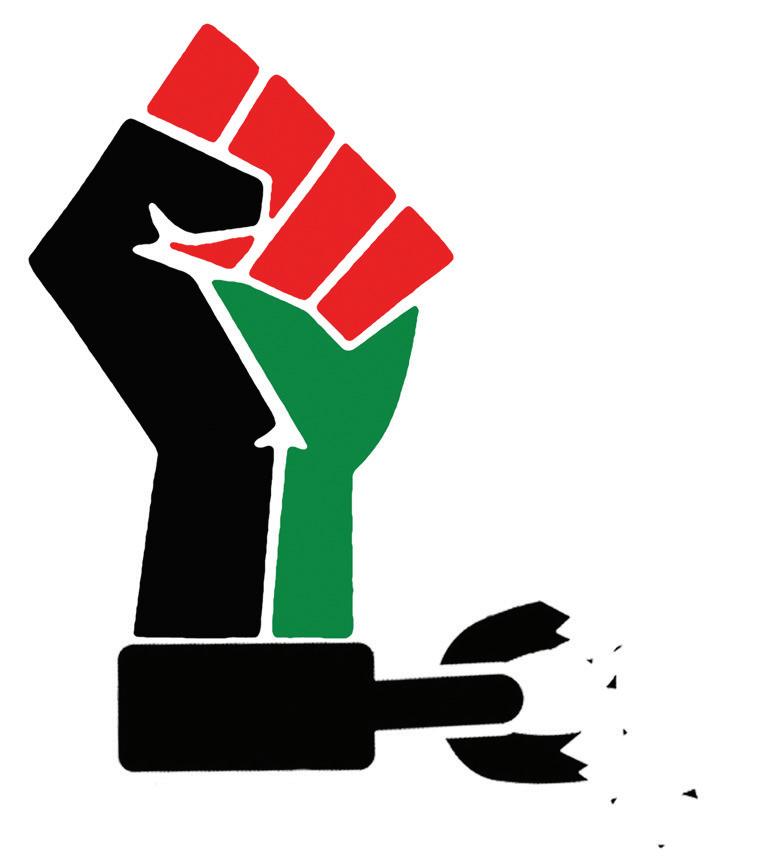
By Kenya Vaughn Of The St. Louis American
As demonstrations continue for a third week in response to the fatal arrest of George Floyd in Minneapolis, hard truths and uncomfortable conversations have come to the surface along with the protests that exclaim the value of black life.
An unlikely residual in the uprising that includes individuals from all colors and creeds demanding equity and the admonishment of racist systems and police abuse against black people has been the recognition of Juneteenth. Jack Dorsey, CEO of Square and Twitter announced that Juneteenth would be a paid holiday for employees. Other institutions have followed suit. As recently as Wednesday morning, Vincent Flewellen, chief diversity officer for Webster University, announced that Juneteenth – which falls on this Friday –would be recognized by the school as a holiday.
This year’s Juneteenth holds special sig-
See JUNETEENTH, C2

By Kenya Vaughn Of The St. Louis American
To St. Louis natives and those in tune with the region’s hip-hop scene, the digital campaign for Rihanna’s Fenty Beauty released last month had a familiar bop.
It was the instrumental from local rapper Skiddalz’ song “Like A Girl.” The song is not new to the national spotlight after placement on MTV and VH1 for “Jersey Shore” and “Martha and Snoop” in the years since it was created.
But the latest feature for the track served as a reminder for the song’s producer Beau Willie that he is on purpose with his passion for creating music.
“Skiddalz called me, maybe about seven years ago,” Willie said. “She said that she needed a track – that she wanted to do a song ‘Like a girl.’”
He made the beat that night and sent it to her. She came over the next day and they recorded it in my grandpa’s living room.
See WILLIE, C2
By Kenya Vaughn Of The St. Louis American
There was a collective clutching of pearls from fans when it was announced last month that the hit OWN Network megachurch drama “Greenleaf” was coming to an end after five seasons.
On Monday, the cast, along with creator and executive producer Craig Wright discussed the wonderful journey that the show has been for them as they gear up for the premiere of the final season premiere next Tuesday, June 23.
Merle Dandridge, Keith David, Lamann Rucker, Lynne Whitfield and Deborah Joy Winans gave off the energy of an authentic family as they laughed, joked and dug deep for the spiritual connections that have come from their work together with Wright on the show.
“My biggest concern is for my son and my youngest daughter,” David said, speaking of the characters with the same protectiveness and care he probably uses when discussing his
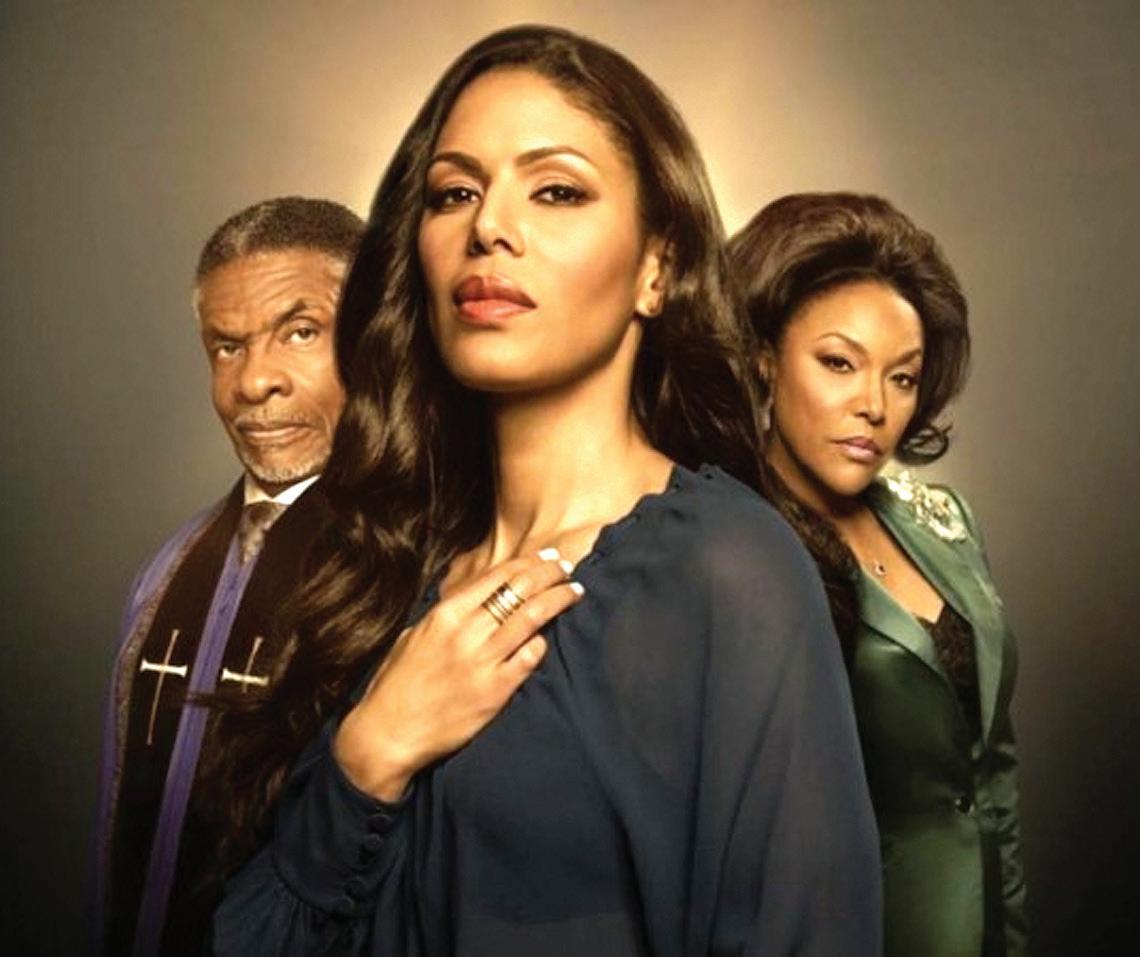
own children.
“I can’t help, but will she be able to grasp fully the path that God is making for her without her getting in her own way?” David asked. And as far as his “son” Jacob, David says that Bishop Greenleaf is looking forward to him coming into his own.
“I want to see him fulfill his own destiny –the one that he discovers for himself, not one that has been imposed upon him or wished upon
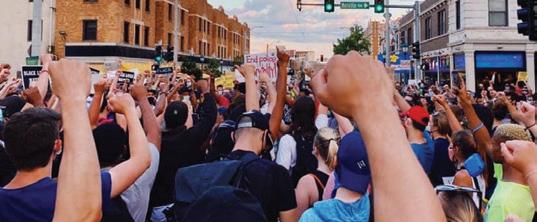
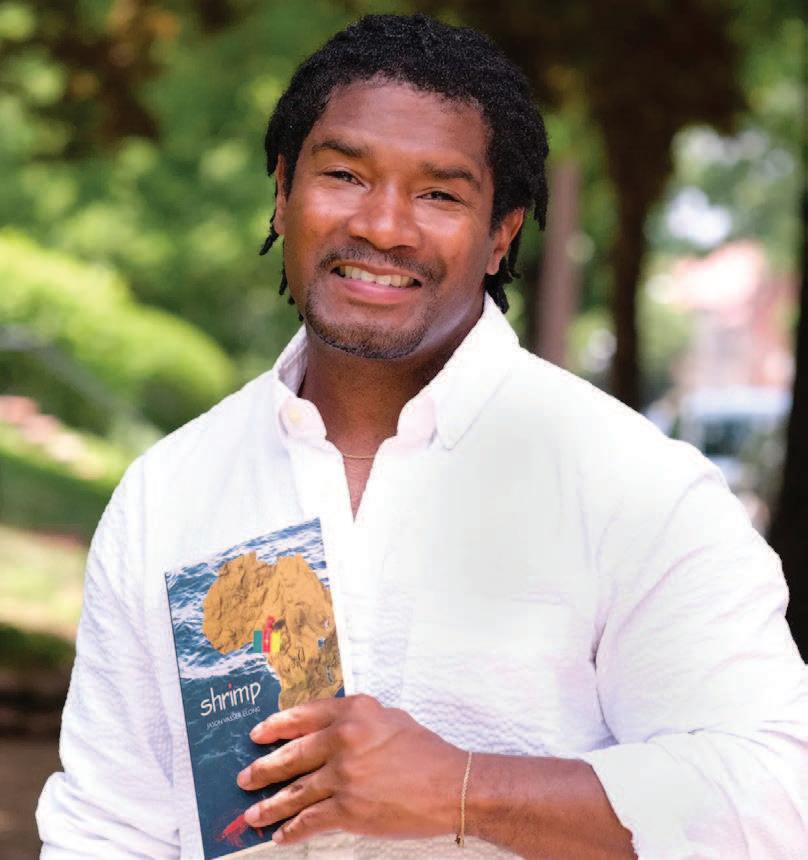
Jason Vasser-Elong shares inspiration behind debut poetry collection
By Jason Vasser-Elong, M.F.A.
For The St. Louis American
There is a tapestry of ideas in the telling of stories. This is true in oral tradition and in the colloquial sharing of ideals, in which many roads lead to a place. Which is to say that if anyone has anything important to tell you, they will likely do so in a story; because there is power in the narrative. Power to persuade, to entertain, and to teach. As is an old adage in our community, regardless of our familial experiences or cultural backgrounds, in general, the telling of stories is how we learn, share news, and communicate with the world around us. In some cases, telling stories can change the ways in which we revere objects, things that have become so common place, that their place in history is overshadowed by the ubiquitous.
While explaining the inspiration for Shrimp, my debut collection of poetry, I was challenged to explain its title and in doing so, found the threads for the listener that wove together the quilt that became the idea, the artifact or tool with which I told my story.
As each character deals with their respective mess, drawing closer to God is the common denominator.
him by his mama or to please his daddy,” David said. “Life is forcing him to look at himself in a different way.”
Although it was announced that elements of the story would continue by way of a spinoff, the final chapter is as much a milestone for the cast as it is for fans.
See Greenleaf, C2
n The book cover features the continent of Africa with a red push pin in the center of the Cameroonian flag, as one would see on a map of places travelled to.
The book cover features the continent of Africa with a red push pin in the center of the Cameroonian flag, as one would see on a map of places travelled to. Therein the thread of place, one of my maternal ancestry, and thus, where the story, at least for me begins. My paternal ancestry traces to Portugal, Spain, the Netherlands, and Britain, which made visceral the history of how the Portuguese initiated the Trans-Atlantic Slave Trade. Leading to the capture and shipping of my ancestor to the New World in chains directly from a place she would have called something completely different, but to the Portuguese, having traversed the Bight of Biafra, where they found large prawns up the Wouri River so named the region Camarão (Portuguese for large prawn or shrimp), better known now as Cameroon.
Shrimp comprises of poems that analyze identity in a post-colonial context, in other words, what I questioned about myself after reading history books and how society labeled me black, which only exists in contrast to white; my true identity having been lost to the waves of the Atlantic Ocean, or beat from the backs of my relatives, who I learned, were sold cheap, because they were prone to die by their owns hands rather than be slaves; therein lives the thread of discovery.
See Shrimp, C2

Continued from C1
Dandridge and Whitfield are on the edge of their seats as well waiting to see what happens – particularly with the family patriarch.
“I think I’m most interested in seeing Bishop’s storyline and it’s just so interesting, saddening and poignant. Losing your position. Losing your place, losing your status,” Whitfield said. “To see the arc of his energy – I’m really interested to see how Bishop continues to deal with his journey and how he manifests his purpose to this family and to his congrega-
nificance in that many within the dominant culture of the county had simply never heard of it before now. On Tuesday, June 16, The Missouri History Museum held a late morning lecture to offer context for those who are unaware of the day and what it means. Through a Zoom talk for the History Museum’s STL History Live programming, Professor Chris Tinson, director of African American studies at Saint Louis University, presented “Unfinished Liberation: Juneteenth, Then and Now.”
tion,” Whitfield said. Dandridge agrees. “I was moved by forgiveness he exhibited last season,” Dandridge said. “His world has completely erupted and to see someone at that point in their life – when they have established so much – to have that fortitude courage to move forward and change and ride the wave and see what happens is amazing. It shows that God can do a whole new thing, and he’s following that faithfully.”
The world is wondering how the show will end, but Wright says that the answers presented themselves from the very beginning.
“If you look back on the pilot, you see the seeds of where it inevitably had to go,”
“What I’m trying to impress upon you is to think about Juneteenth’s broader origins,” Tinson said. “We understand that Juneteenth marks the arrival of General Granger into the city of Galveston.” On June 19, 1865, Gen. Gordon Granger came to the city and informed the enslaved people there that they had been in fact been emancipated two years before by President Abraham Lincoln. Commemorating the day with celebration is common practice within the black community, but as far as general American culture…not so much.
“We’re talking about these holidays, yes, we should remember our history and com-
Wright said. “It’s really not so much about making decisions – the decisions were made in the pilot if you look closely enough. It’s more about having the courage to ignore everything that has come before and just get to the end. Drive it forward and put everybody where you always knew they belonged.
For a variety of reasons, people “including people inside Wright’s own head” have wrestled with how the chapter ends for “Greenleaf.”
“It’s about trying to get everyone where you knew they had to go and trying to see that clearly,” Wright said. “It’s less about planning and decision making and more about releasing control and allowing things
memorate the struggle of our ancestors,” Tinson said. “But for the general public to believe that a symbolic gesture is all we need right now is to totally miss the point.”
He led and closed with Juneteenth, but most of the talk was about what Juneteenth represents the end of – the institution of slavery – and how the impact of the vile and inhumane system that during its existence prioritized economy over humanity still looms over black life in America.
“We are here to talk about holidays and Juneteenth and because of that, we also have to think about the history of enslavement and related matter,”’ Tinson said. “The history
to unfold.”
As a juicy drama framed around a Memphis megachurch, members of the cast feel that revealing the flawed humans behind church leadership has opened the door to strengthen their faith.
Whitfield says that the show will give viewers who are willing to take the journey, new insight on how they view man and how they view God.
“Man is so fragile, so lovable and so manipulative and so complex and so undependable,” Whitfield said. “Each of these characters have had the opportunity to be that.”
But as each character deals
of slavery is arguably the most important issue to study in American history. It’s ghosts and its structuring are lived today. We must understand the role of history in our moment. Even though slavery is difficult to talk about, it’s the foundation for how we got to this point.”
He pointed out that black people’s enslavement is directly linked to the abuse suffered by black people at the hands of law enforcement.
“There’s George Floyd, Breonna Taylor, Ahmad Arbery and the recent sparks of this current movement and to those who have fallen since then and unfortunately those who will fall next week since blackness and death seem to be linked
with their respective mess, drawing closer to God is the common denominator.
“Hopefully the show has them [viewers] looking at a leadership of a church less and looking at a personal relationship with God more,” Whitfield said. “Man is man. And when everything gets really tough, this family always goes back to the source of their strength –which is God.”
Winans hopped in to say that she totally agrees with “mama” that the show has – even with its mess and its salaciousness – encouraged a personal relationship with God, whoever one is and wherever they might be in life.
“Particularly in the black community there has been this
in this society,” Tinson said. “Juneteenth comes out of that there is a longer history that we must be mindful of. Part of history is to grapple with the ugly moments and include them in our state making, in our nation making, in our consciousness.”
He then gave a broad history of how the institution of slavery has and continues to shape the world – even dialing into its impact on the region through the Missouri Compromise and laws that prevented African American residents of St. Louis from getting an education.
“Understanding history and understanding information is not enough,” Tinson said.
He also discussed the racial terror that victimized African
feeling where you had to come to God in a certain way for him to accept you,” Winans said. “I think that this show has shown people that you can come as you are – we are all from the top to the bottom, dealing with things. We are all human. We all fail. We all make mistakes and we still look to God for our own understanding and pursue him, regardless of what others think. I am grateful that people say, ‘I can come to God as I am,’ because look at Charity’s (Winans’ character) mess.” The final season of “Greenleaf” premieres at 8 p.m. CST on Tuesday, June 23 on the OWN Network. For more information, visit http:// www.oprah.com/app/own-tv. html
Americans and keeps the black community in a type of subjective freedom that has compelled the current climate of protest. He referred to a veteran named James Perry, who died in 1949 in Homer G. Phillips hospital after being beaten by police when he was wrongly accused of stealing a soda.
“What are the conditions that allow these things to continue to happen?” Perry asked. “We must transform the structures that open up the opportunity for someone to get beaten and killed by the police over a soda.
“Without the material reparation, the symbolic gesture of Juneteenth is empty and incomplete – and we have to accept that fact.”
“I mixed it, mastered it and produced it and kind of helped her with the hook,” Willie said. “I thought the song was pretty cool.”
In February, Skiddalz called Beau Willie and let him know that a music star was interested in using the record. “When it finally came out, it was Rihanna,” Willie said. “We had no idea that it was going to be her. I’ve struggled a lot to try to get to these points – and it’s a good feeling and that what I’m doing is working.” The latest affirmation from Rihanna couldn’t have come at a better time for Beau Willie, a U. City native who was known as Ryan
Austin before he started making beats.
After living in Los Angeles for nearly five years, he returned home because he didn’t know how COVID19 would impact his life and work. He saw how things were happening in New York, with the city being shut down, and thought it made more sense to him to hunker down at home with family. He felt he was

on the cusp of making major moves, when the global pandemic sent him back to where it all began.
His start in the industry came as a 12-year old who was obsessed with the breakthrough record of an artist who seemed primed to put St. Louis on hiphop’s map. Nelly’s “Country Grammar” had just dropped. Willie really liked the beat.” I came in my cousin’s house singing it and my cousin was like, ‘You wanna learn how to make it?’ I was like, ‘Yeah!’” Willie said.
His cousin had the demo version of the beat making software Fruit Loops 3. He taught Willie how to use it, and Willie stayed up all night until he could make a beat of his own. He never stopped.
Coming back from rock bottom
He developed a reputation as a talented beatmaker by the time he was in his mid-teens. In hindsight, it was hindered by his relationship with alcohol – which is at the root of his current producer moniker.
“I had a drinking problem that started at 16,” he said bluntly. “People would say ‘He’s turning into Beau Willie.’ Beau Willie is the name of the
Shrimp are one of the scavengers of the ocean floor, but for me, they are protagonists in a story in which the hero picks up pieces of the past in an effort to put it all back together, to shed light on a darkness that looms, hovers, and is often the only brush used to paint blacks as a people without a cultural past. They’re value juxtaposed the good or bad in a society that’s always in opposition. One in which a child can choose between having angel food cake or devil food cake, the latter so chocolate, so full of brown goodness that
n Nelly’s “Country Grammar” had just dropped. Willie really liked the beat.” I came in my cousin’s house singing it and my cousin was like, ‘You wanna learn how to make it?’ I was like, ‘Yeah!’” Willie said.
character from Tyler Perry’s film adaptation of the Ntozake Shange stage play ‘For Colored Girls…’
“He had a drinking problem in the movie,” Willie said. “It started out as a joke, and it kind of stuck because I started making fun of it myself.”
He kept the name, but no longer relies on alcohol. His sobriety grew out of one of the toughest points in his life.
“I was doing well musically, but I hit a rough spot where I lost all of my music and all of my beats,” Willie said. “It slowed up my money and things just really got bad for me. I had to leave my apartment and I was basically on the streets. At the time, things were so bad that I didn’t want to drink. I was like “It’s not helping.”
One day turned into two, and two days turned into a month.
“It took for things to get really, really bad for me to stop. It made me feel worse and I was already at my lowest,” Willie said. “I was like, ‘I might as well leave it alone.’ And things started to turn around for me.”
A year later, and amid relocation, he has found a renewed sense of focus and determination. It was the same drive that gave him the courage to head to Los Angeles with nothing but $70 and a laptop.
to someone it had to bad, an implicit judgment on all those chocolate children who are judged before the world can even know their names.
Growing up there are things that stay with you, that often have a negative connotation and I would be remised if I didn’t admit that I was constantly bullied for being short; having among other things been called a shrimp. Even as an adult, its a weight I have to carry. And the moment I decide to put it down, I am labeled even still, with having a Napoleon complex. So to be real, as a brave African American man who chooses to stand up for himself, I am systematically given the namesake of someone who pillaged Africa for its value, its people,
“So many people saying ‘It can’t be done’ is what really drove me,’” Willie said. “I had support, but not really belief.” The platform here is small and nobody outside of St. Louis is really paying attention to it. In L.A., everybody’s paying attention to it, but there are so many people to choose from.”
While in Los Angeles, he secured an internship at a studio. He worked with super producer Scott Storch, rapper Paul Wall and had placement with En Vogue. Still, he saw himself as just getting started.
“I hadn’t really broken the surface yet,” Willie said. “For me, it felt like I was doing a lot, but it wasn’t enough yet.” COVID-19 brought him home sooner than expected, which puts him closer to one of his major career goals. Aside from scoring for film and television, he wants to break a St. Louis artist into mainstream music. Willie already has some big things in the works. He’s teamed up with T-Dubb-O and the Outfit Music Group (which consists of a total of eight artists). He’s working on a collaborative project with T-Dubb-O and has a tentative distribution relationship with Sony. For Willie, it was never about leaving the city behind. It was about making a name for himself so he could come back and pull the city back with him.
“Look at Dr. Dre – he’s always attached to a big artist because he can recognize talent and he can scale it up and break artists from his city,” Willie said. “I want to be able to do that in St. Louis.” Beau Willie is on social channels Facebook, Twitter and Instagram as @Beaugotbeats. For more information on Beau Willie, or to shop for beats, visit www.beaugotbeats. com
and so again, these things become so ubiquitous that they are left in the subconscious as no big deal, therein lives the thread of resilience. And so, I use these tools to repaint the picture of who I am and where I come from and give new life to the proverbial. Creating something new from threads thrown to the wind that I kept in a pocket, to be studied again with fresh eyes. To walk in the new clothes of my own choosing.
Jason Vasser-Elong is a poet and essayist who was born and raised in St. Louis, Missouri, with maternal ancestral roots in Cameroon. He earned a Master of Fine Arts degree in creative writing from the University of Missouri – St. Louis.
Pursuing a profession you’re passionate about can bring a wealth of fulfillment and happiness into your daily life. It can also lead to greater success, as you may be more productive and motivated in your work. If you’re lucky, you might have already found your passion, but it’s possible you’re still looking for it. For many, a meaningful and fulfilling career is one in which you have genuine interest, can leverage your knowledge and unique skills and are able to make a positive impact or contribution.
If combining science and technology with the desire to help people sounds interesting, consider a career in health care. Now, more than ever, we’re taking note of the important and vital role health care professionals play in our communities and in the lives of so many people.
Currently, health care professionals are on the front lines, battling an unprecedented pandemic by providing critical care to patients and families impacted by the COVID-19 virus. As a health care professional, you have the opportunity to save lives and directly impact the health, well-being and livelihood of others. It’s both a challenging and a rewarding field.
While all health care roles share this sentiment, the possibilities within the field are vast. From surgeons and physicians to technicians and nurses, there is a profession that speaks to every skill set and passion.
Even within nursing — the largest health care field — there are an array of opportunities you can pursue. Three out of five nurses work in hospitals, but a wide variety of organizations also employ nurses. Registered nurses can provide patient care at the bedside and beyond, choosing from a variety of medical specialties, ranging from cardiology to orthopedics, and working with patients from pediatrics through
geriatrics.
Advanced practice nurses include clinical nurse specialists, acute care and primary care nurse practitioners, nurse anesthetists and nurse educators. Nurses may even assume health care leadership roles, building teams, leading departments and developing and implementing clinical programs that improve the health system, whether inside or outside a hospital setting. With a PhD in Nursing Science, nurse scientists are prepared to take on research positions in academia or in the research departments of leading health institutions and hospitals, making important discoveries that advance patient care and the science of nursing.
While the demand for nurses is at an alltime high in face of the current pandemic, employment in nursing is expected to continue growing for the foreseeable future and at a rate much faster than the average for all occupations. Because of this, nursing school graduates are met with an abundance of well-paying opportunities as they set off in a meaningful and fulfilling profession.
If you’re interested in beginning or advancing your career in nursing, Goldfarb School of Nursing at Barnes-Jewish College offers a diverse range of degree programs for undergraduate, graduate and postgraduate students.

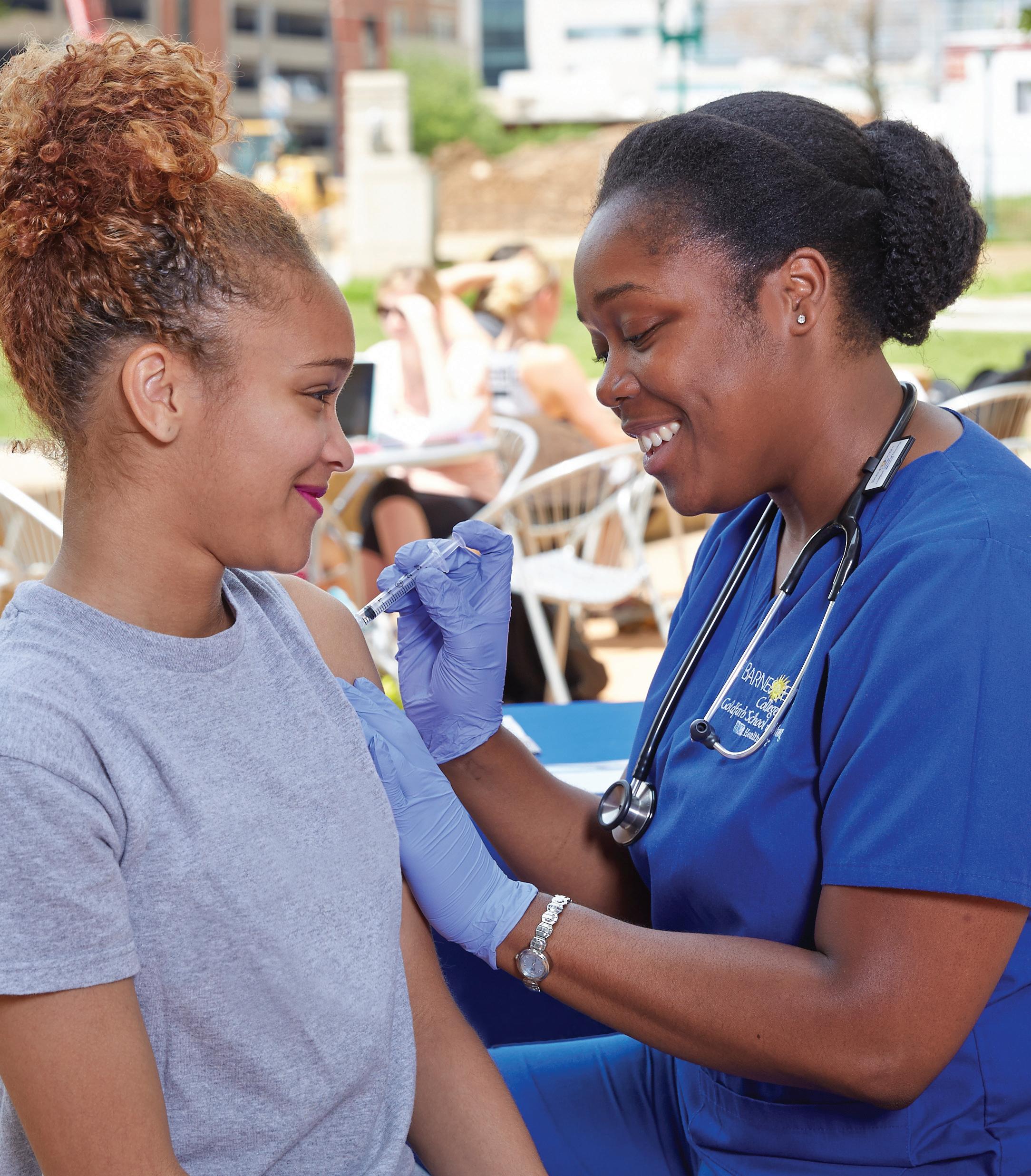
By Arthur R. Culver
For The St. Louis American
The nation is unraveling, deeply saddened and devastated by the killing of yet another black man. George Floyd’s brutal and senseless murder is the latest in a continuous tide of deaths caused by police brutality and indifference. His name is now added to a growing list including Ahmaud Arbery, Tony McDade, Breonna Taylor, Michael Brown, Trayvon Martin and many other unarmed black people who have been killed because of overly aggressive behaviors of police officers or vigilantes across our nation. This trend has continued because the criminal justice system has allowed the human rights of the victims to be grotesquely violated without significant consequences. Feelings of outrage, shock, despair, and heartbreak cannot begin to express the deep range of emotions that most of us have experienced during this painful time.
I know we believe that black lives matter. Each of the black lives we have lost nationally due to police brutality or racism matter. Each one of the black lives that have been lost due to homicide, gang violence, robberies, drugs, alcoholism or abuse also matter. Systemic changes in the criminal justice system and police reform must take place with fierce urgency to eradicate structural racism.
I believe the current political unrest demonstrated nationally by people of all races and from every socio-economic status will be the impetus necessary to bring about essential changes in systems, programs, people, policies and practices. One of the most effective things we can do to facilitate change is to
vote in local, state, and national elections. Evaluate candidates for their commitment to equity and social justice, then give them your vote.
Racism is a societal plague that is not limited to law enforcement and the ideology of individuals. It permeates society, including within the educational system. George Floyd’s death has caused us to take a hard look at our institutions and how they serve us. Racism needs to be understood, addressed, and ultimately uprooted in schools, houses of worship, workplaces and beyond.
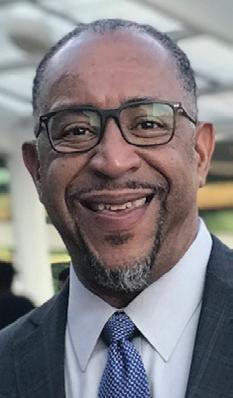
Educators and parents play a central role in the perpetuation of racism and in breaking its cycle. We must be committed to confronting biases, openly and honestly, despite how uncomfortable it may make us feel. Social justice must be modeled in our schools and expected outside of them.
It is imperative that our leaders speak out against racism and brutality and do everything possible to fight these injustices. These egregious human rights violations are not acceptable, and I support those using their voices in peaceful protest against the brutality we have witnessed.
Our actions must match their commitment, and those who make decisions must make them through the lens of equity and excellence for all. We must commit to listening, learning, growing and boldly acting to create the conditions for every child to flourish, unhindered by racism and racial injustice.

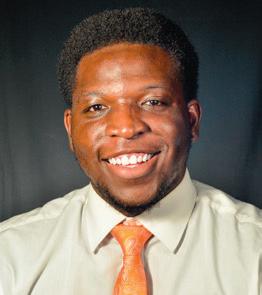
FIND YOUR PASSION! Find your

As superintendent of the East St. Louis School District, my commitment moving forward includes:
• integrating new curriculum lessons designed to explore and discuss issues of racism and the struggle for racial justice.
• continuing to focus on professional development for staff that ensures high quality and culturally-appropriate instruction.
• encouraging youth voice and equipping youth leadership so they are ready to lead our communities and country.
• continuing to advocate for funding equity in education within the state of Illinois to ensure black and brown students have adequate funding and high-quality instruction. It has been a devastating week. Yet the past week has also been inspiring. On June 1, we celebrated as 346 young adults, the Class of 2020, graduated from East St. Louis Senior High School. These graduates and all our students are our future. I encourage you to tell them that they are valued - that they are brilliant - that they are powerful - that they matter. I fully believe they will lead us toward a future where the lives and the dignity of black people carry the same value and importance as others. I remain hopeful that our collective strength will allow each of our students to find success in our schools, our community and in their own personal lives. I encourage all of you to consider how your actions can contribute to making equality and justice a reality for all. Together, we can create a better future for our children and end the pandemic of racism.
Arthur R. Culver is superintendent of East St. Louis School District 189.



CLEAN-TECH
JANITORIAL - HIRING
Full & Part-Time positions, 3 Shifts Background check. Steady work history preferred. Apply at 314 N. Jefferson at Olive. M - F, 9A to 5P. Must have two forms of I.D.
position partners with assigned business units and helps to provide accurate data to support the best possible business decisions. The ideal EDI Operations Coordinator will identify and drive continuous improvements in the quality and availability of EDI data. To apply, please visit: https://www.safetynational.com/ careers-page/
Inspects residential and commercial property for code compliance, including electrical, plumbing and mechanical inspections. Performs plan reviews and issues permits. Other duties as assigned, including acts as the Building Commissioner in the absence of the Director. Must have 5 years experience as an inspector; plan review experience, some supervisory experience; valid driver’s license; no disqualifying criminal history. IBC certified. Starting salary
$40,572.00 (GS16-C)
NO RESUMES ACCEPTED WITHOUT COMPLETION OF OUR APPLICATION! Completed applications may be mailed, emailed to jobs@cityofjennings.org or faxed to 314-388-3999. Applications accepted until the position is filled. Please include copies of any certifications.
SPECIAL SCHOOL DISTRICT OF ST. LOUIS COUNTY ACCEPTING SEALED BIDS (SSD#
Notice is hereby given that the Metropolitan St. Louis Sewer District is proposing to procure: ORACLE
BIF SUITE MAINTENANCE 6-1-20
to: 5-31-21. The District is proposing single source procurement for this service because MYTHICS is the only known available source for this service. Any inquiries should be sent to gjamison@stlmsd.com.
Metropolitan St. Louis Sewer District is an Equal Opportunity Employer.
Public Notice of Single Source Procurement
Notice is hereby given that the Metropolitan St. Louis Sewer District is proposing to procure temporary help services from Amitech Solutions in an effort to support the IT Technology Plan. The District is proposing single source procurement for this service because it does not have the internal expertise to fulfill this Information Technology role. Any inquiries should be sent to strenz@stlmsd.com.
Metropolitan St. Louis Sewer District is an Equal Opportunity Employer.
Don C. Musick Construction Co. is seeking proposals for the following project: NAF Cannabis Core and Shell Package:
The project includes work for the following trades:
Building foundations, building flatwork, masonry, structural steel, flashing and sheet metal, EIFS, roofing, joint sealants, and aluminum storefront.
Musick Construction encourages all qualified MBE and WBE firms to consider bidding on this project.
Although M/WBE participation is not a requirement, M/WBE inclusion will be evaluated during the subcontractor selection process.
Bids for this project are due on June 26th at 2:00 p.m. For any questions please contact Robert Brooke at 314-781-7005 or robertb@musickconstruction.com.
All bids should be submitted to Musick via e-mail (estimating@musickconstruction.com) or fax (314-781-4830).

Solicitation For Bids (SFB) for AIRPORT MECHANICAL SERVICES Bids Wanted
Bid documents may be obtained at St. Louis Lambert International Airport, Airport Properties Division, Monday through Friday between 8:30 a.m. and 5:00 p.m., or by calling (314) 890-1802. This SFB may also be obtained by visiting our website at www.flystl.com/business/ contract-opportunites. Robert Salarano Airport Properties Division Manager
Notice is hereby given that The Metropolitan St. Louis Sewer District (District) will receive sealed bids for Reynosa-Melitta Streambank Stabilization under Letting No. 11630-015.1, at this office, 2350 Market Street, St. Louis, Missouri 63103, until 02:00 PM on Thursday, July 16, 2020, at a place designated.
Bids will be received only from companies that are pre-qualified by the District’s Engineering Department for: Natural Channel Stabilization in unincorporated St. Louis County.
Plans and Specifications are available for free electronic download. Please go to MSD’s website and look for a link to “ELECTRONIC
PLANROOM.” Plans and Specifications are also available for viewing or purchase at
Cross Rhodes Reprographics located at 1712
Macklind Avenue, St. Louis MO 63110. All bidders must obtain a set of plans and specifications in order to submit a bid in the name of the entity submitting the bid.
The Metropolitan St. Louis Sewer District is an Equal Opportunity Employer.
Notice is hereby given that The Metropolitan St. Louis Sewer District (District) will receive sealed bids for University City I/I
Reduction – East (UR-08 and UR-09) –Phase II under Letting No. 13344-015.1 at this office, 2350 Market Street, St. Louis, Missouri 63103, until 02:00 PM on Wednesday, July 22, 2020, at a place designated.
Bids will be received only from companies that are pre-qualified by the District’s Engineering Department for: Sewer Construction – St. Louis County Drain Layers License Required Plans and Specifications are available for free electronic download. Please go to MSD’s website and look for a link to “ELECTRONIC PLANROOM.” Plans and Specifications are also available for viewing or purchase at Cross Rhodes Reprographics located at 1712 Macklind Avenue, St. Louis MO 63110. All bidders must obtain a set of plans and specifications in order to submit a bid in the name of the entity submitting the bid. The Metropolitan St. Louis Sewer District is an Equal Opportunity Employer.
Notice is hereby given that The Metropolitan St. Louis Sewer District (District) will receive sealed bids for White Birch Pump Station (P-725) Elimination under Letting No. 12583-015.1, at this office, 2350 Market Street, St. Louis, Missouri 63103, until 02:00 PM on Friday, July 17, 2020, at a place designated. Bids will be received only from companies that are pre-qualified by the District’s Engineering Department for: Sewer Construction - St. Louis County Layers License Required Plans and Specifications are available for free electronic download. Please go to MSD’s website and look for a link to “ELECTRONIC PLANROOM.” Plans and Specifications are also available for viewing or purchase at Cross Rhodes Reprographics located at 1712
Macklind Avenue, St. Louis MO 63110. All bidders must obtain a set of plans and specifications in order to submit a bid in the name of the entity submitting the bid.
The Metropolitan St. Louis Sewer District is an Equal Opportunity Employer.
NOTICE
Market Street, St. Louis, Missouri 63103, until 02:00 PM on Friday, July 10, 2020, at a place designated. Bids will be received only from companies that are pre-qualified by the District’s Engineering Department for:
Sewer Construction - St Louis County Drain Layers License Required
Plans and Specifications are available for free electronic download. Please go to MSD’s website and look for a link to “ELECTRONIC PLANROOM.” Plans and Specifications are also available for viewing or purchase at Cross Rhodes Reprographics located at 1712
Macklind Avenue, St. Louis MO 63110. All bidders must obtain a set of plans and specifications in order to submit a bid in the name of the entity submitting the bid.
The Metropolitan St. Louis Sewer District is an Equal Opportunity Employer.
Paric Corporation is seeking proposals for the following project: Lottes Health Science Library –1st Floor Phase One Renovation for the University of Missouri.
This is an approximately 7,000 sf renovation of the existing School of Medicine and Anesthesiology offices.
The scope of work includes but is not limited to demo, carpentry, casework, doors/frames/hardware, drywall, ceramic tile, ACT, carpet, painting, fire protection, plumbing, HVAC and electrical.
This project has a diversity participation goal of 10% MBE and 10% combined WBE, DBE, Veteran Owned Business and 3% SDVE.
Bids for this project are due on June 30, at 1:30 p.m. For any questions or would like to find out more detailed information on this opportunity, please contact Evan Chiles at 816-878-6003 or emchiles@paric.com.
All bids should be delivered to Paric via e-mail (bids@paric.com) or fax (816-878-6249).
PARIC CORPORATION IS AN EQUAL OPPORTUNITY EMPLOYER
PUBLIC MEETING/ OPEN HOUSE
East-West Gateway Council of Governments (EWG)
seeks comment on amendments to Connected2045, the St. Louis Region’s long-range transportation plan, including the FY 2021-2024 Transportation Improvement Program (TIP) and related Air Quality Conformity Document. The meetings and comment period will also satisfy Madison County Transit District’s and Metro’s public hearing and program of projects requirement of the Federal Transit Administration Sections 3006(b), 5307, 5309, 5310, 5317, 5337, and 5339 programs in the St. Louis region.
The public comment period begins Tuesday, 6/30/20, and ends Wednesday, 8/5/20. The documents will be available on the website at www.ewgateway.org. Comment forms will be available on the website. Comments must be received or postmarked by midnight Wed., 8/5/20. Send comments via the online comment form or email to TIP@ewgateway.org.
The public is invited to participate in two virtual open house meetings: Tue., 7/14/20: 12:00 to 12:30 PM; Thu., 7/23/20: 5:00 to 5:30 PM. A summary of the documents will be presented.
EWG is committed to ensuring these meetings are accessible. To request a reasonable accommodation, please contact EWG’s Title VI Coordinator at least 48 business hours prior to the meeting at titlevi@ewgateway.org.
EWG fully complies with Title VI of the Civil Rights Act of 1964 and related statutes and regulations in all programs & activities. For more information, or to obtain a Title VI Nondiscrimination Complaint Form, see www.ewgateway.org/titlevi.
, at this office, 2350 Market Street, St. Louis, Missouri 63103, until 02:00 PM on Tuesday, June 30, 2020, at a place designated. Bids will be received only from companies that are pre-qualified by the District’s Engineering Department for:
for viewing or purchase at Cross Rhodes Reprographics located at 1712 Macklind Avenue, St. Louis MO 63110. All bidders must obtain a set of plans and specifications in order to submit a bid in the name of the entity submitting the bid The Metropolitan St.

A vacancy for the 2020-2021 school year currently exists on the Jennings School District Board of Education. This vacancy is for July 2020 to April 2021 or the next general election for school board members pending any delays due to COVID-19. Residents wishing to be appointed to the vacancy should make their desire known by sending a letter to Board Secretary Yolonda Fountain-Henderson by June 29, 2020, in care of the Administration Office, 2559 Dorwood Drive, Jennings, MO 63136 or by email to the Jennings School District Custodian of Records, Yolanda Elkins, at elkinsy@jenningsk12.org. The letter should include a bio, qualifications, as well as reasons for wishing to serve on the Board. After a review of the letters received, final candidates will be selected and interviewed by the Board, after which an individual will be selected for appointment.
Missouri law requires members of the Board of Education to be citizens of the United States and resident taxpayers of the School District of Jennings. They shall also have resided in the state for one year preceding their election or appointment. Members shall be at least twenty-four years of age, and have knowledge of and an interest in the welfare and educational opportunities of students.
The Jennings School District Board of Education is a representative body elected by the registered voters of the Jennings School District of St. Louis County. It is the purpose and the role of the Board of Education to exercise general supervision over the schools of the district, and to ensure that the schools are maintained as provided by the state statues, the rules and procedures of the Missouri State Board of Education and/or the Missouri Department of Elementary and Secondary Education, and the policies and procedures of the school district.
Midwest Mole, Inc. is seeking qualified and certified MWBE attendance in a virtual Pre-Bid meeting to discuss working on: MSD’s FF-07 Fee Fee Creek Sanitary Sewer Relief(Meadowside Dr to Willow Brook Dr) Letting No. 10012-015.1
The Agenda will be: We will be discussing Scope of this project, and available areas to bid. Please print off the plans and specs and come with questions. Link for plans, specs, and Agenda: https://midwestmole.box.com/s/ yidhqj5doo1tsv22k3f1pen6n161teck
The Virtual Pre- Bid Time and Date will be: You are invited to a Zoom Pre-Bid meeting. When: Jun 23, 2020 10:00 AM Central Time (US and Canada) Register in advance for this meeting: https://zoom.us/meeting/register/ tJUucuugqzouHdy9e9whNbRpViZQuJycSagh
After registering, you will receive a confirmation email containing information about joining
Advertised herein is subject to the Federal Fair Housing Act, which makes it illegal to advertise any preference, imitation, or discrimination because of race, color, religion, sex, handicap, familial\status, or national origin, or intention to make any such preference, limitation, or discrimination.“We will not knowingly accept any advertising for real estate which is in violation of the law. All persons are hereby informed that all dwellings advertised are available on an equal opportunity basis.”
Angelita Houston at 314-289-5430 or email ahouston@stlamerican.com to place your rental/real estate ad today!


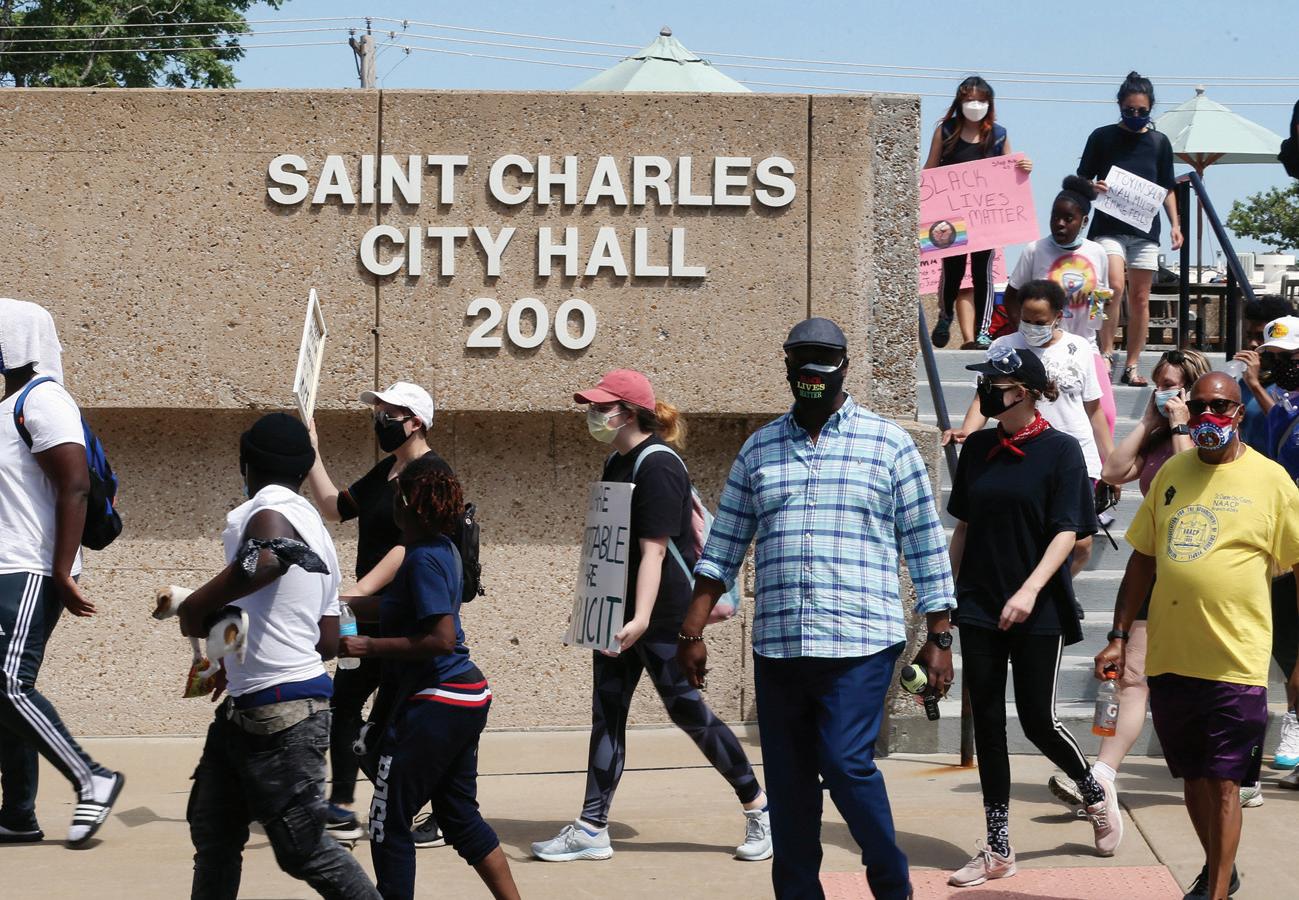
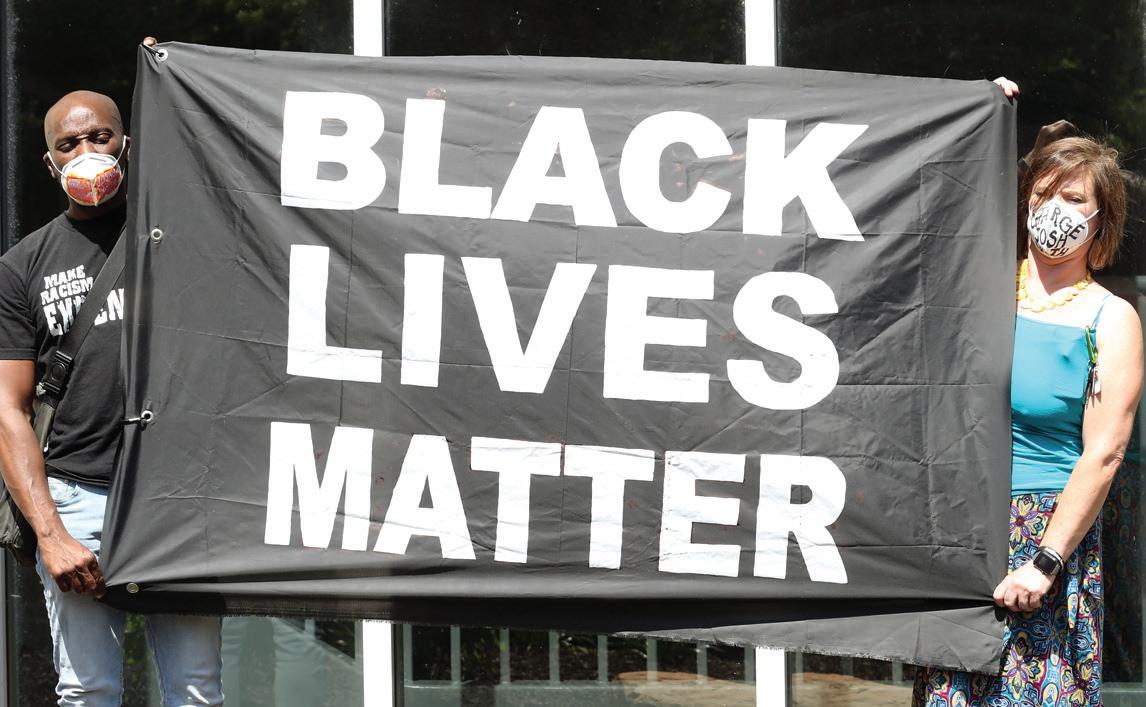
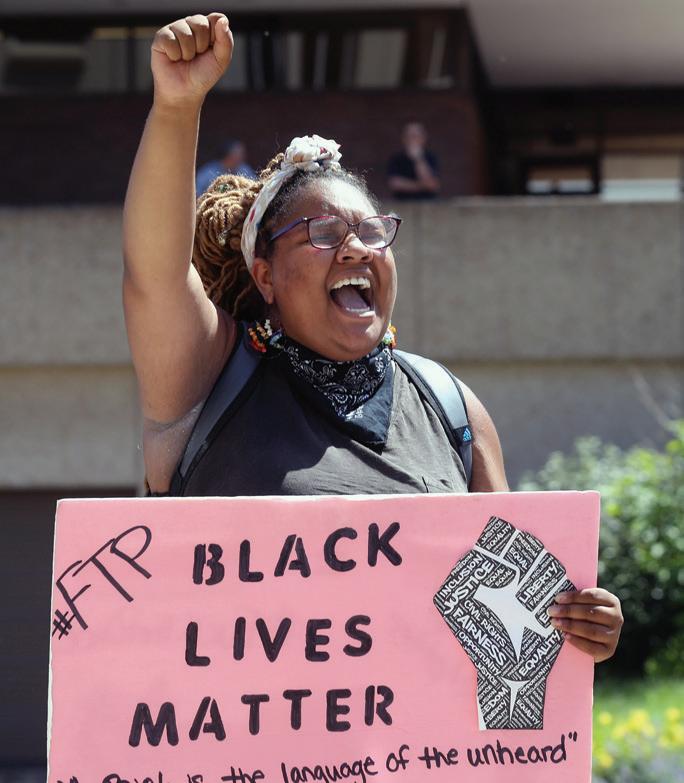

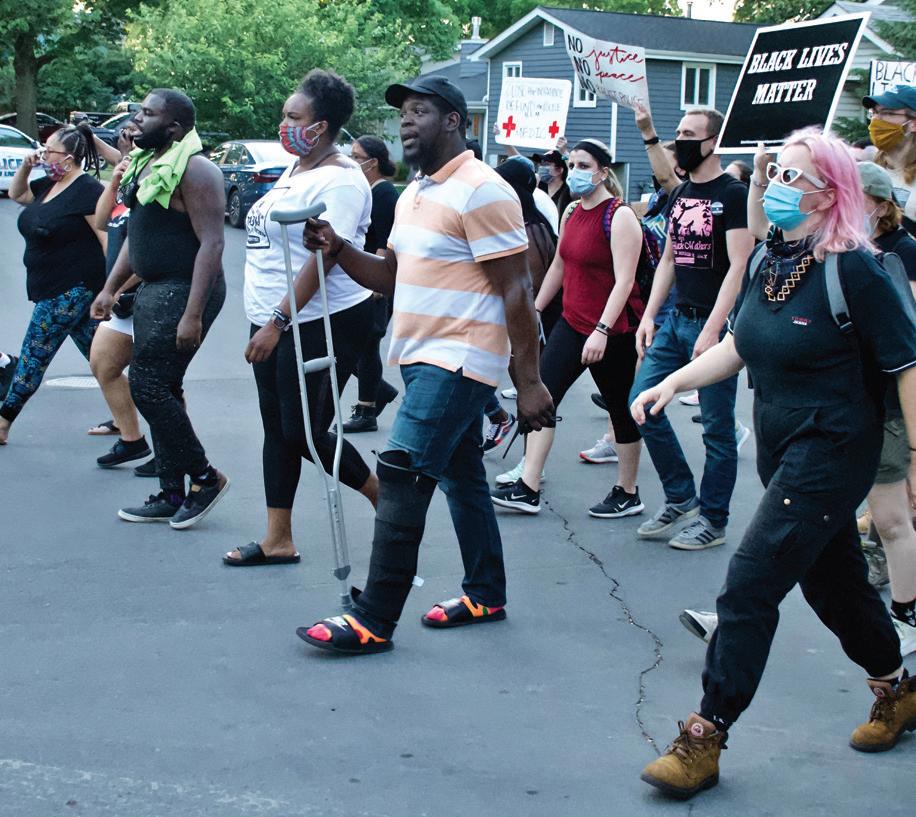

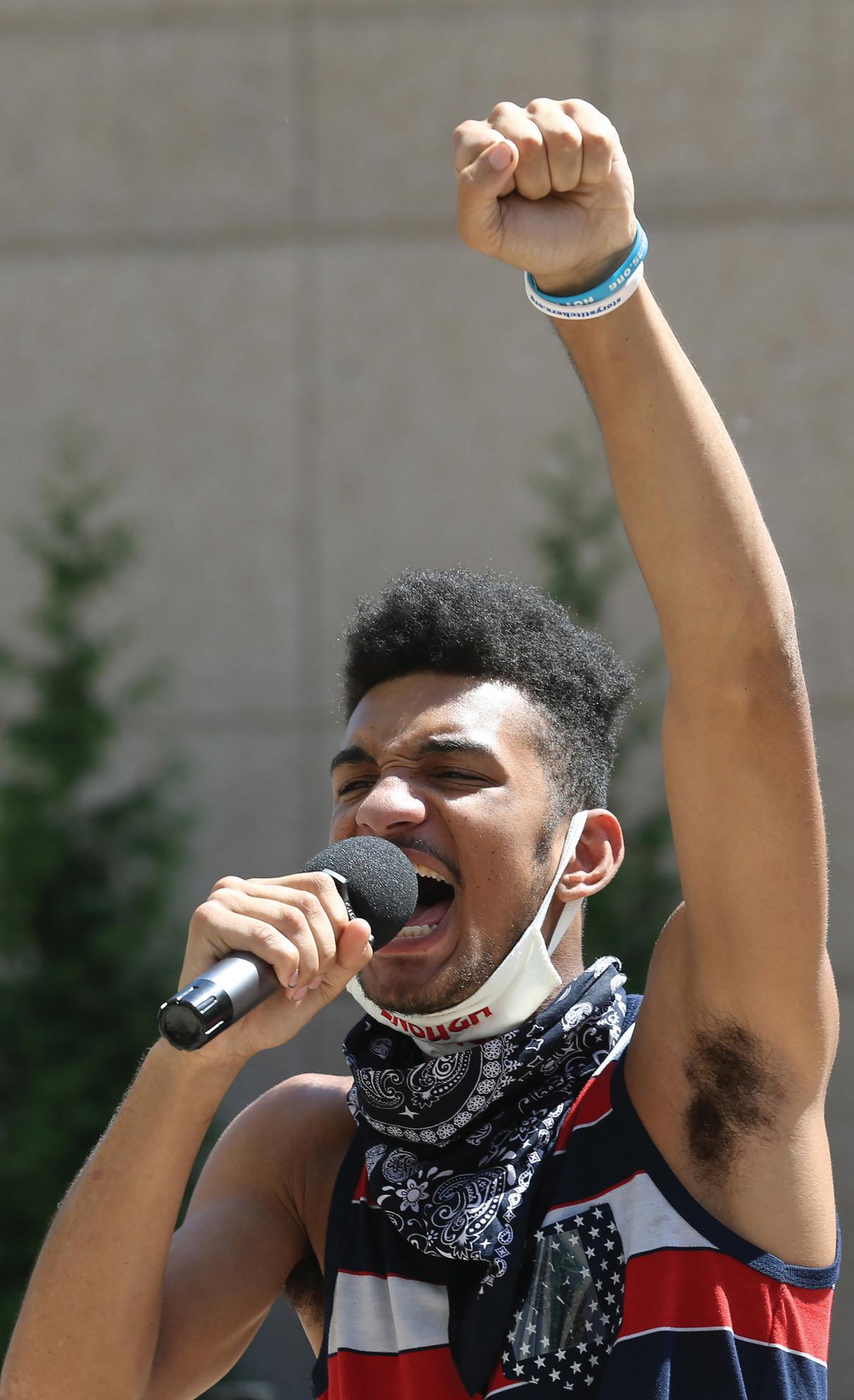




By Ashley Jones
For The St. Louis American
Riverview Gardens High School Class
President Kennedi Rutledge graduated summa cum laude and in the top three of her class.
“The senior class of Riverview Gardens High School, you’ll never see another class like us,” Rutledge said.
Riverview Gardens School District honored the Class of 2020 during a parade on Friday, May 22. The parade featured signs, music and a stage for graduates to walk across while practicing social distancing. Graduates were awarded more than $2.5 million in scholarships.
“Everyone I’ve encountered through Riverview has given me the opportunity to be who I am today,” Rutledge said. “I love my school. I’m very Rams pride. That school will always have a place in my heart.”
The Class of 2020, approximately 240 graduates, were the first class to graduate under the leadership of Principal Traci Nave. Nave is very familiar with Rutledge’s accomplishments.
“She is just an allaround amazing young lady,” Nave said.
“Whenever we needed someone to speak on behalf of the district, she was there to do that. Her teachers adored her. She was always that top scholar that we had around our campus as a model for others.”
Rutledge is currently attending St. Louis Community College to

complete the fourth part of Riverview Gardens’ A+ Program to obtain college credit.
“I’m able to go two years free and then the plan is to transfer to Barnes-Jewish College with the rest of my schooling,” Rutledge said. “And then, hopefully, fingers crossed, I go to Prairie View A&M and become a nurse practitioner.”
Rutledge was very active in school. She played volleyball and soccer and participated in the National Honor Society, Humanity in the Middle, which tries to bridge the gap between
black youth and the police, and HarrisStowe State University’s Educational Talent Search. She also works at a dance studio called Charley’s Body Shoppe.
“I wish I could clone her sometimes,” Nave said. “She’s just been a joy to have. I am thankful to have been able to watch her from the sidelines. Even as a middle school scholar, I’ve heard about her coming. It’s been a joy to serve as her principal and just guide her through this process at the school level.”
Rutledge describes herself as very family-oriented. Her relationship with Riverview Gardens School District began when her older brother was in middle school, and he graduated in 2011.
“I’ve grown up on the same street my whole life,” Rutledge said. “Everything that I do is to make my family proud.
See RUTLEDGE, page 11

By Ashley Jones
For The St. Louis American
James Taylor Jr. is an East St. Louis High School Class of 2020 graduate. He was a participant with the Running Start program, which enabled him to take all his junior and senior courses at Southwestern Illinois College (SWIC). Taylor simultaneously earned his high school diploma and his associate’s degree by entering into the Running Start program his sophomore year and finishing the program his junior year.
“I actually got my diploma on my associate degree, according to the date, before my high school diploma, so that’s big,” Taylor said. “I am a first-generation college student. My parents didn’t go to college and my grandparents didn’t, so that’s a big achievement for me.”
He was exposed to many colleges through Gaining Early Awareness and Readiness for Undergraduate Programs (GEAR UP), a federal grant program designed to increase the number of low-income students who are prepared to enter and succeed in postsecondary education.
Teresa Williams, director for the GEAR UP program for the district, has worked with Taylor for the past five years.
“James has been on probably with us about 100 college tours, almost all of the East Coast, and Midwest, and all of the HBCUs except for the all-female ones,” Williams said.
Williams also was impressed with Taylor’s dedication in completing the Running Start program. He was one of 10 students who received their associate’s degrees from SWIC.
“He’s very unique in that most men who signed up for that program returned to high school, but James was determined to stick with it and his dedication and his foresight into what he’d like to do as a trained engineer, kind of, propelled him to continue to work hard,” Williams said.
Taylor’s college decision is down to either Harris-Stowe State University and SIUE currently. He was accepted to all the 15 colleges he applied for, but funds and scholarships are heavily weighing in his decision.
Overcoming adversity, Taylor’s mom is legally blind and his father regularly undergoes dialysis. Taylor is an essential worker at Walmart where he works 30 hours a week to take care of his family. His role is to take care of senior citizen shoppers.
“We make sure they get a roll of tis-
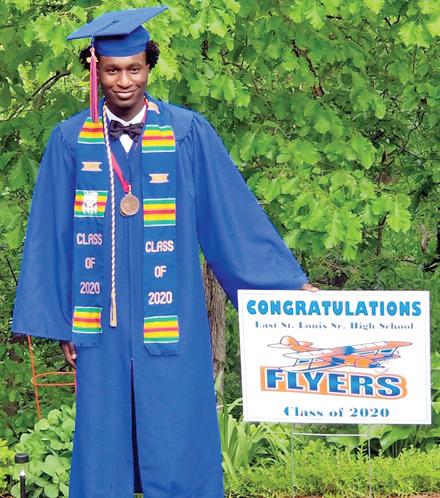
n “I am a first-generation college student. My parents didn’t go to college and my grandparents didn’t, so that’s a big achievement for me.”
– James Taylor Jr.
James Taylor Jr. earned his associate degree from Southwestern Illinois College slightly before his diploma from East St. Louis High School.
sue, some bleach and some Lysol because they are the most vulnerable,” Taylor said, referring to the COVID-19 pandemic. “They not teens like me. We’ll get it, but we’ll overcome it.”
As of June 15, only 4 of the 6,308 people in Illinois who have died from the pandemic were under 20 years of age. The likelihood of death from the diseases increases steadily with age.
Taylor has seen some good come from tragedy.
“The good side is the pollution went down, and the ozone is clearing up,” Taylor said. “On the negative side, it has touched my family. My granny’s uncle had to be quarantined for two weeks.”
Fighting for justice, Taylor was one of the jurors in his school’s teen court and a member of Kappa League. He also used to play for his high school’s baseball team.
“I volunteer in any position I can do,” Taylor said. “I love to help.”
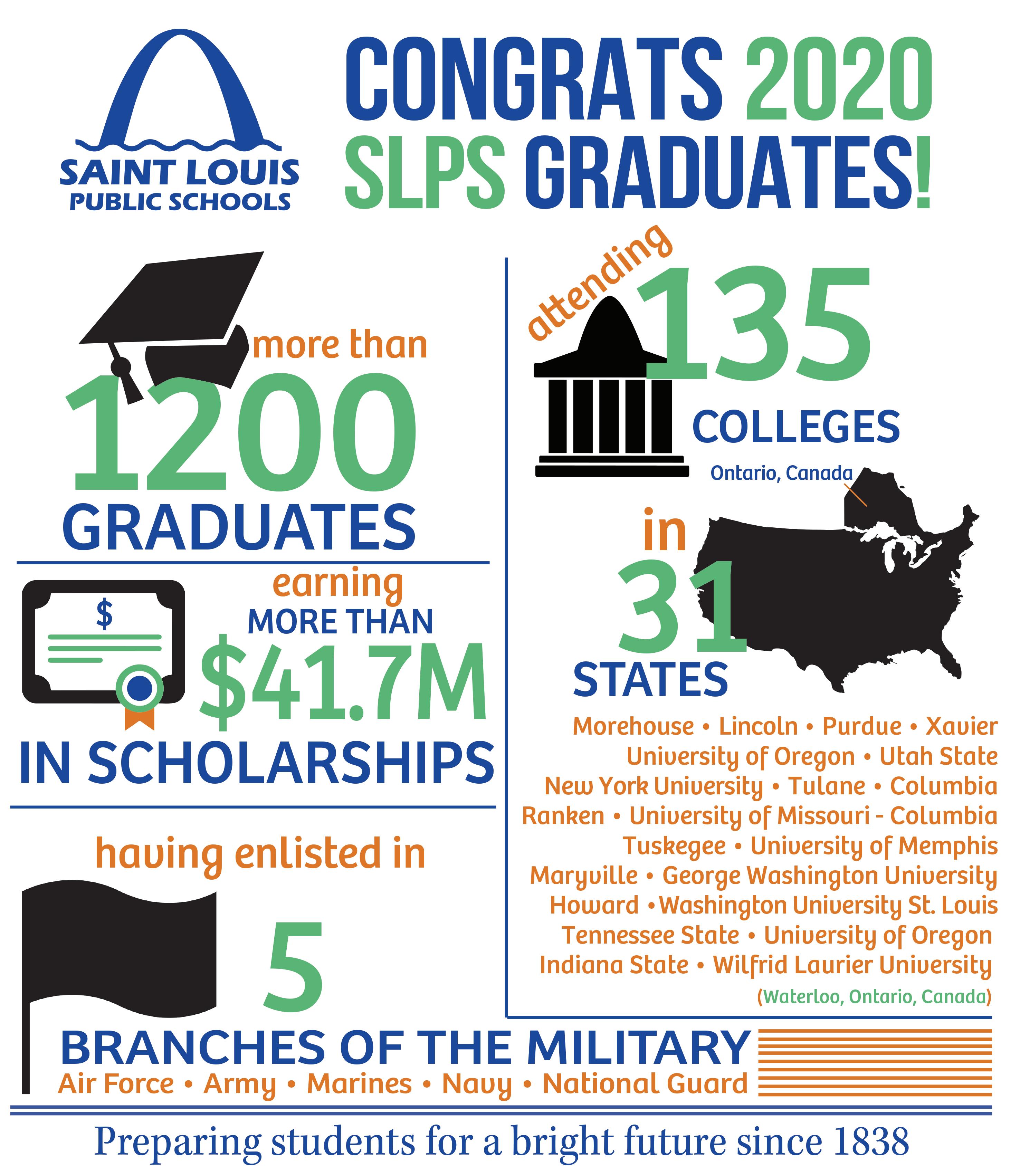



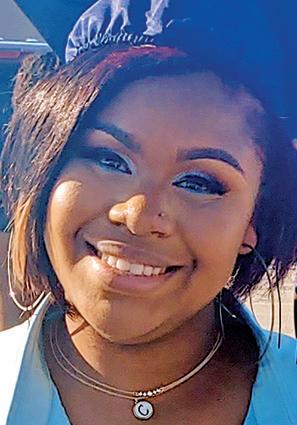
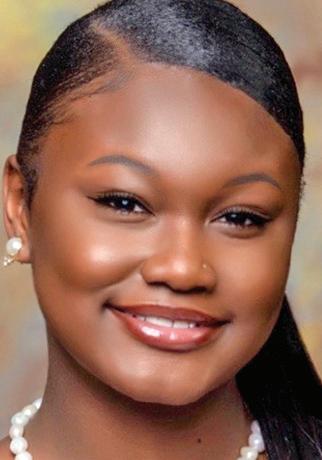
Christiana Bland
McCluer North High School
Next Step: Harris Stowe State University, Pediatric Nursing
Parent(s): Christina L Bland

Christina Fay Cheeseboro
Collinsville High School
Next step: Attending Bethune Cookman University, studying Psychology-PreMed to become a clinical psychologist
Parent(s): Dr Anthony and Rena Cheeseboro
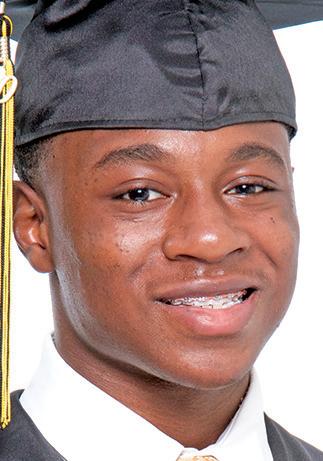

Kristian Cross
Hazelwood Central High School
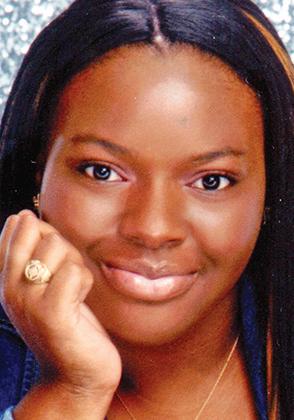
Ariel Gordon
Metro Academic and Classical High School
Next step: Howard University, majoring in Afro American Studies/English
Parent(s): Eddie Gordon, Cassandra Gordon
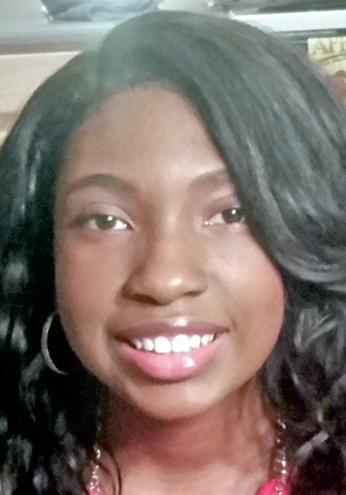
Makayla Thornton
Francis Howell Central High School
Next step: St. Charles Community College
Chayse Daniels
O’Fallon Township High School
Next step: Attending Southern Illinois University Edwardsville to study Nursing
Parent(s): James and Nakia Daniels
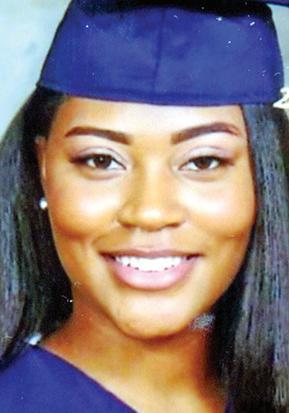
Erynn J. McLemore
Incarnate Word Academy
Next step: Attending Missouri State University in Springfield, Mo in the fall
Parent(s): GG—Lucy McLemore, Daddy Mac—Claude McLemore

Jaida Danielle Williams
Pattonville High School
Next step: Attending the University of Memphis to study Nursing
Parent(s): Wanda Williams
Ahjay M. Morton
Holt Senior High School
Next Step: Joining the U.S. Air Force
Parent(s): Allen Morton and Kim Hill

Amirah Willingham
University City High School
Next step: Attending St. Louis Community College at Forest Park

Angelo D. Farmer
Northview High School
Next step: Attending community college to study automechanics
Parent(s): Otis and Cynthia Gillon
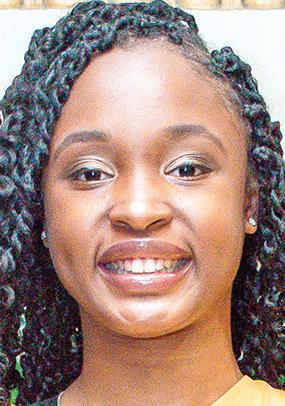
Maya Owens
Hazelwood Central High School
Next Step: Hampton University majoring in Political Science / Criminal Justice
Parent(s): Eugene and Debra Owens

JaVon Welch
McCluer North High School
Next step: Harris Stowe State University
Parent(s): Ahtari and Reasha Welch

Jayla Twitty
King Kids Prep for Girls
Parent(s): Shayla Pate and Derreion Twitty

2LT Michael Clark
United States Military
Academy at West Point
Degree: BS Chemical
Engineering
Next Step: Clemson University in South Carolina, Masters in Industrial Engineering while serving as an Officer of the Military
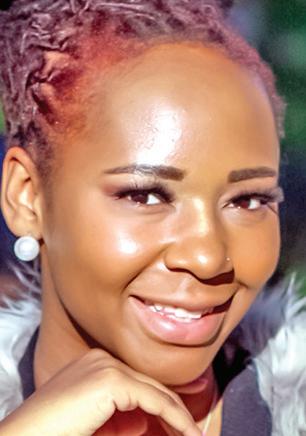
Capri Charleston
Tuskegee University
Degree: Bachelor of Science in Environmental Science
Next Step: United States Department of Agriculture
Parent(s): Taina and Daryl Charleston
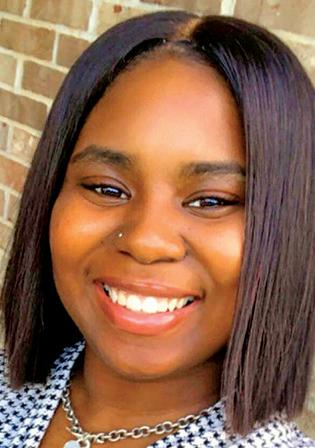
Devon A. Collins
Harris-Stowe State University
Degree: Bachelor of Science with a Major in Criminal Justice – Summa Cum Laude
Next Step: Saint Louis University to pursue a Master Degree in Criminology and Criminal Justice with a concentration on Treatment and Rehabilitation
Parent(s): Renee and Harvey Collins
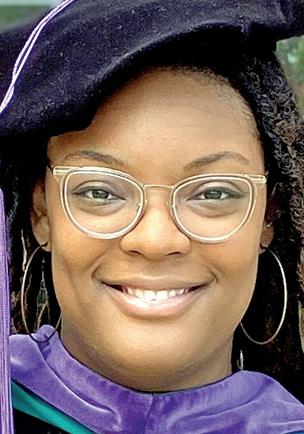

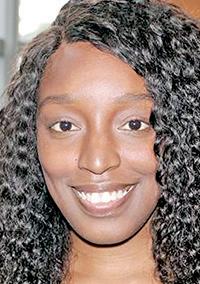
Alexis Gordon
Vanderbilt University
Degree: History/Bachelors of Arts with a Minor in Human and Organizational
Development
Parent(s): Eddie and Cassandra Gordon


Amanda Jackson
Lindenwood University
Degree: Master of Science in Human Resource Management
Next Step: Transitioning into a career in Human Resources


Taylor Pikes
Tennessee State University
Degree: B.S. in Agricultural Science
Next step: Taylor has been accepted to the Teach for America Charlotte program.
Parent(s): Tabatha Pikes
Deionna Ferguson
Washington University in Saint Louis
Degree: Juris Doctor
Carlyncia McDowell
School: Spelman College
Degree: Bachelor of Arts in Psychology with a Public Health minor
Next step: Masters in Public Health; I would like to work for the Center for Disease Control and then eventually become a Healthcare Administrator and own a health facility.
Parent(s): Carl McDowell Jr. and Sandra McDowell
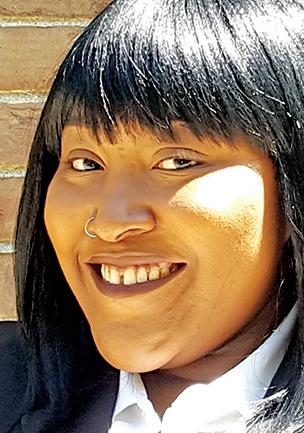
Dominique J. Gatewood
Quincy University
Degree: Bachelor of Art
Degree in Marketing
Next Step: Marketing Career and Grad School
Parent(s): Doniele Troupe and Damion Gatewood

Morgan Mackey
Webster University
Degree: M.A. Human Resource Management
Parent(s): James and Henrietta Mackey

Rachel Rodgers
Missouri Western State University
Degree: Bachelors in Social Work
Parent(s): Kip and Monica Rodgers
Alexandria Moore
Lindenwood University
Degree: Interdisciplinary Studies with an emphasis in Business and Education
Next Step: Obtaining ABA Masters
Parent(s): Allan Moore and Joyce Colvin
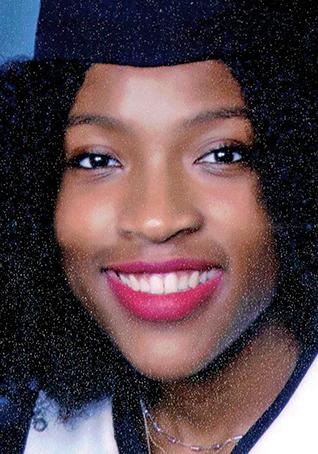
Cayce Sloan
Missouri State University
Degree: Bachelor of Science in Athletic Training
Next step: Graduate school at Georgia Southern with a graduate assistantship position at a high school
Parent(s): Steve and Pleshette Fantroy
Ashleigh Smith
Duke University
Degree: B.A. Art History with a concentration in Museum Theory and Practice
Parent(s): Dr Gladys Smith
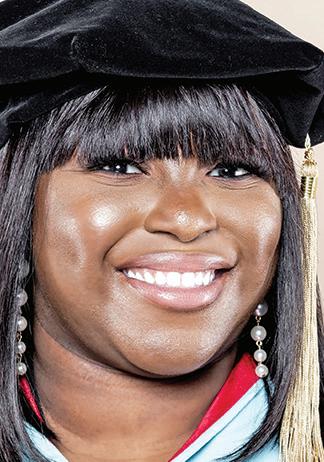
Malinda Rowsey
Maryville University
Degree: Doctorate of Education
Teacher Leadership

Kennaday Carter will major in nursing, minor in Spanish at UMSL
By Carrie Zhang For The St. Louis American
Like many other students in the Class of 2020, Kennaday Carter of Hazelwood West High School was disappointed with the end of her senior year.
“It’s saddening, knowing that we won’t ever get back some of these things,” Carter said. “We as seniors know that something has been taken away from us, based on seeing other people experience things like graduation and prom and walking through our hallways for the last time in our cap and gown. We know that we’ve just missed out.”

Kennaday Carter
The loss from the COVID-19 pandemic is especially disheartening for Carter because she is the senior class president, who would normally be planning the school’s endof-year events.
Carter also was captain of her tennis team and involved in Spanish National Honors Society, National Honors Society, and Student Council. She maintained a 4.18 GPA.
“My call for leadership drew me to these activities,” Carter said. “I feel as though I was born to lead and so, when I came in high school, I knew there were some things I wanted to accomplish. So, I took initiative to find out how to accomplish them and went from there.”
Carter will be attending the University of Missouri St. Louis on a full-ride scholarship in the fall. She plans to major in nursing and minor in Spanish. After her undergraduate education, Carter wants to receive a master’s degree either as a postpartum delivery nurse or as a pediatric nurse practitioner.
“I really do love helping people, and I love children,” said Carter. “I used to want to be an OB-GYN, but I didn’t know if I had the stomach for the surgery,” Carter laughed.
She also learned that OB-GYNs deliver a child and then move
See CARTER, page 11
Continued from page 10
on to the next patient, while postpartum delivery nurses spend more time around patients. Carter said, “I want to help parents as they transition from the child in the womb to the child outside the womb.”
Working as pediatric nurse practitioner is also a viable option for Carter because she would also be around children.
Carter received this year’s Dr. MLK Christian Hospital Foundation Scholarship. She first heard about the scholarship from her college and career counselor, Kimberly Quain, who identified Carter as a strong candidate. A few days after the application was submitted, Carter received word that she had been selected for the scholarship.
“Whoever applied for the scholarship had to write about how you can keep Dr. King’s dream alive, and so I wrote a scholarship about how I will keep his dream alive through nursing and minoring in Spanish,” Carter said.
The transition to e-learning due to the pandemic has not changed Carter’s striving for academic excellence. She focused on managing her time, attending online classes, and keeping up with her
schoolwork.
“My school district was very understanding and lenient,” said Carter.
Hazelwood West provided students with WIFI hotspots and Chromebooks and also issued food to students who did not have enough. “They tried to do the best with what they had in the given time; I’m very appreciative of that,” Carter said.
Carter said that she adapted to the pandemic by realizing there was nothing she could to do control it. Instead, she chose to focus on what she could control. “I’m a Christian,” she said, “so I believe that God has planned this for a reason and, once we come out of this, the class of 2020 will be doing great things.”
Before coming to Hazelwood for middle school and eventually high school, Carter attended public school in St. Louis. “I understand a bit of everything,” Carter said.
While she recognizes the challenges of growing up in a city like St. Louis, Carter said, “I don’t let my circumstances define me. I realized that if I want to change the world, I can’t use excuses and crutches about the things that happen around me. I have to take the opportunities in front of me.”
Carter advises incoming seniors and other students to be flexible and set high expectations: “Don’t let your situation define you.”
Continued from page 2
So, being a part of National Honor Society and top four of my class is to make them proud.”
Due to COVID-19, Rutledge did not get to experience her senior prom. She had planned on wearing her older sister’s dress.
“In 2017, I lost my sister to suicide,” Rutledge said. “We were going to take her prom dress and alter it so I could wear it, but unfortunately that couldn’t happen. But I’m going to honor her in some way.”
Riverview Gardens School district had to make some adjustments by switching from in person to strictly virtual learning. They hand-delivered technology and other resources that student’s families needed yet lacked. Riverview secretaries and counselors also called families weekly to do wellness checks and donate any food needed.
n “I’ve grown up on the same street my whole life. Everything that I do is to make my family proud.”
– Kennedi Rutledge
“No one was prepared for all of this, but we made sure that in the midst of this that our families knew they were supported by our schools,” Nave said.
Rutledge saw a glimpse of President Barack Obama’s speech during the Graduate Together virtual ceremony.
“It was just so generous and so fulfilling to see how many celebrities acknowledge the fact that even though the class of 2020 didn’t experience our graduation, they still made us feel special,” Rutledge said. “I loved every second of it. This will most likely go down in history.”

